Architecture Moments™: The Metropolis of Kuwait
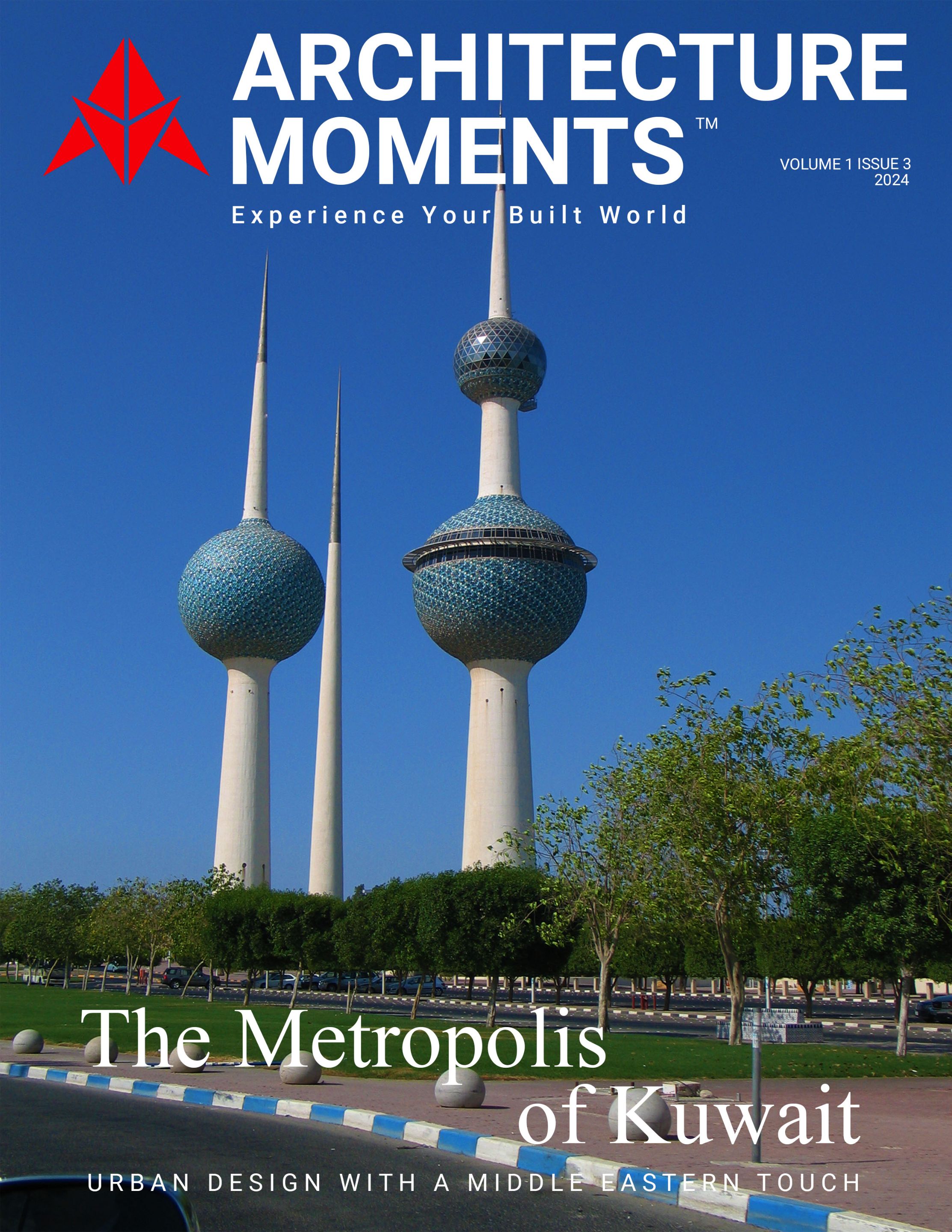
The mere feat of transforming an empty desert into a sustainable urban center is simply astonishing! Only a handful of Middle Eastern locations have accomplished this incredible milestone.
Introduction: A Fusion of Heritage and Modernism
Our planet’s dry, barren, and scorching region known as the Middle East is a challenging habitat to thrive in. For Architects and Designers who had the opportunity of handling ambitious projects within this unforgiving setting, there have been numerous issues that hindered their successful implementation. Nevertheless, a few places within this territory managed to defy the odds and flourish with surprising results.
And then all of a sudden out of nowhere, oil (also known as liquid gold) was discovered. This valuable natural resource alone was instrumental in catapulting their humble beginnings into a global economic powerhouse.
And if there's one metropolis that has surely benefited profitably from Mother Nature's bounty, that would be the oil-rich state of Kuwait. Just look at the rapid proliferation of sophisticated buildings and other constructed structures literally sprouting everywhere within its national boundaries. Isn't that enough proof?
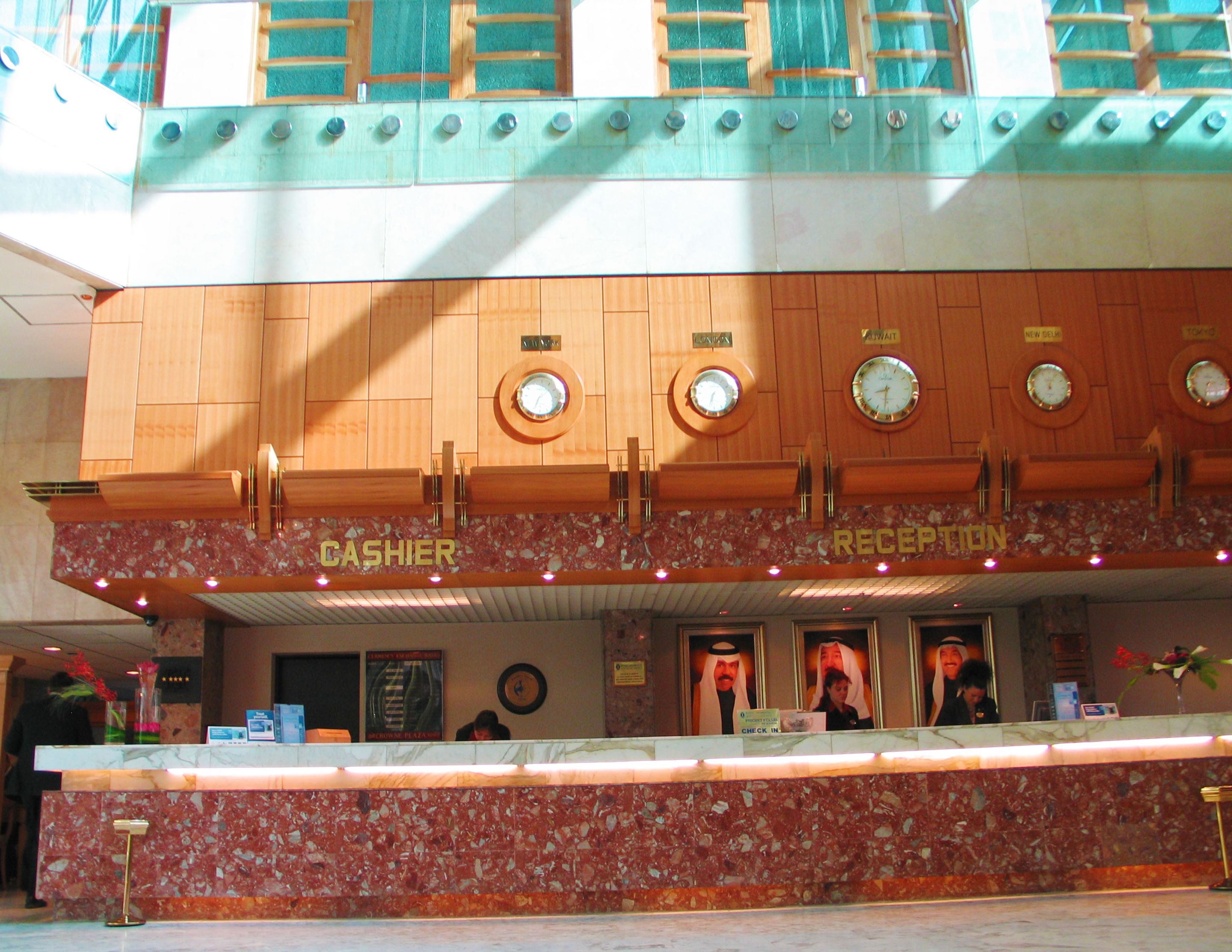
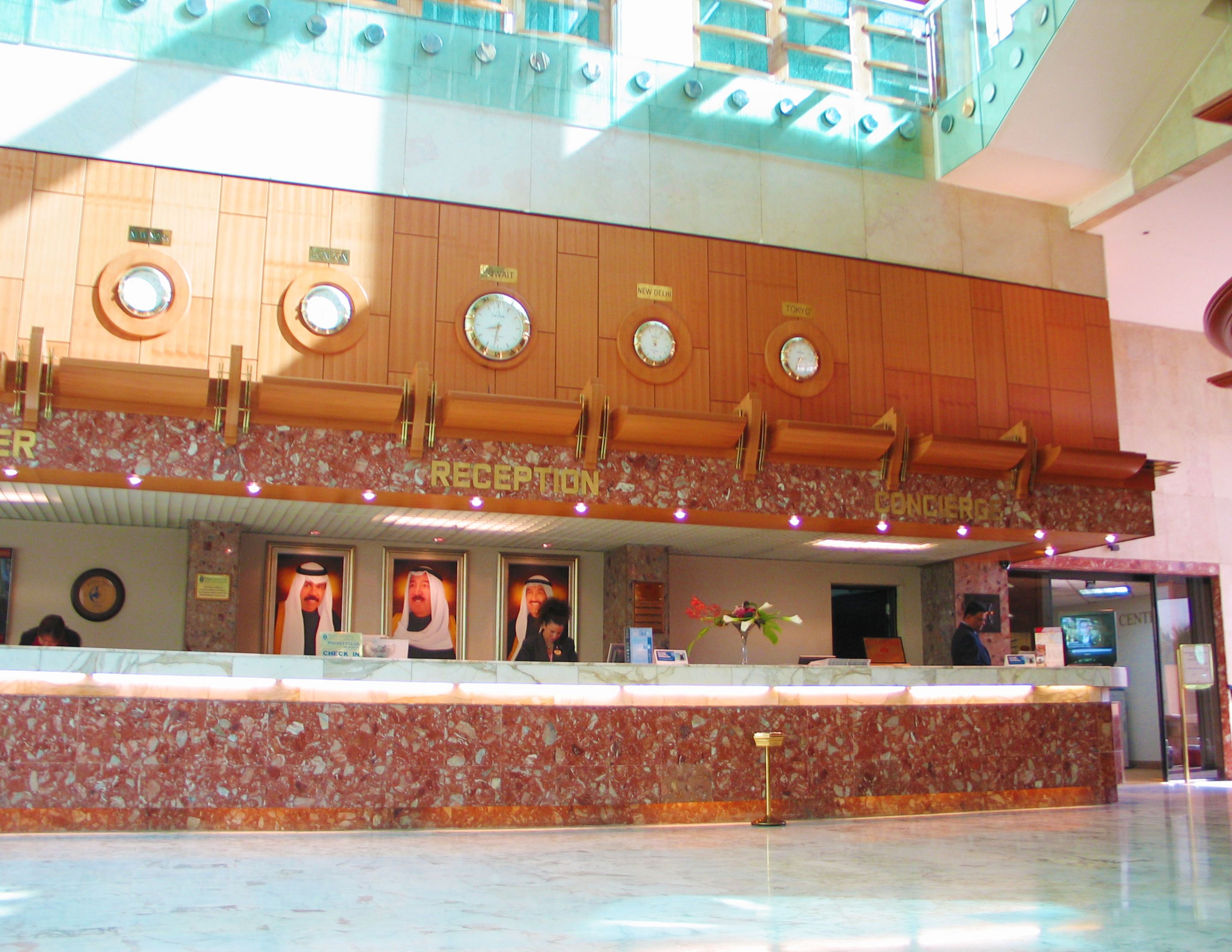
Many years ago, I had the awesome chance to visit this remarkable city. It was a business trip - my architectural profession had finally allowed me to venture inside its geographical doors, though I wasn't really expecting much from this foreign land. Yet, I was ready to accept sudden surprises that would eventually cross my way.
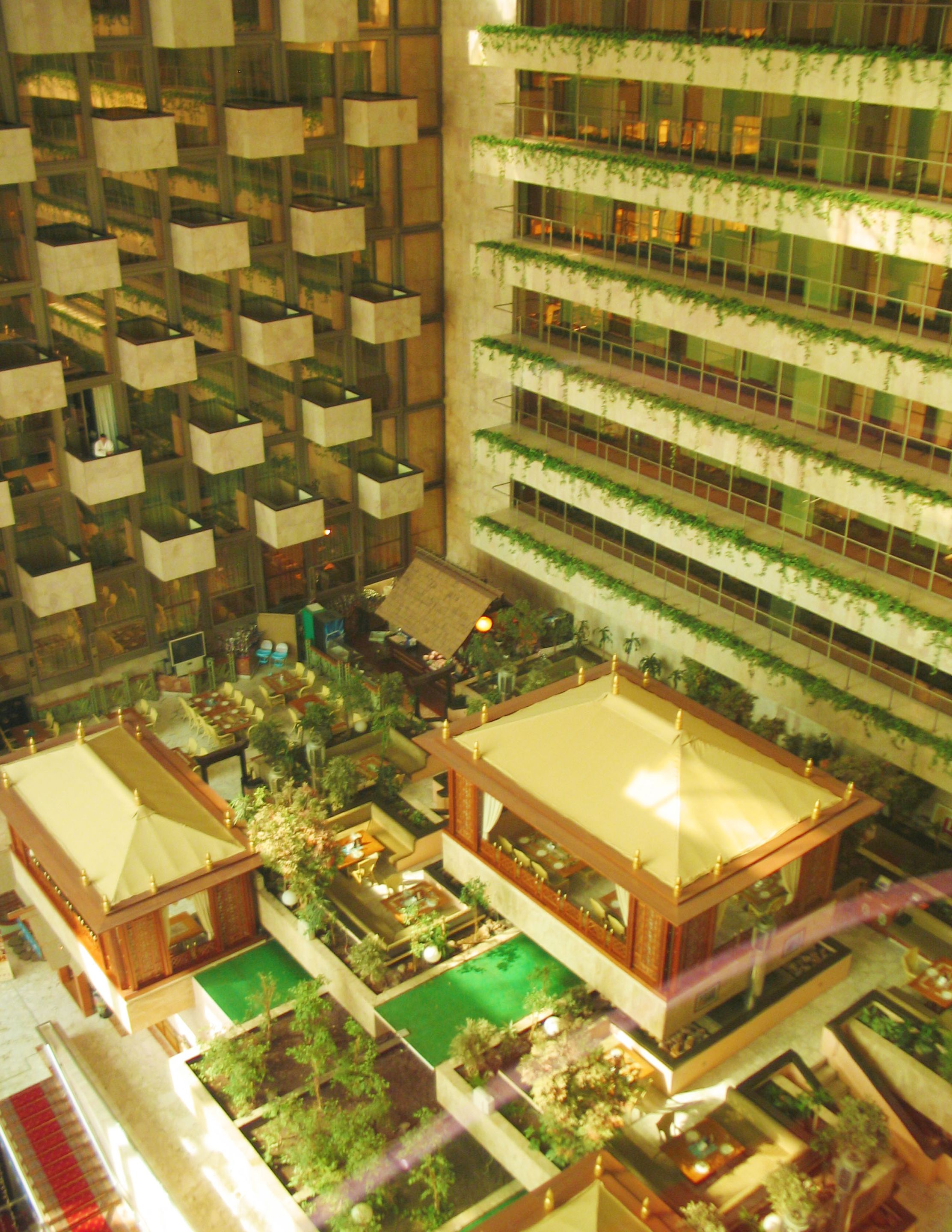
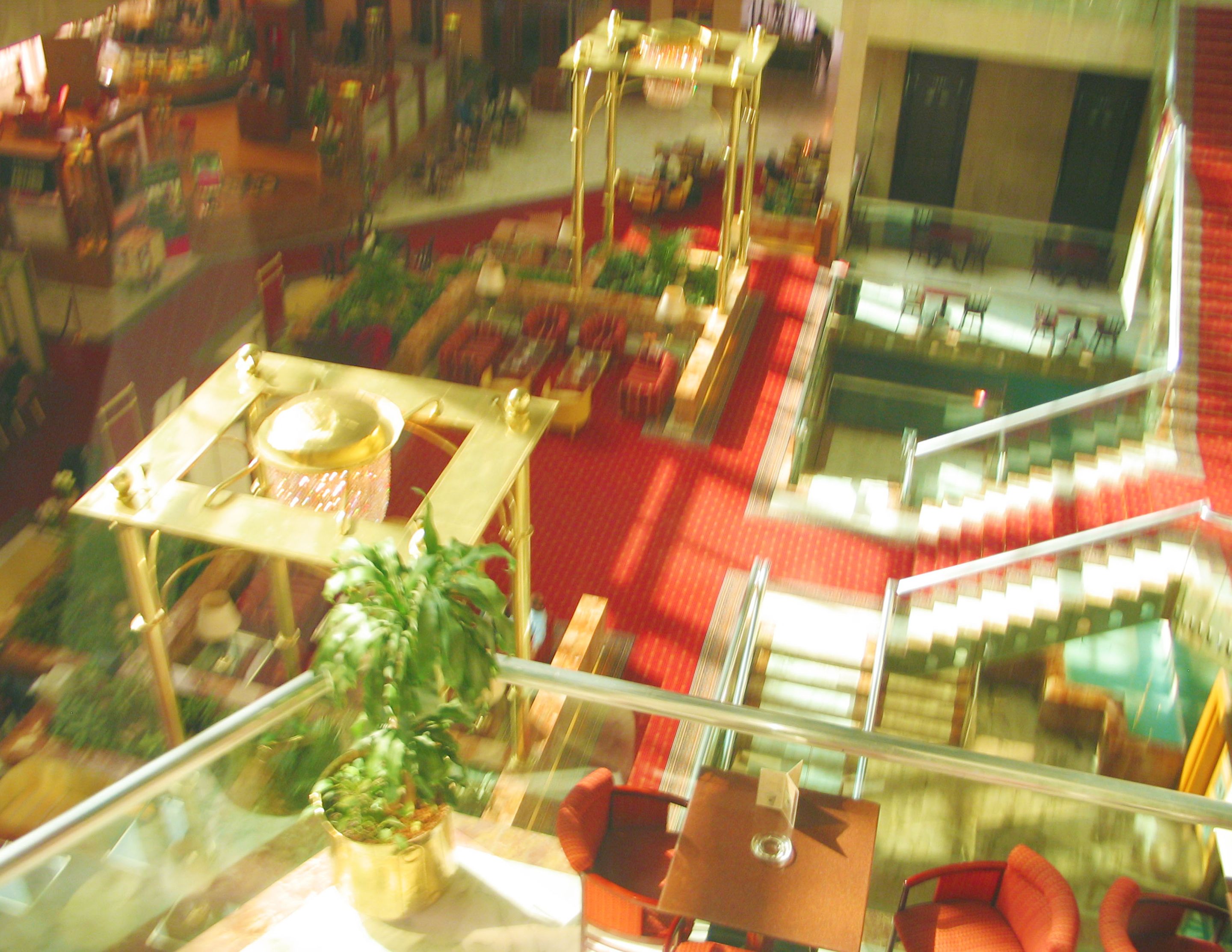
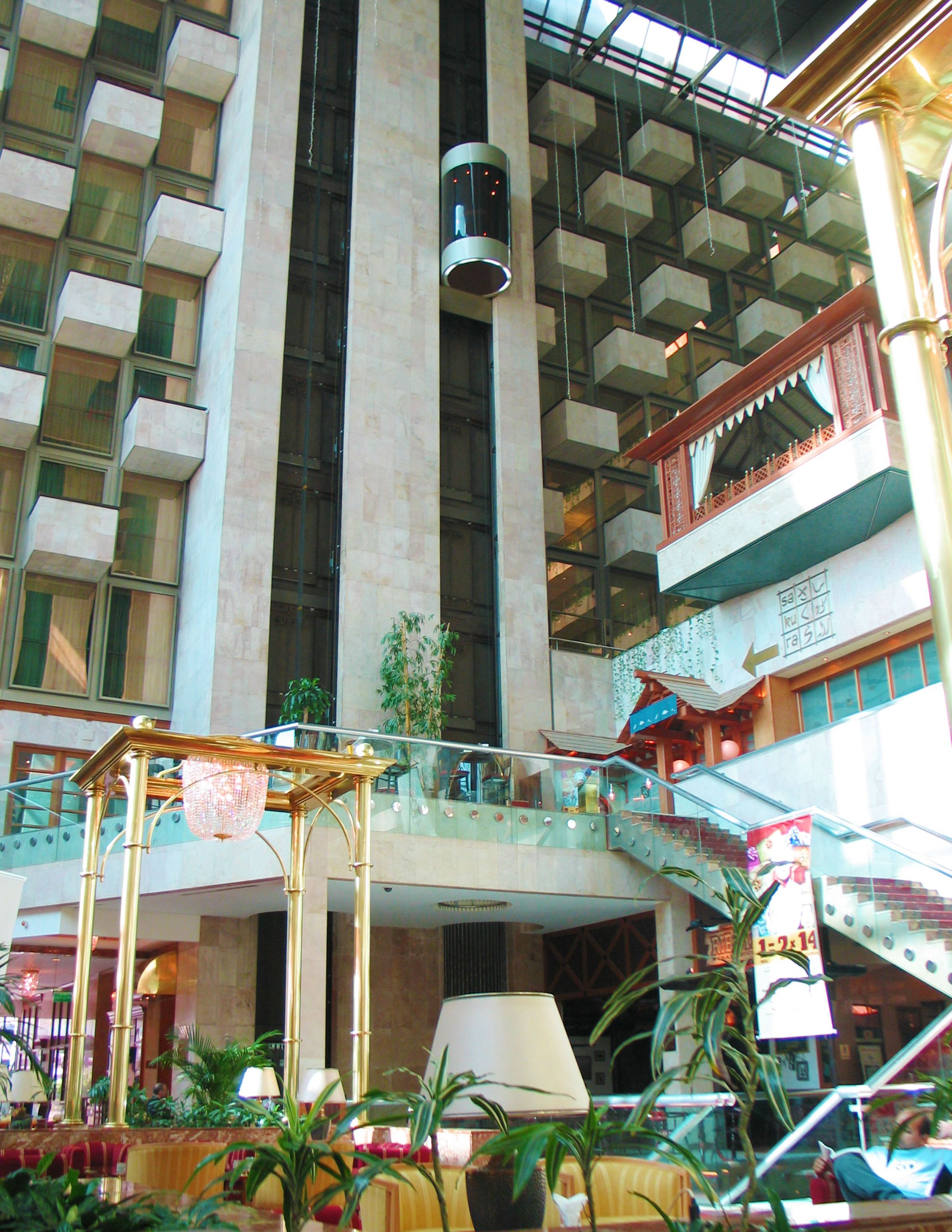
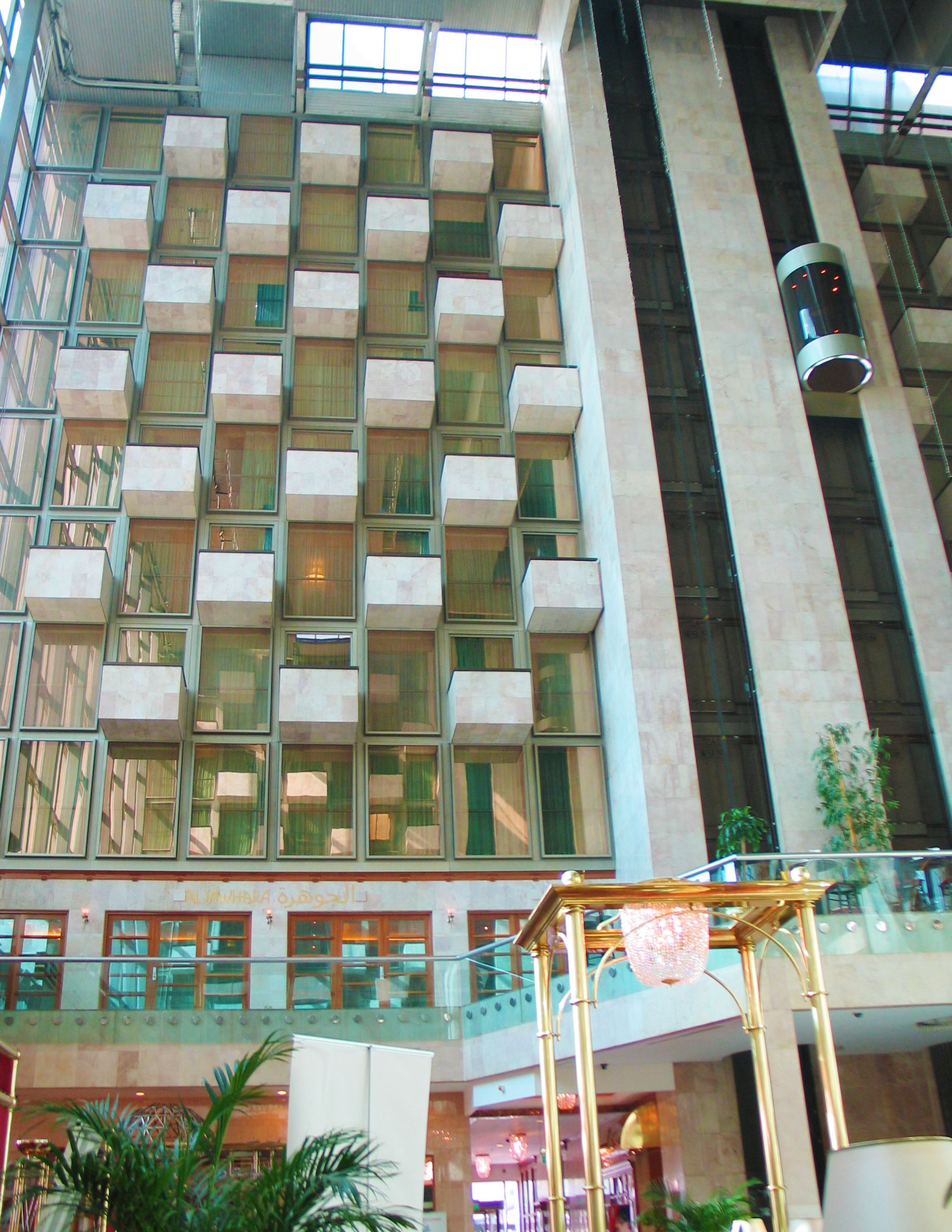
It was an evening arrival. From the international airport, my assigned chauffeur took me straight to the hotel where I had to fully rest due to my long flight. As soon as the sun rose the following morning, I could instantly taste the grandeur of Kuwait's architecture - starting with the eye-catching hotel lobby.
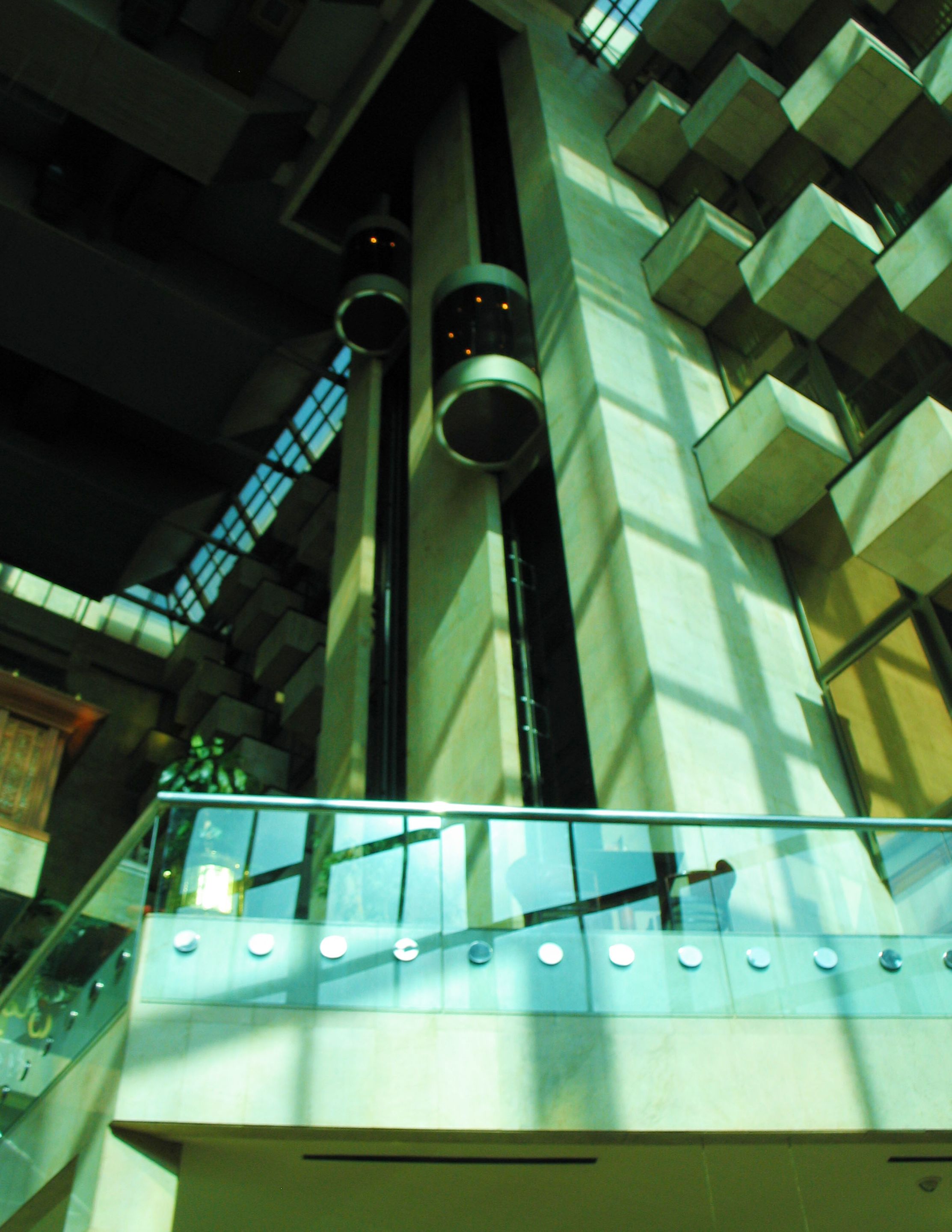
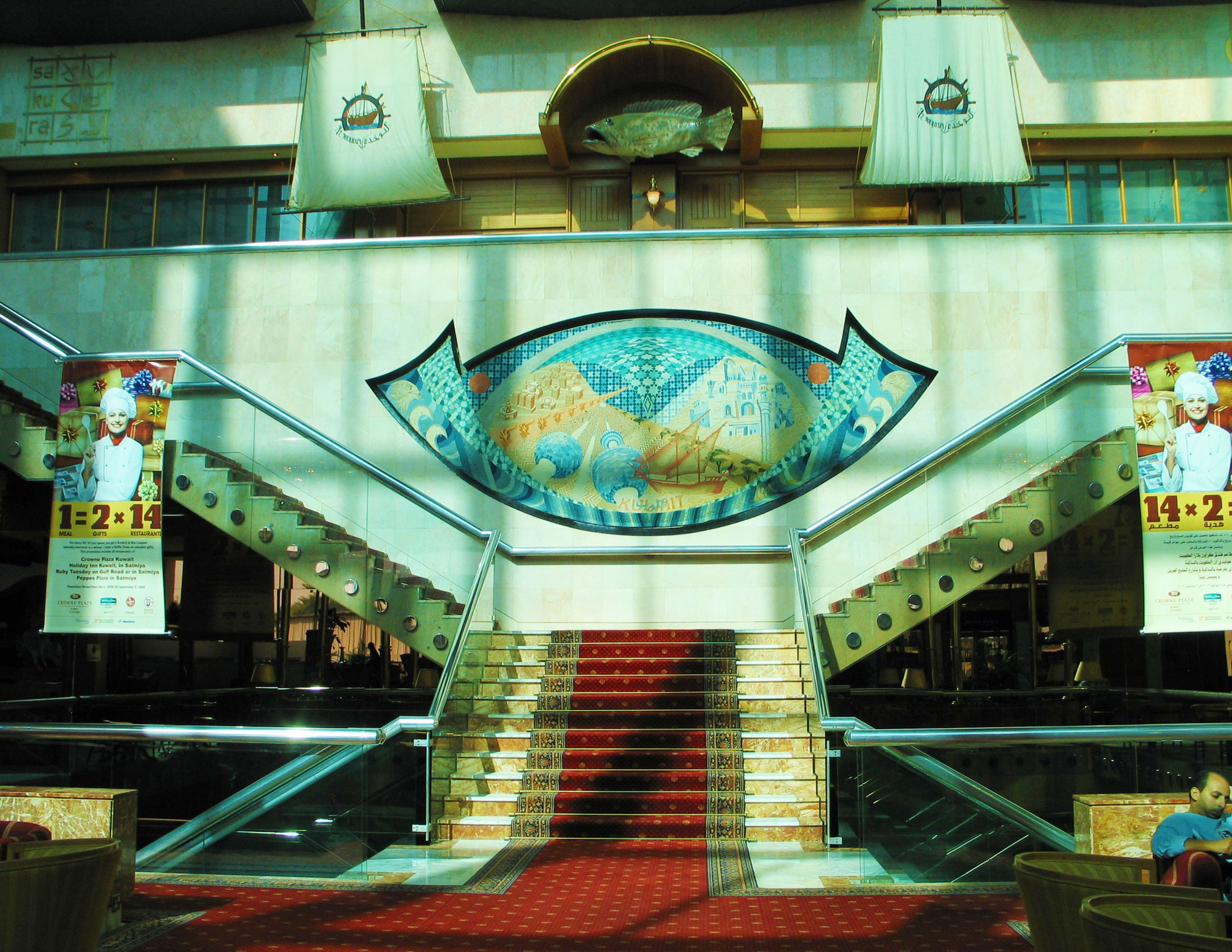
What a stunning sight! You can't overlook its massive atrium with a monumental floor-to-ceiling height. Equipped with a state-of-the-art scenic elevator, the entire lobby lounge was an architectural experience in itself. Almost every corner of this accommodation’s public area radiated with pure extravagance. Its interior design consisted of expensive elements such as well-tailored concrete surfaces, polished wood panels, high-quality wall fabrics, floor rugs and carpets, metallic finishes that shimmered like gold and silver, lush ornamental plants, plus designer furniture and decorative objects that would probably cost as much as a luxury sports car. I couldn't be more impressed!
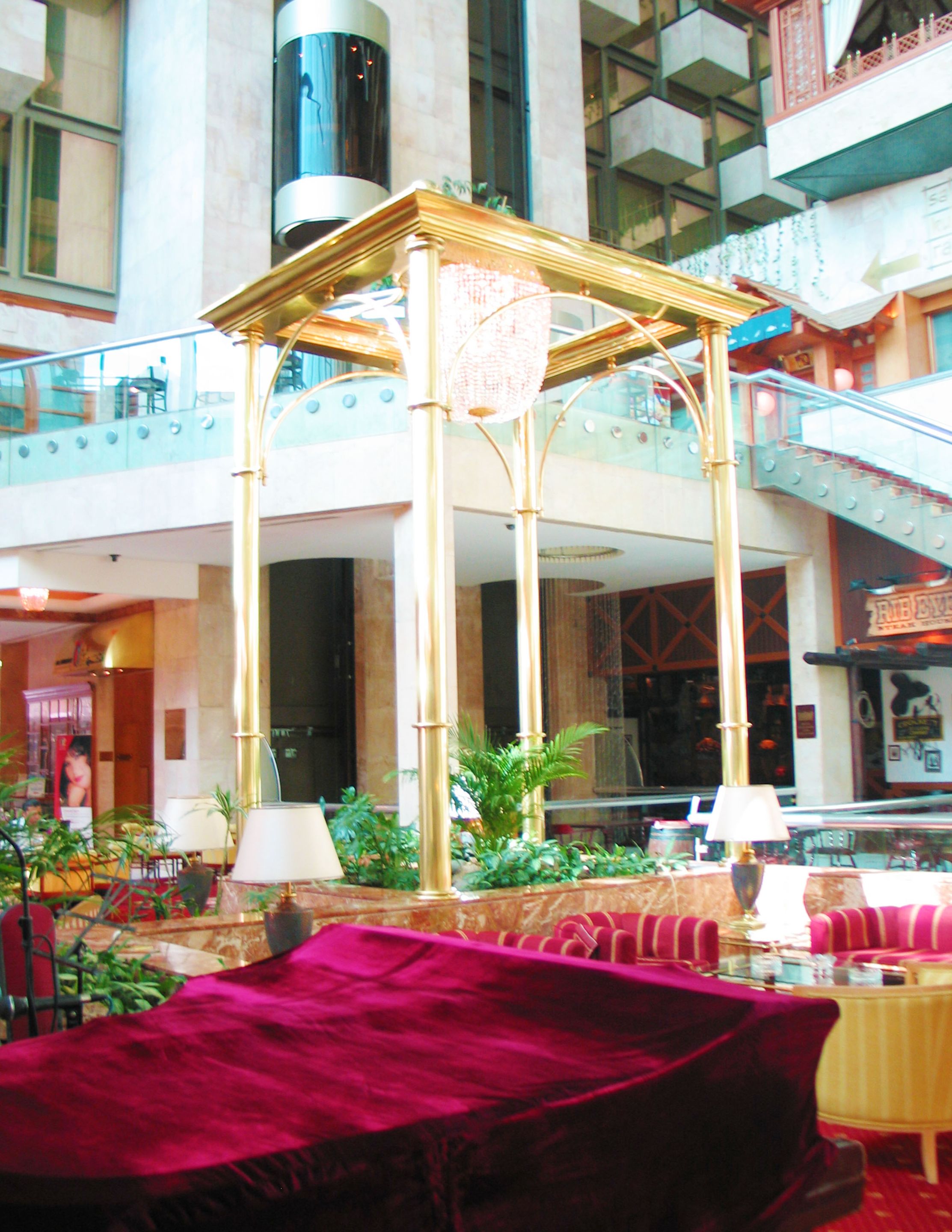
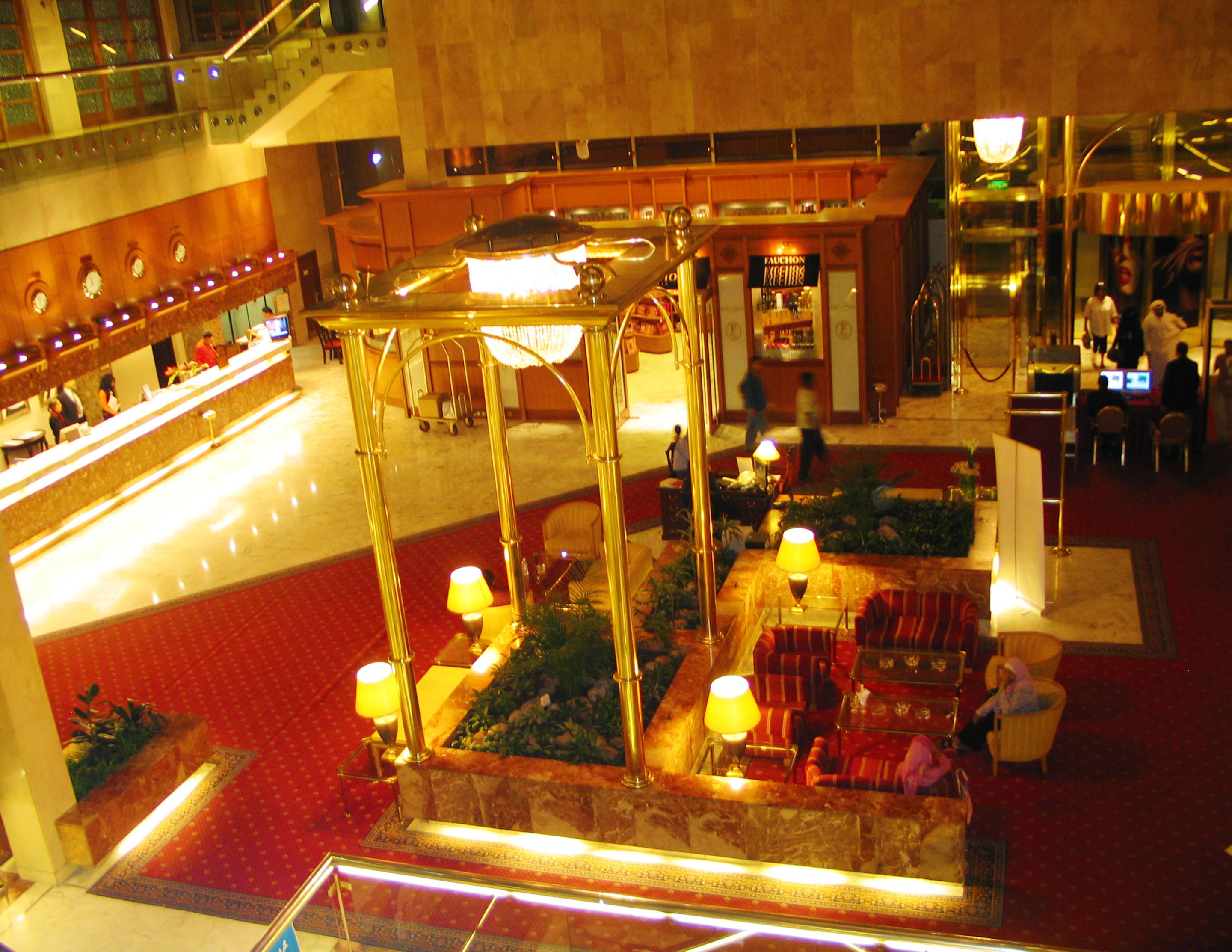
Although the indoor spaces exhibited a contemporary appeal, there were Islamic-inspired details that respected the local tradition. Intricate fretworks and screens. Elaborate mosaic patterns. Exquisite sculptural artworks. Arabic letters and inscriptions. These were a few of the cultural symbolisms that reflected the local tradition of its host country.
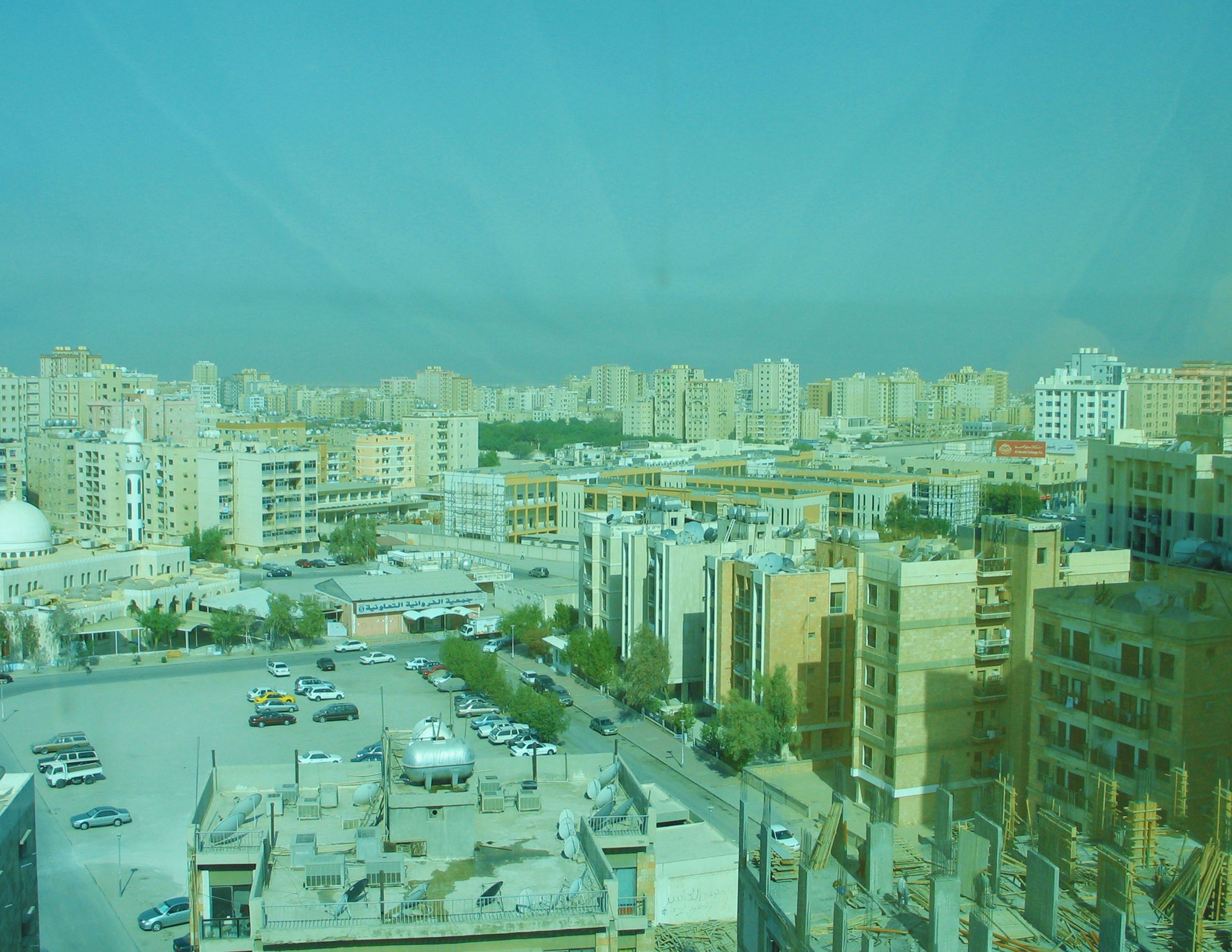
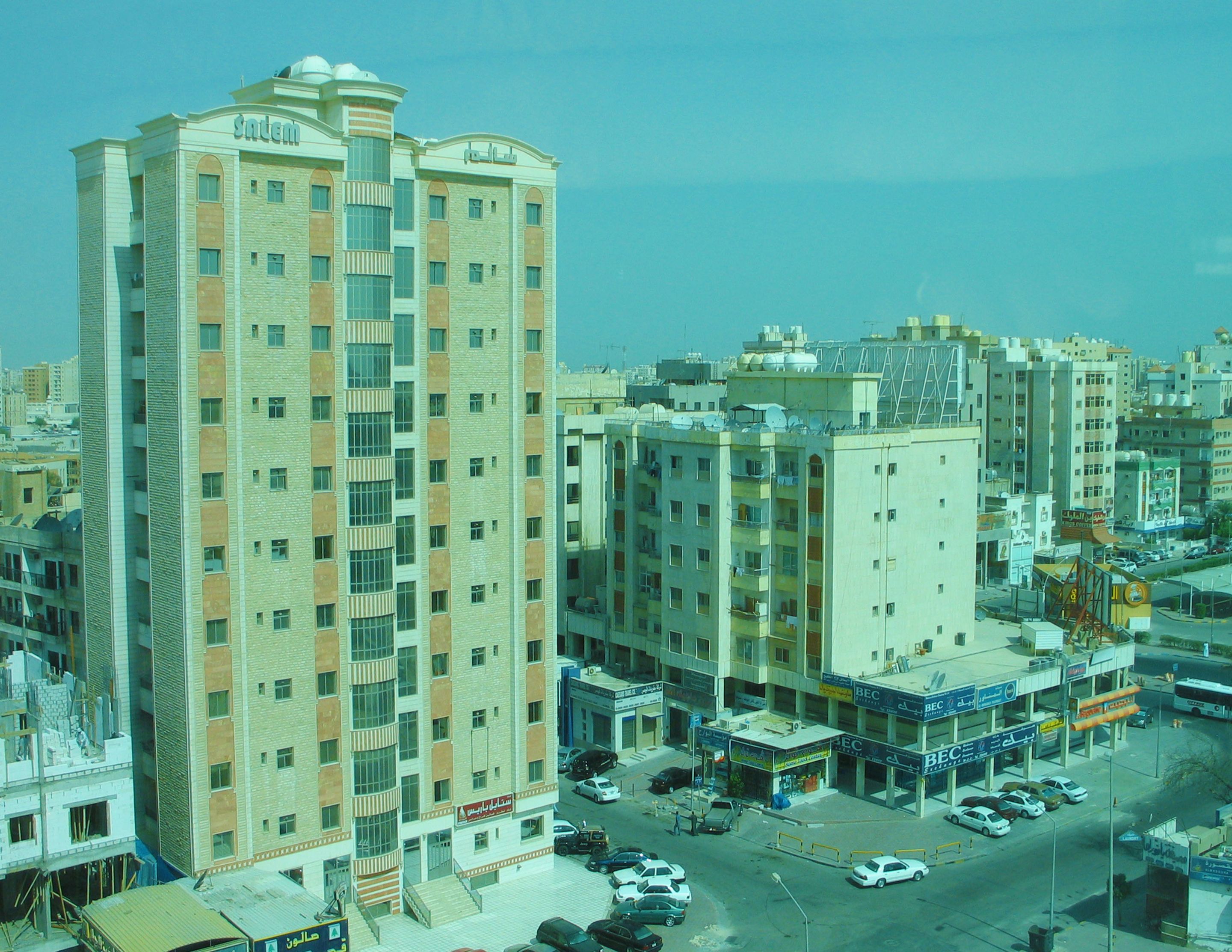
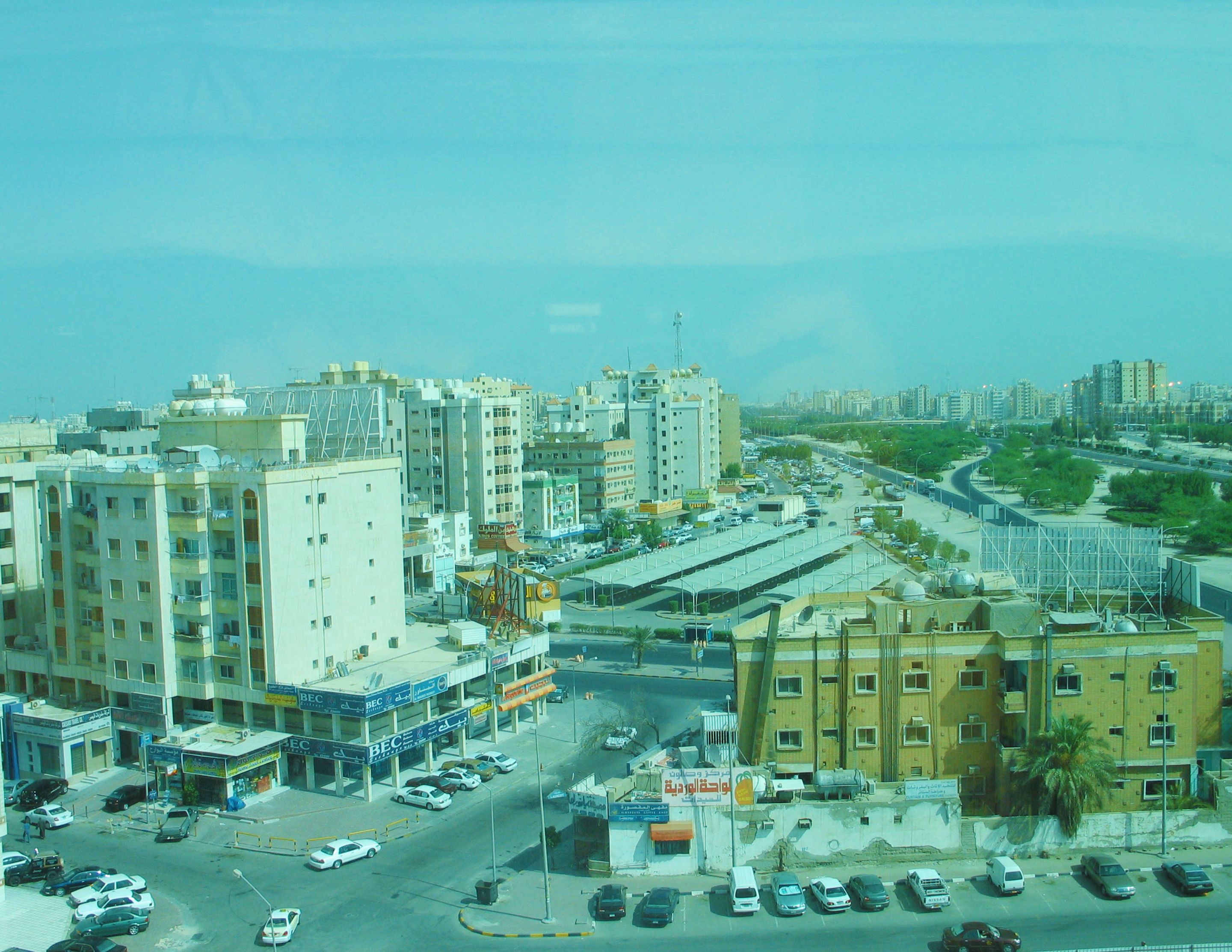
Moreover, even without venturing outdoors yet, I already enjoyed a panoramic preview of Kuwait’s urban atmosphere from the comforts of my hotel guestroom. The special filter clearly obvious in the featured photos was due to the bluish tint of the building's exterior clear glass claddings, providing an immersive visual experience. Absolutely stunning views!
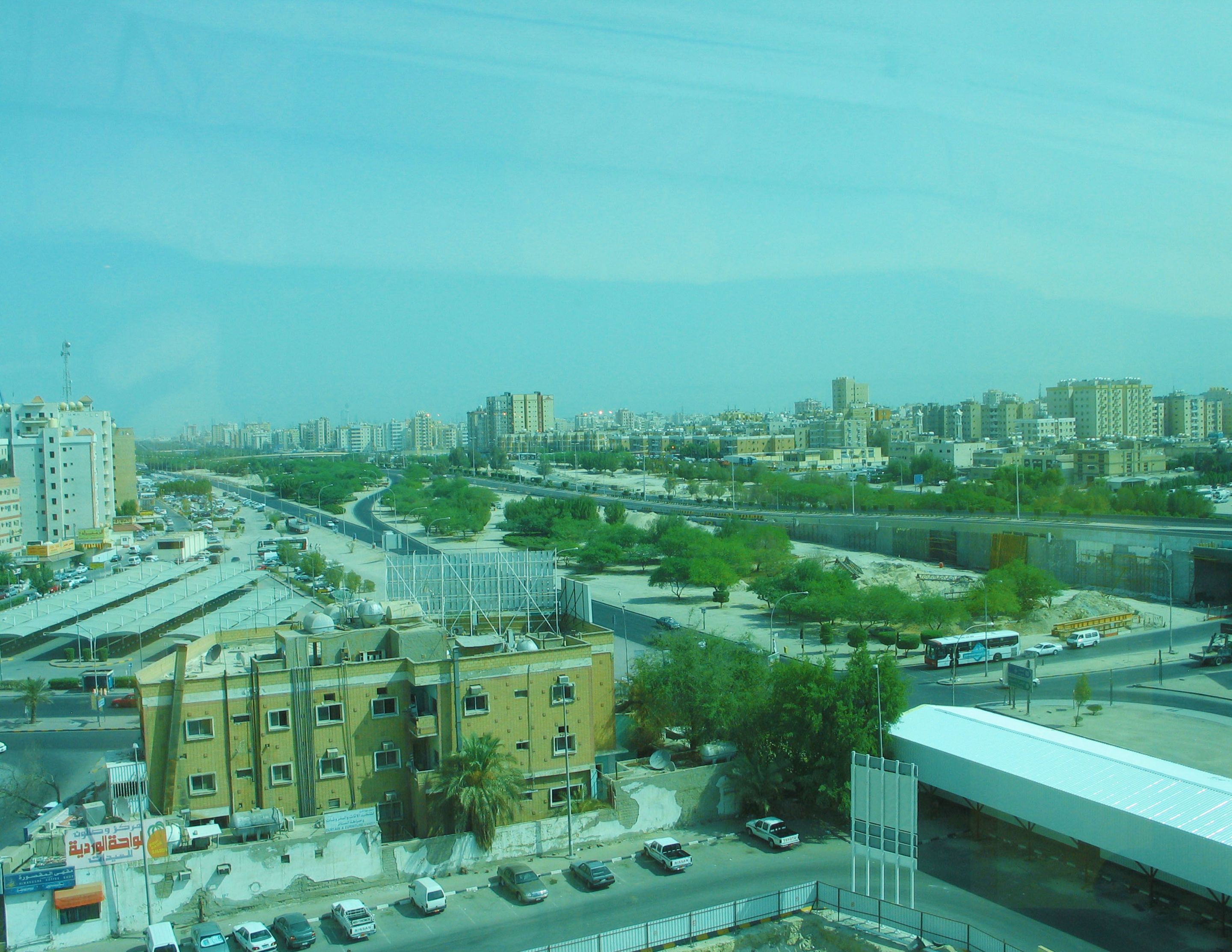
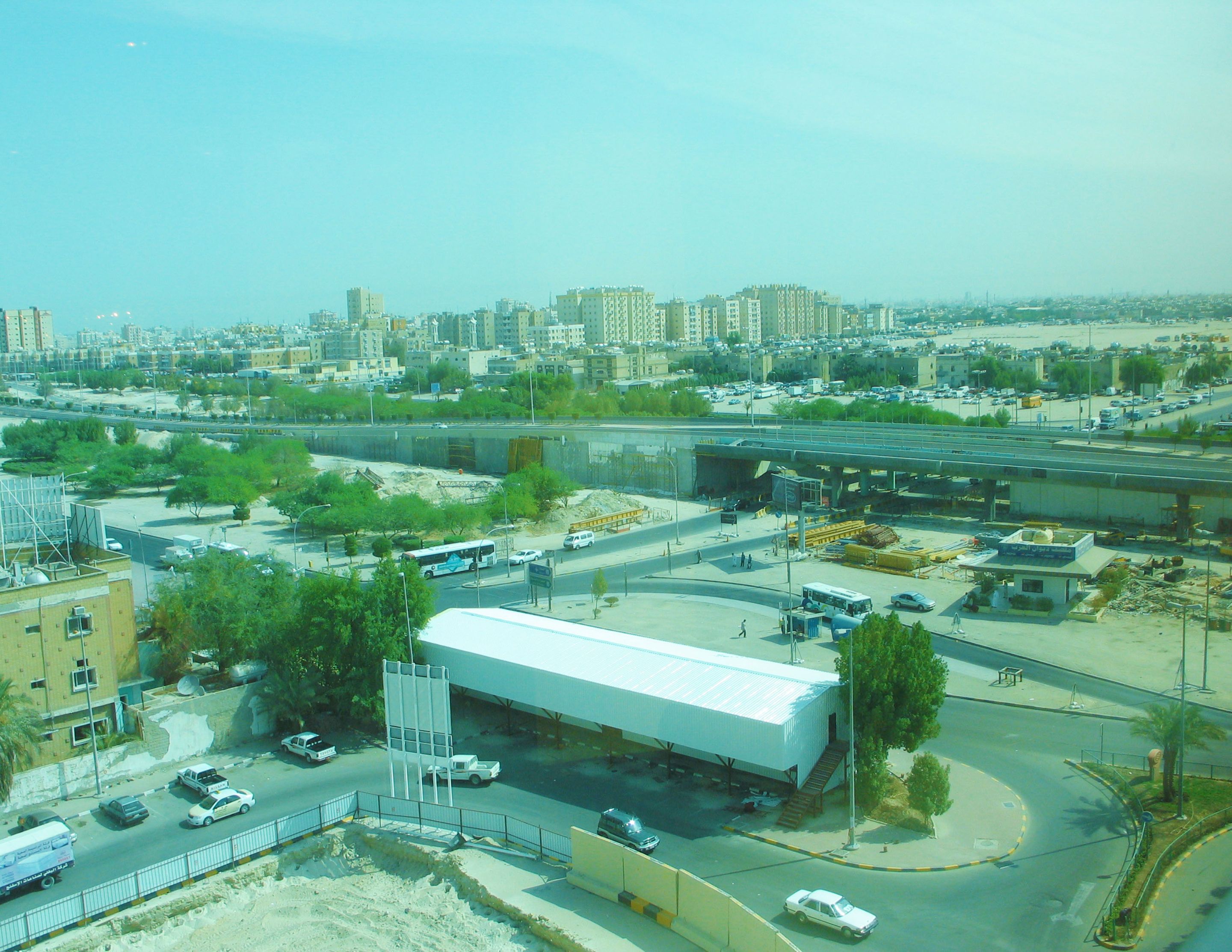
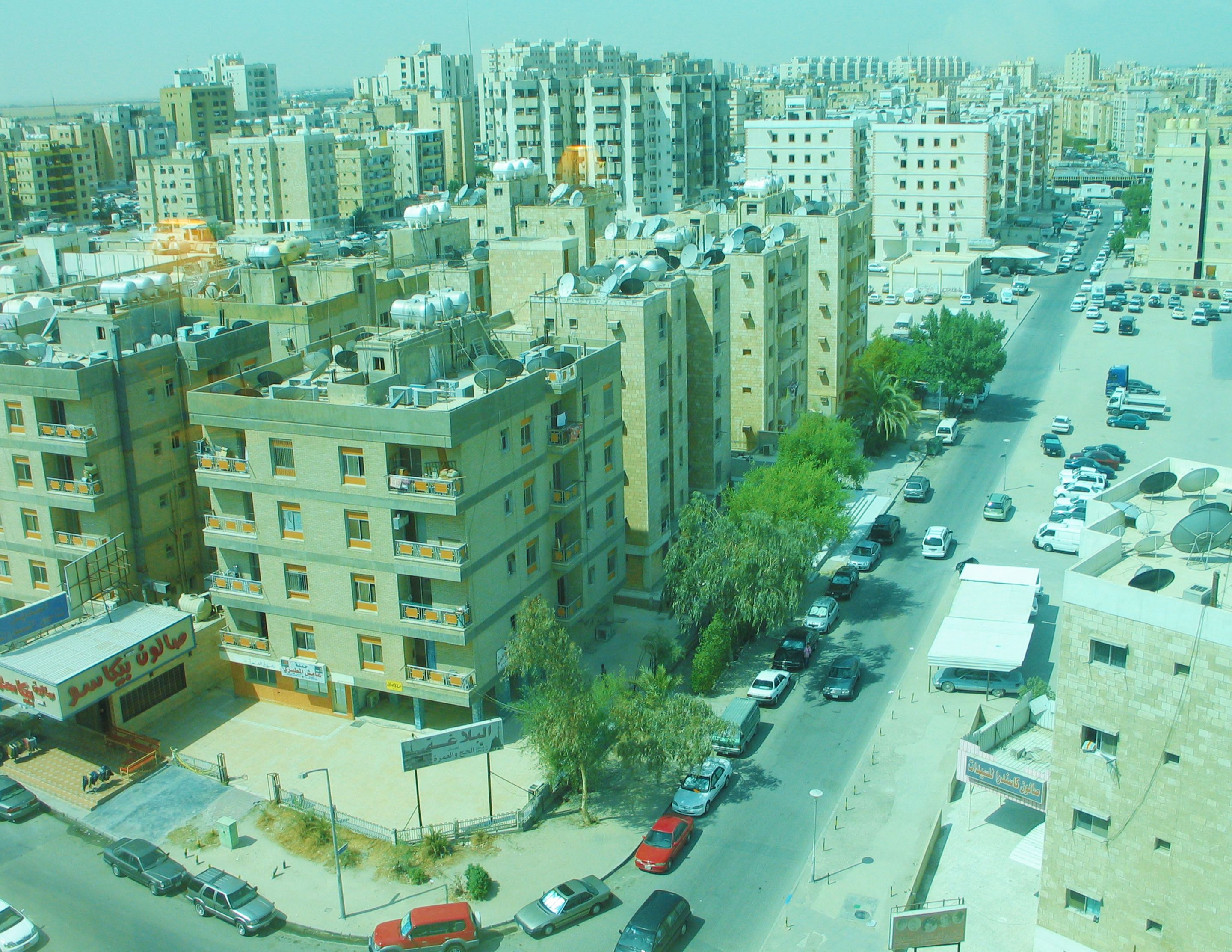
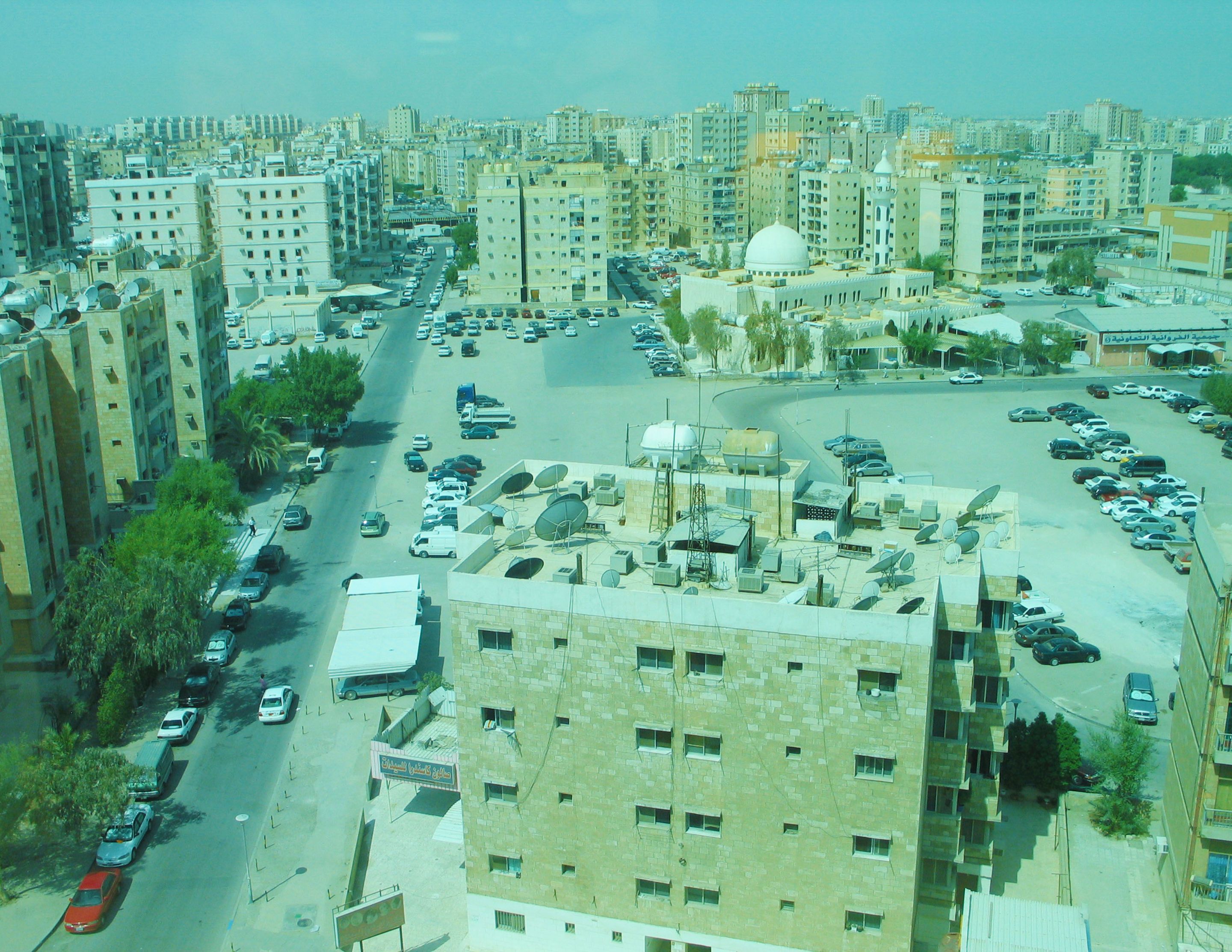
As you can clearly see, Kuwait could also be considered a concrete jungle with lots of stonework incorporated with glass sidings, and only minimal instances of steel elements in the surrounding residences, buildings, and skyscrapers.
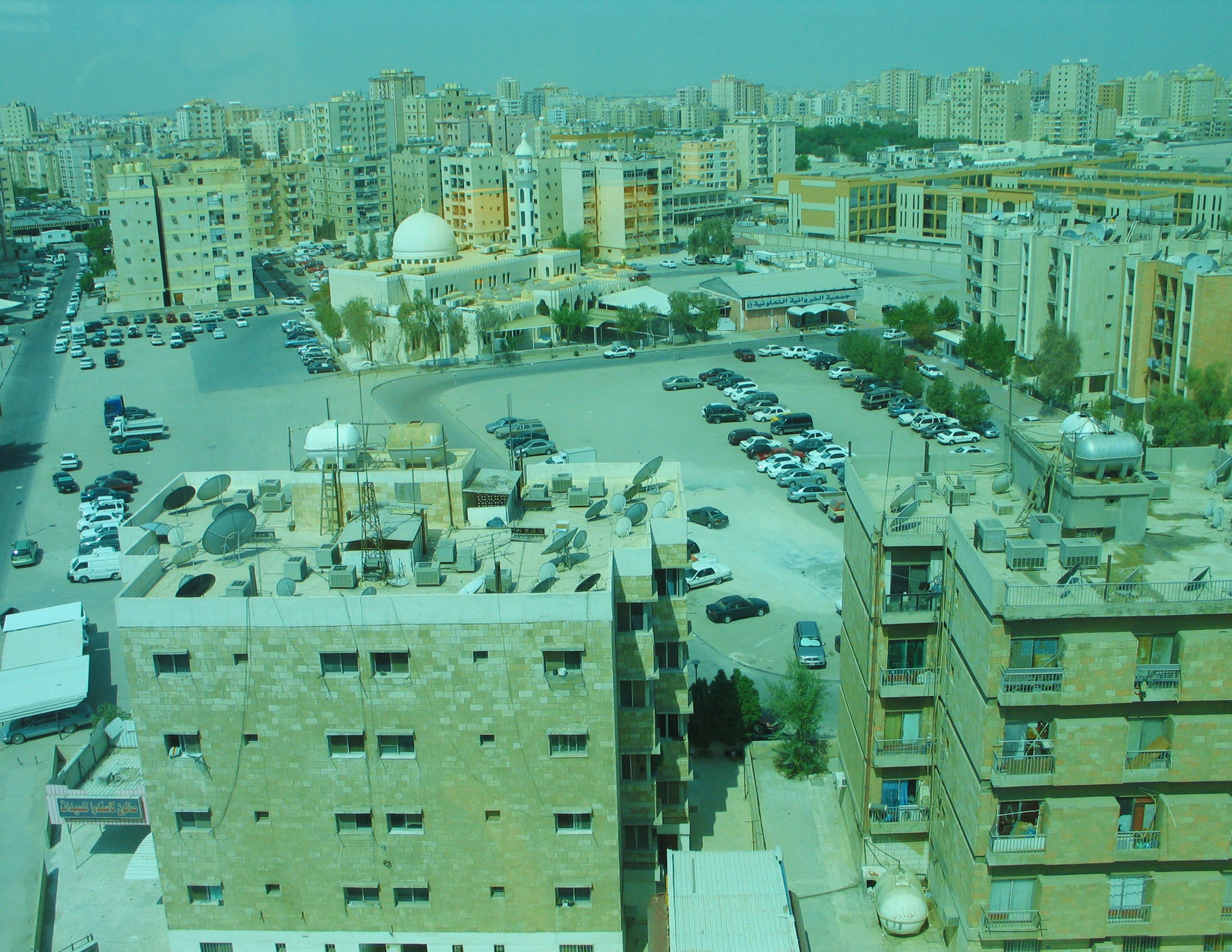
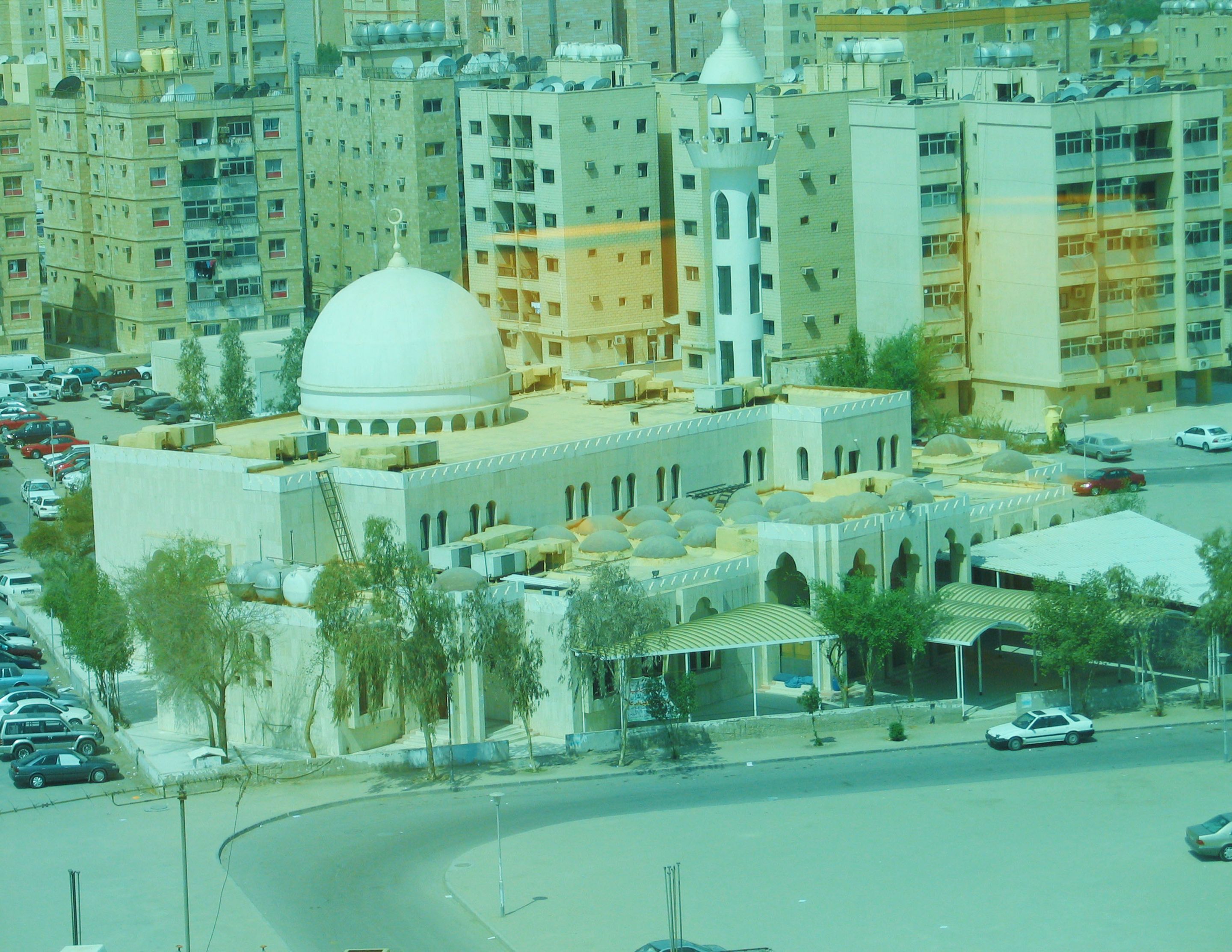
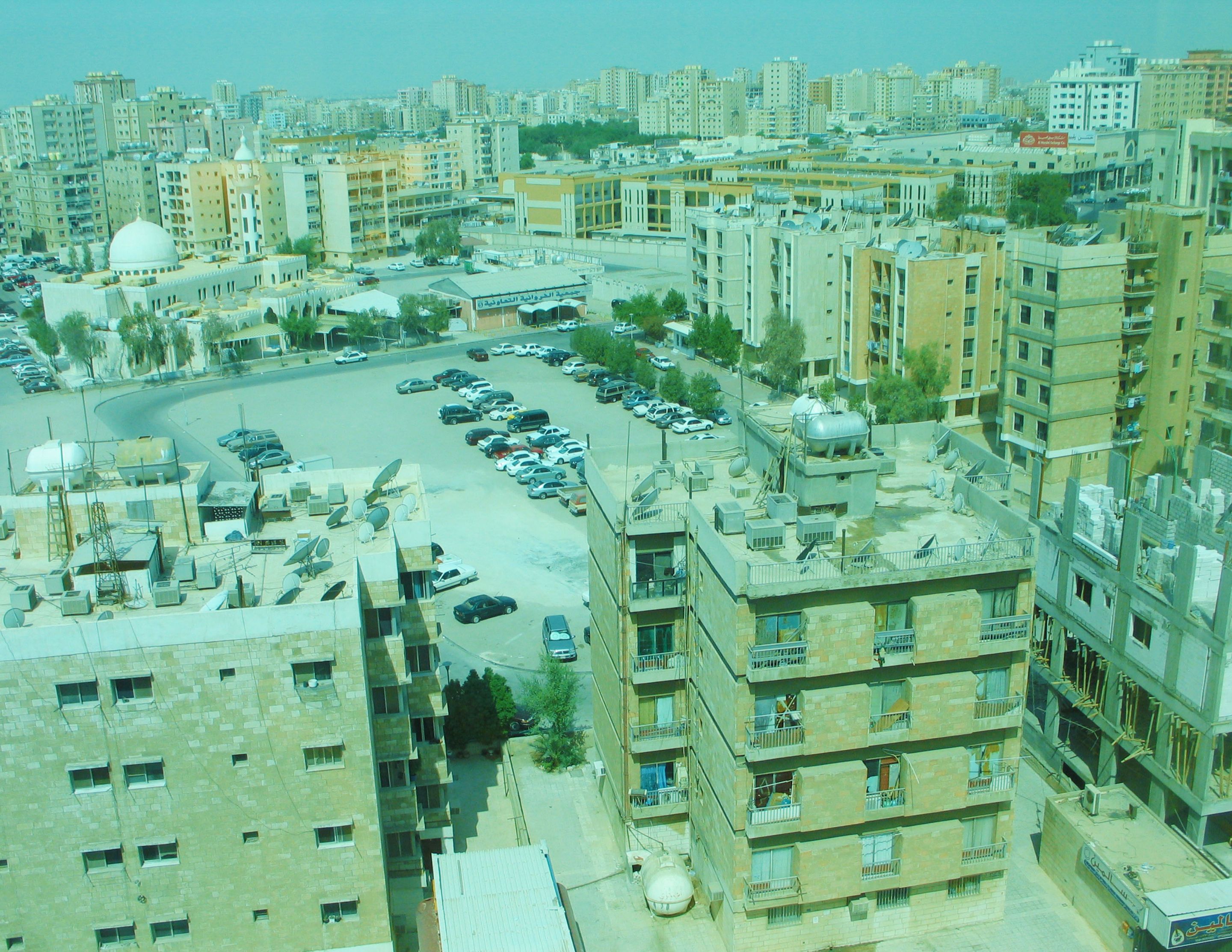
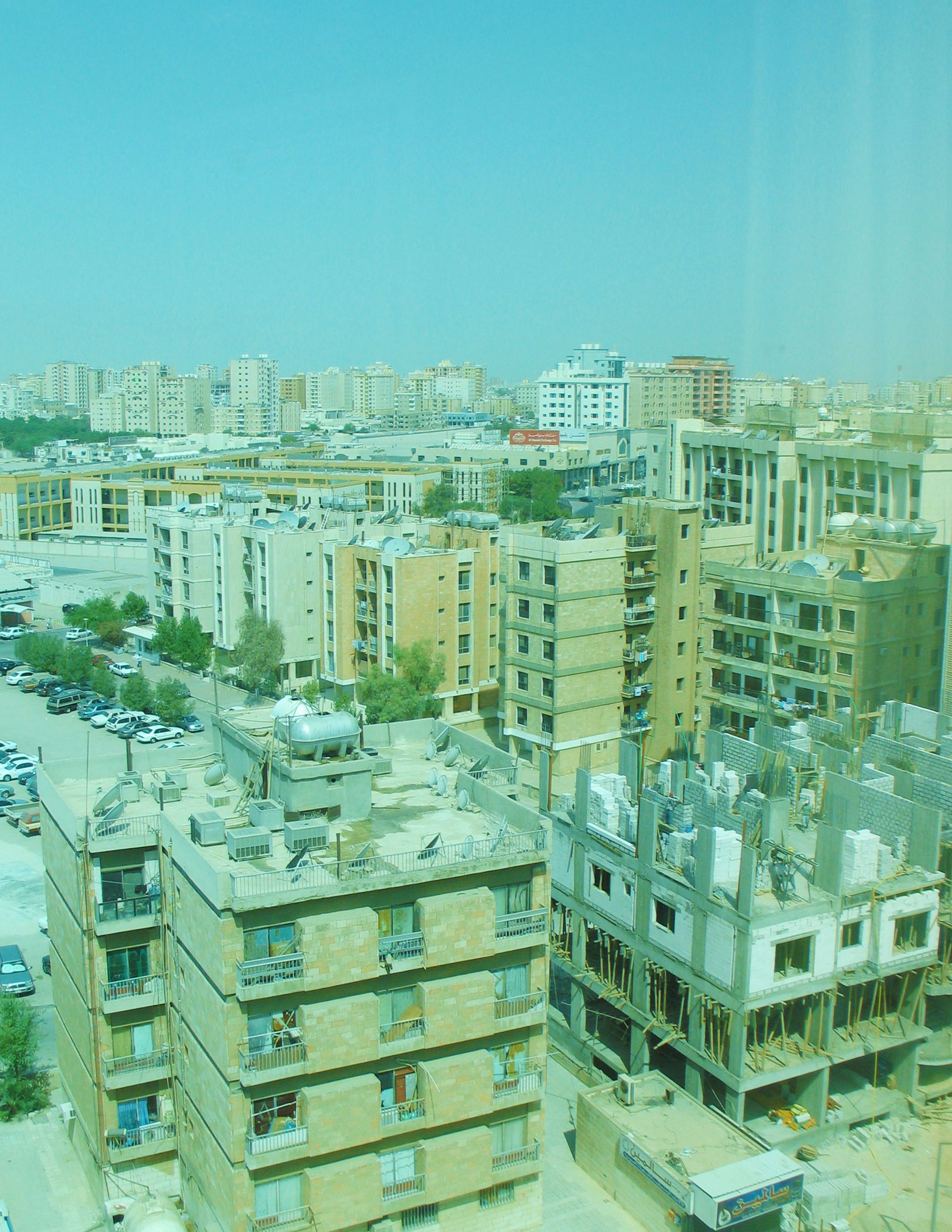
Most of the existing structures were not that tall (probably averaging 5 to 10 storeys or more), as compared to the towering edifices of New York, London, or Dubai. Only a few towering monuments stood out. In fact, the necessary building materials for these types of architecture had a primary purpose in mind - to shield themselves from the harmful rays of the sun and to create formidable enclosures for protection and cooling of their occupants. Their current building technologies had smartly adapted to the region’s prevailing climate because it seldom rains in this part of the world.
The Traditional Relevance of Kuwait’s Architecture
Historically, similar to her neighboring Arab nations, the Kuwaitis had modest origins as tribal groups. Their natives had to continuously shield themselves from the sun’s heat in the desert through the construction of tents, makeshift abodes, and appropriate shelters until they eventually learned to develop modern infrastructure to their advantage.
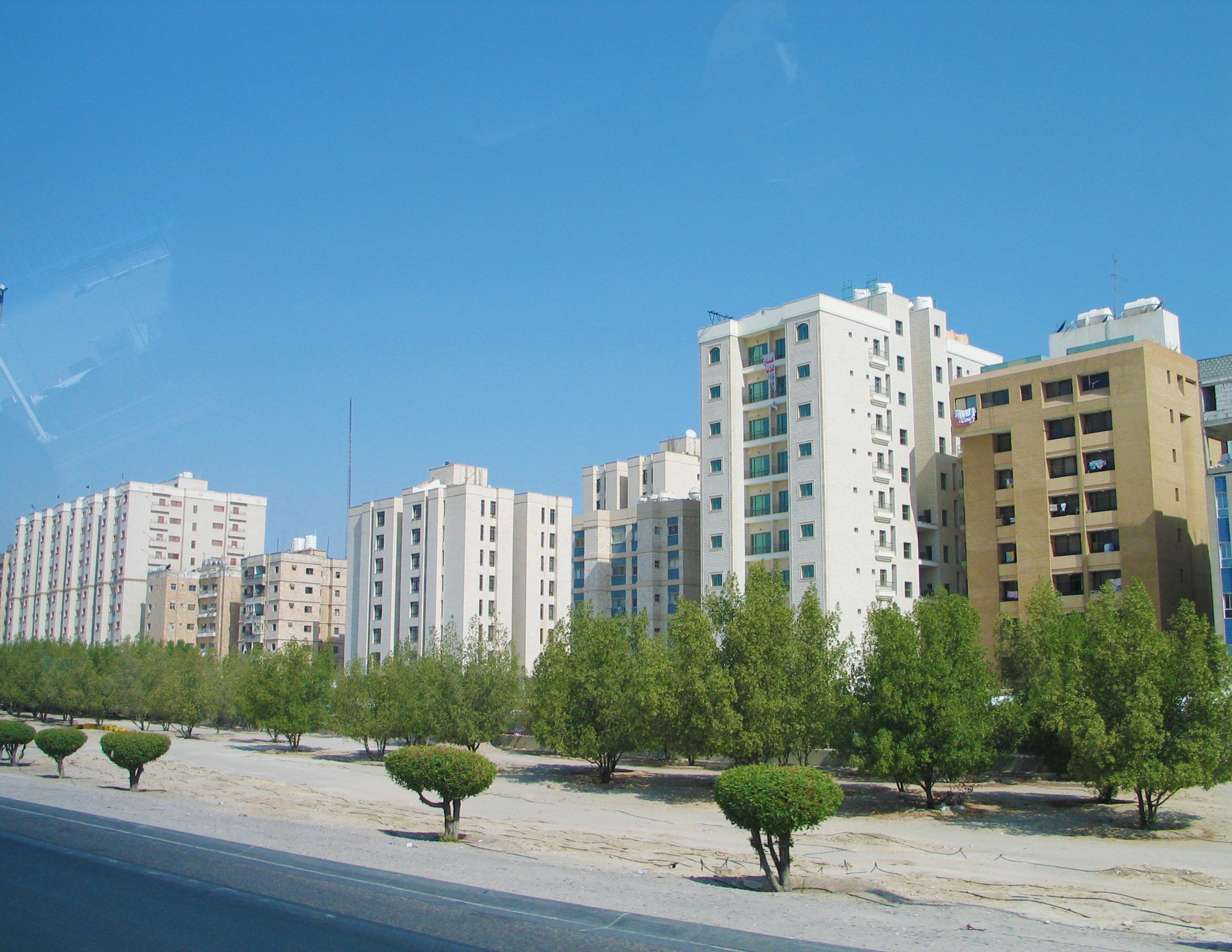
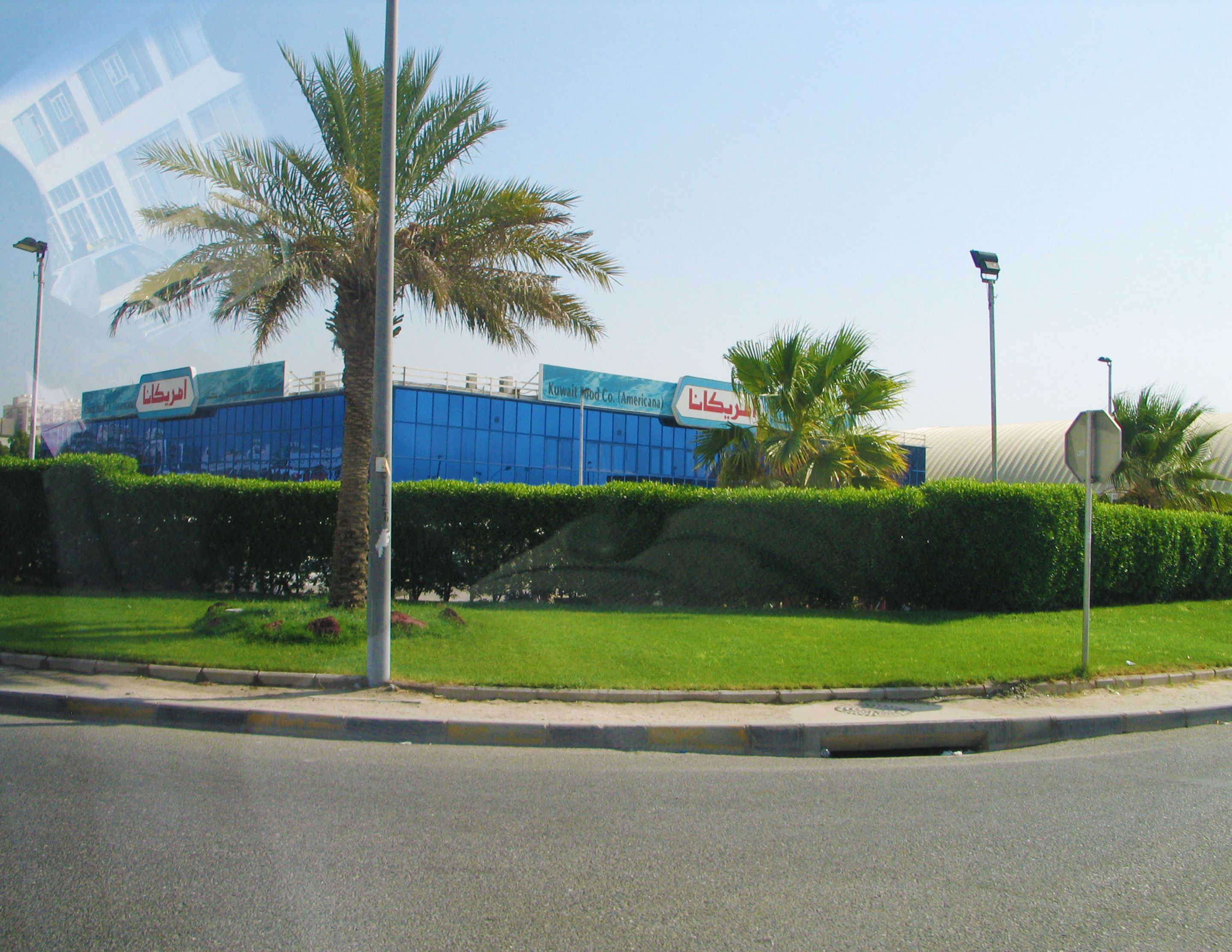
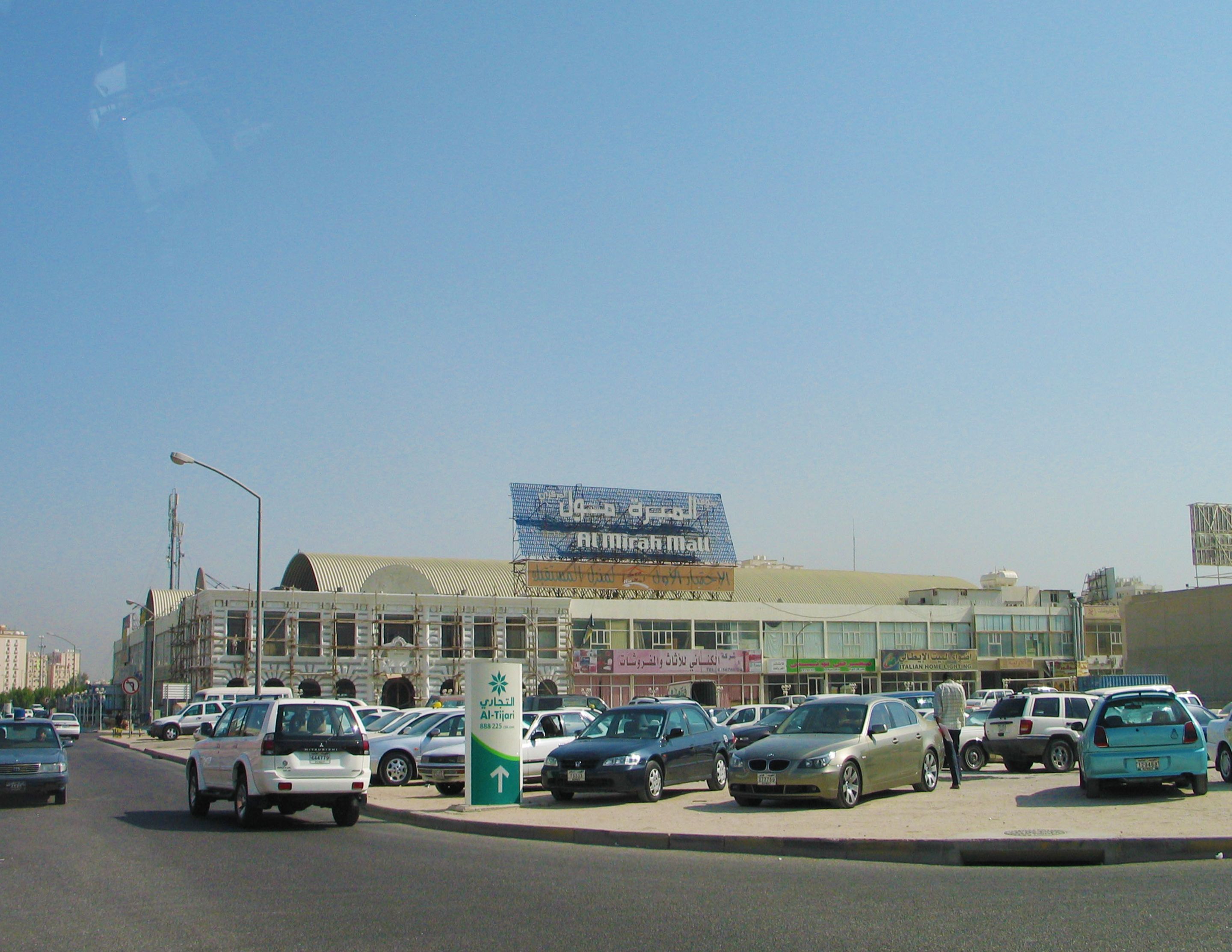
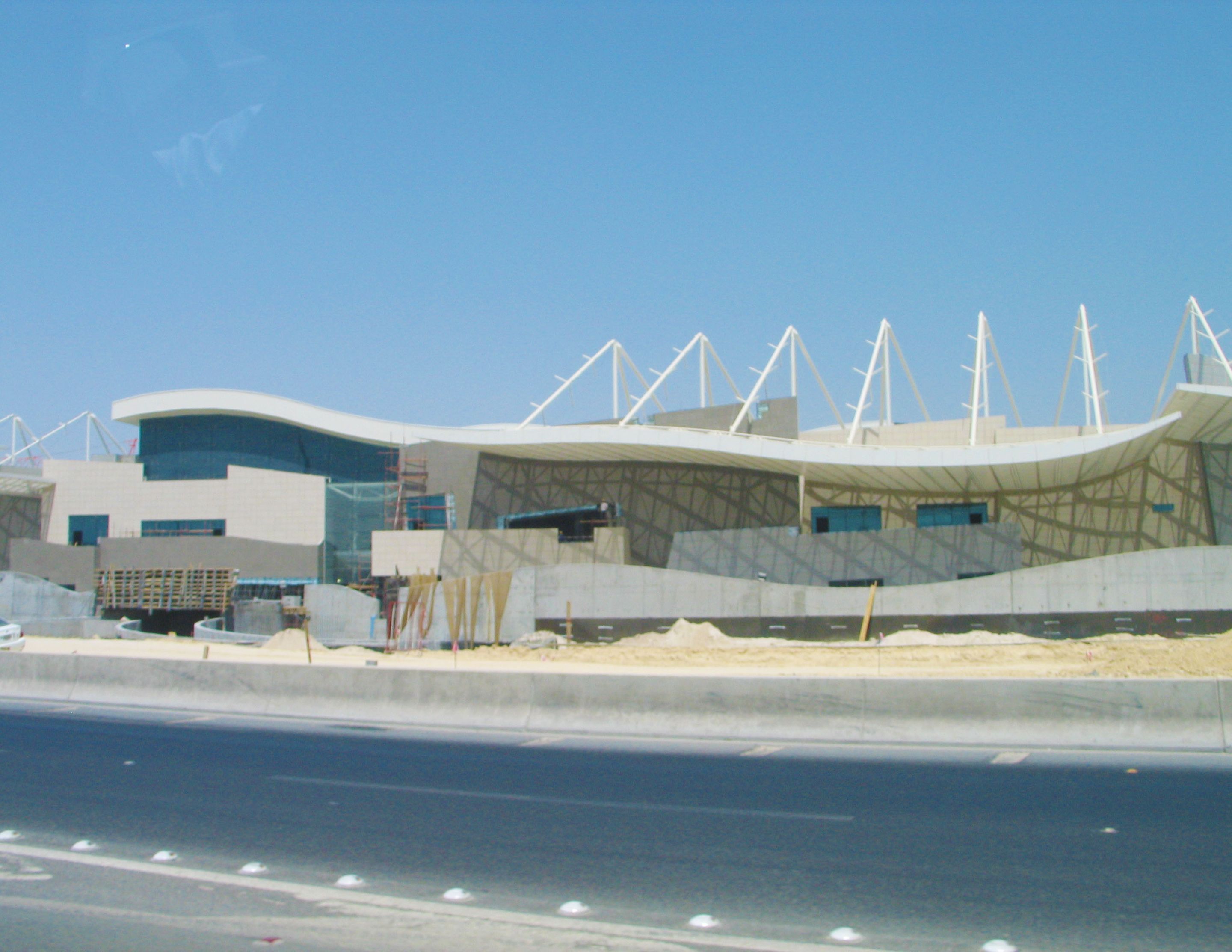
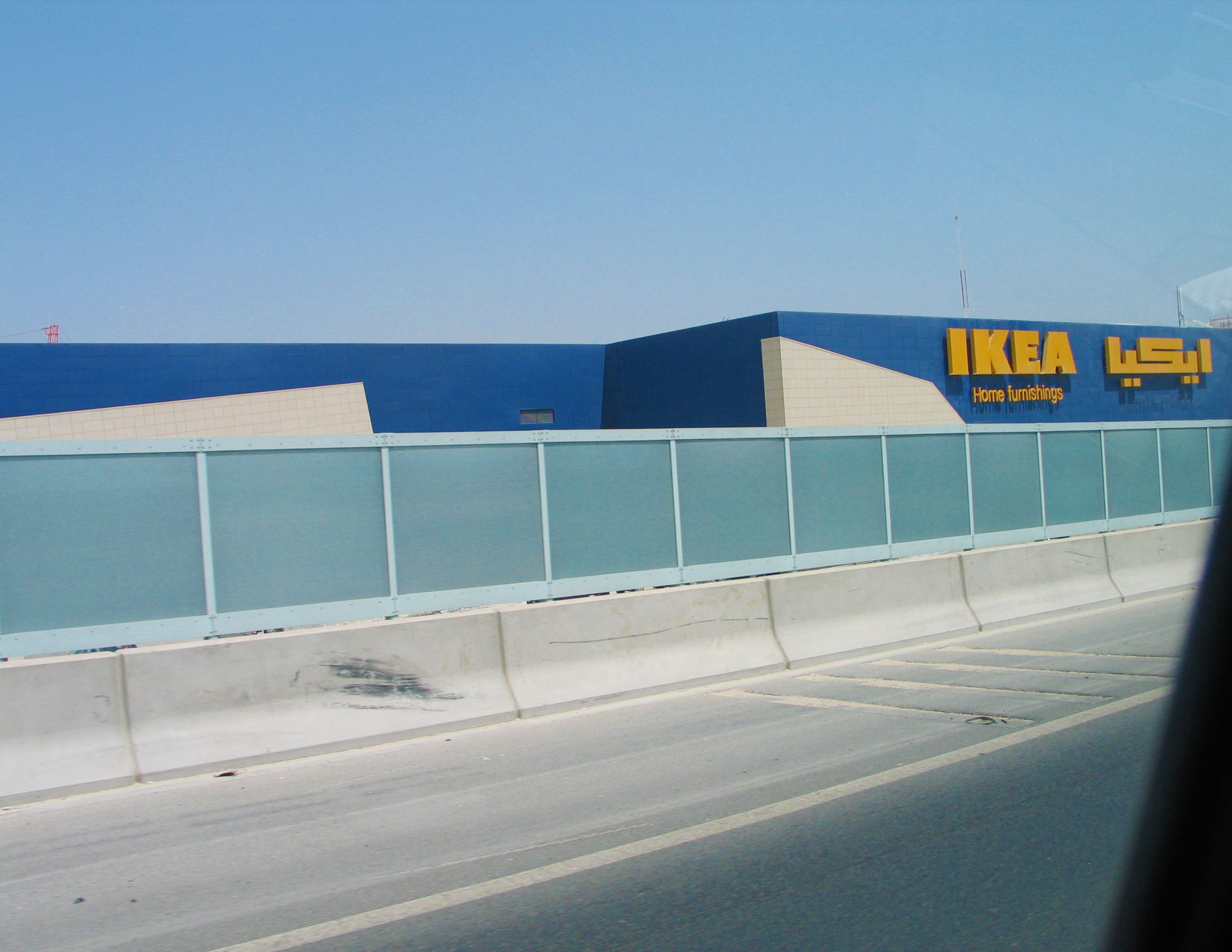
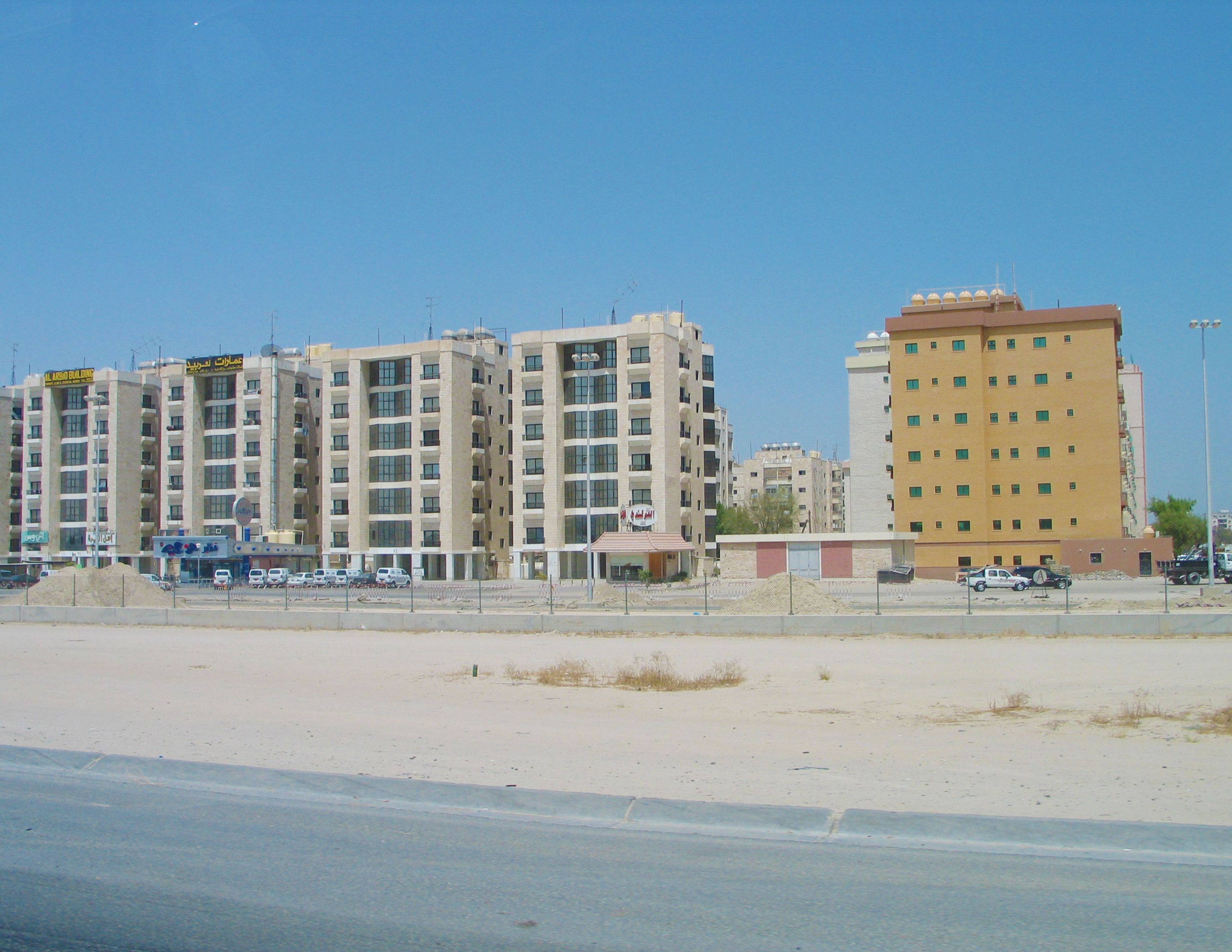
These were my actual observations while cruising around the metropolis (thanks to a special tour guide who also drove for me). As a result, I was able to capture these fascinating glimpses of Kuwait's urban architecture and its immediate surroundings.
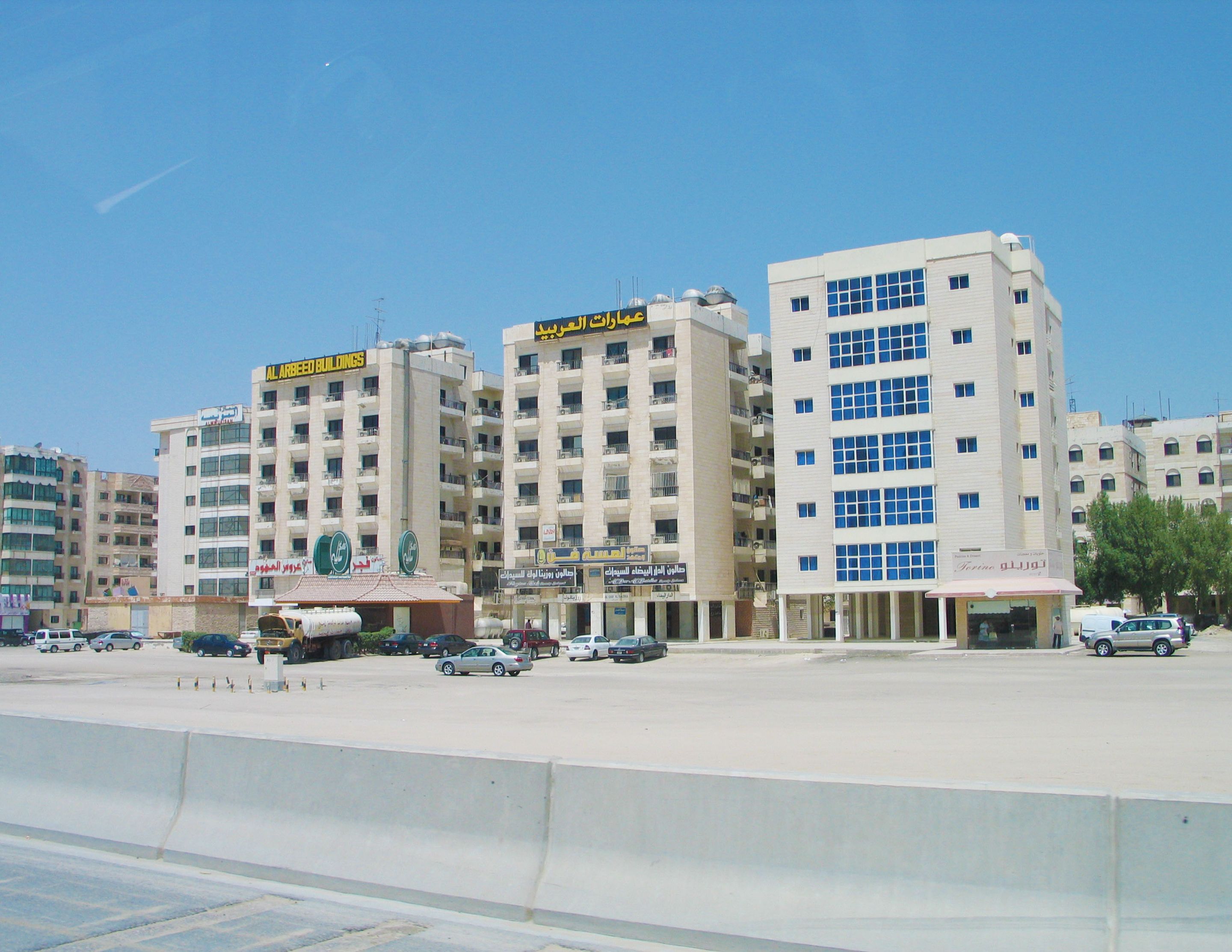
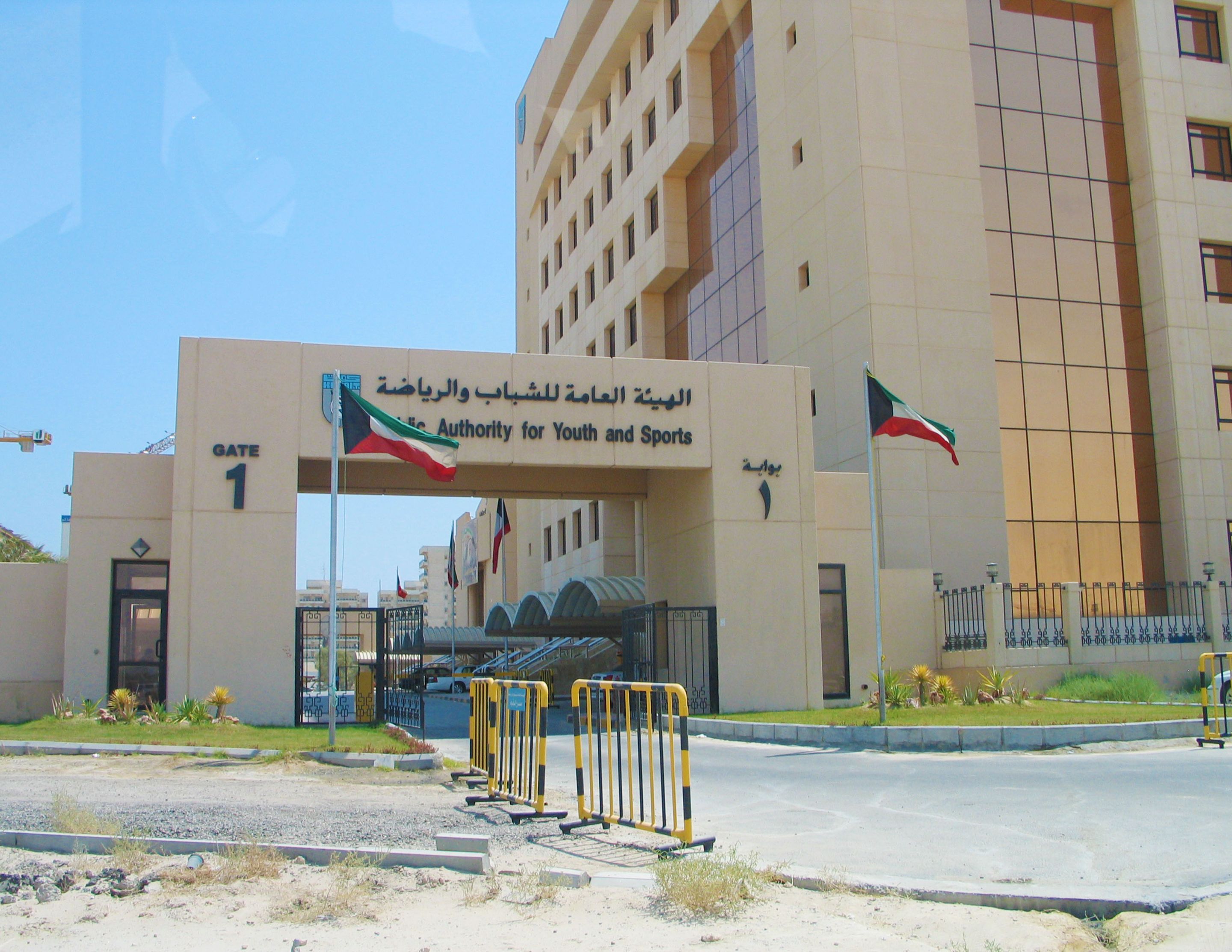
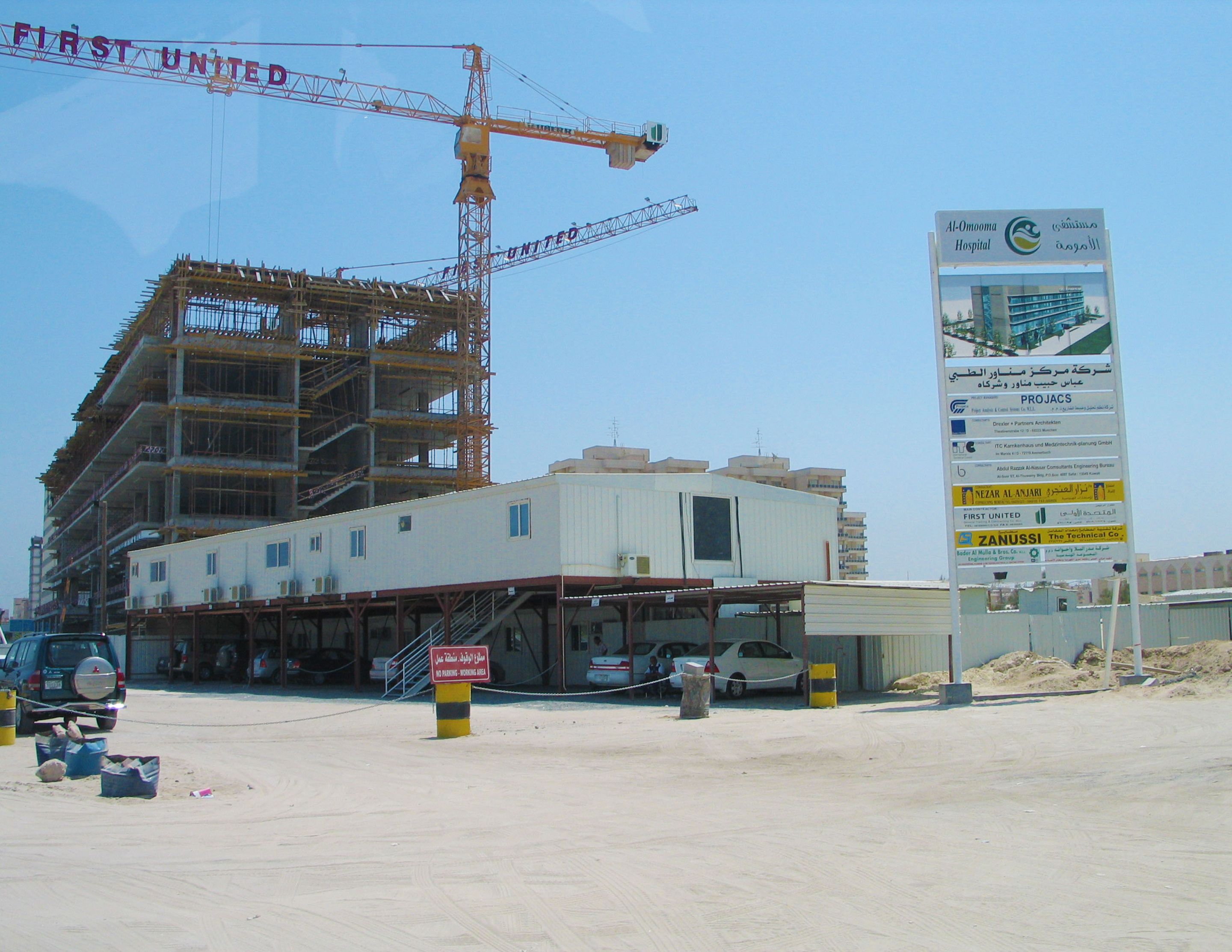
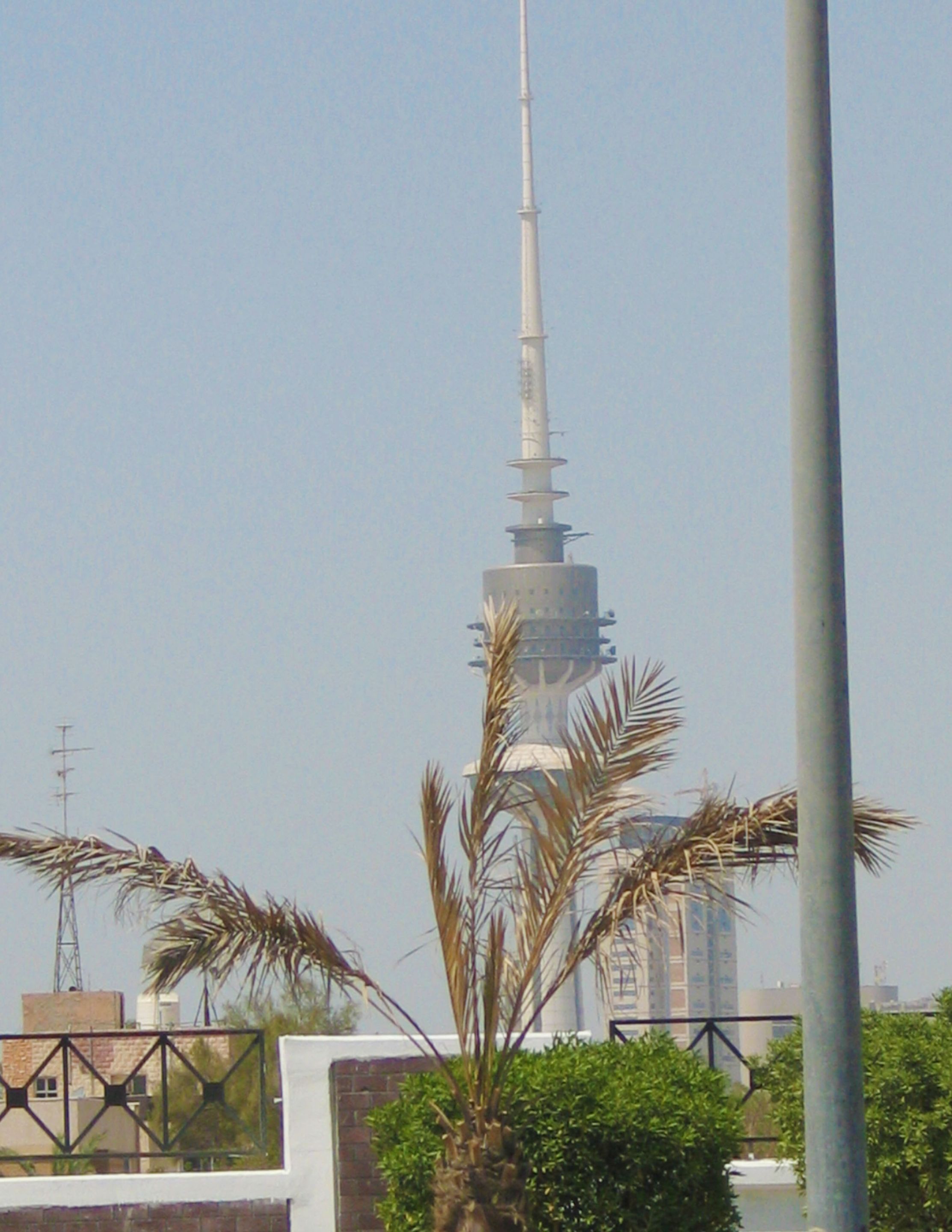
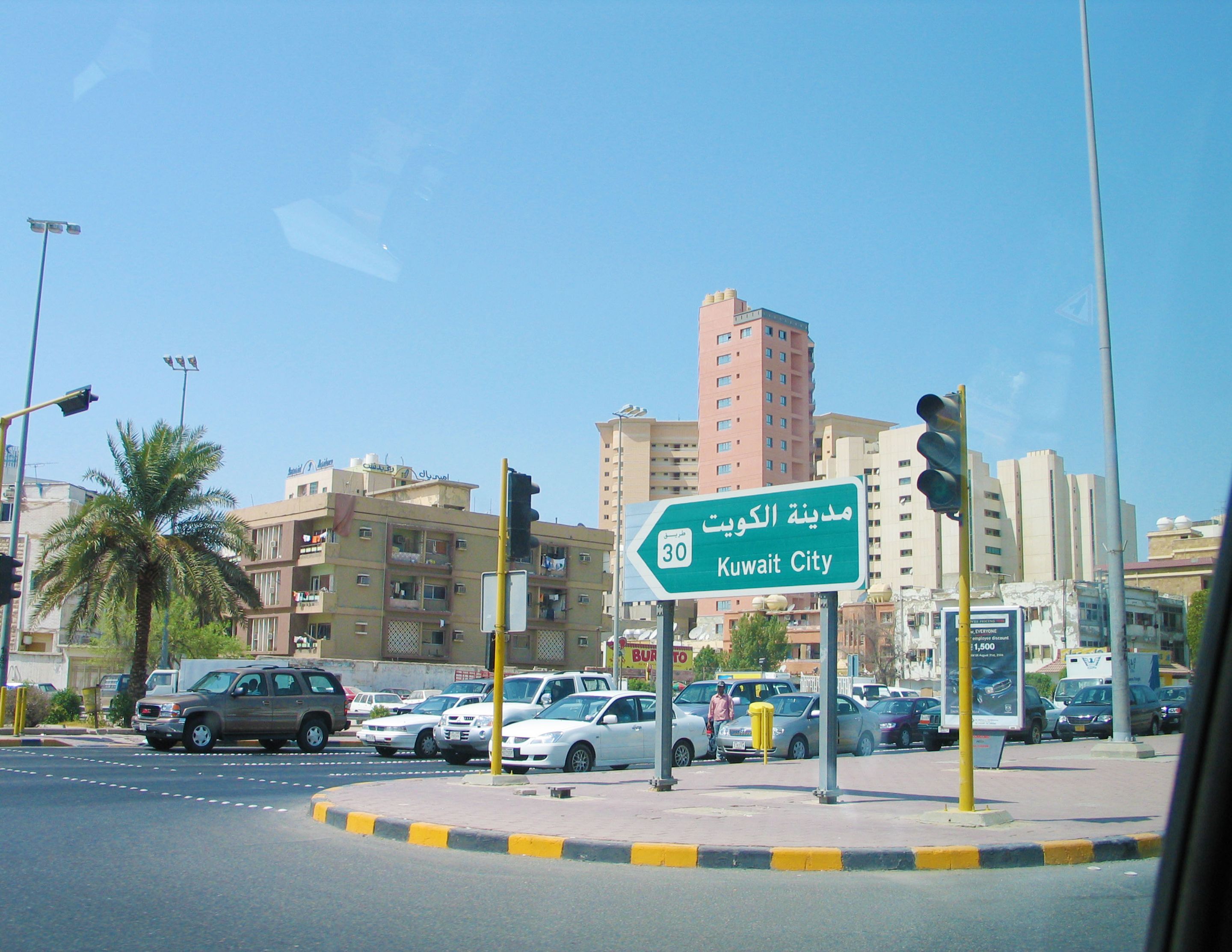
Although I haven't witnessed too many mosques as we passed by different districts, there was still ample evidence of Islamic influence since a majority of Kuwait's residents are Muslims. Thus, Arabic words, symbols, and respective architectural geometries were visible in most public spaces.
Daily Human Interaction in a Brutal Metropolitan Space
It's certainly not easy to thrive in a desert environment like Kuwait, let alone the involvement of A+D professionals, builders, and laborers constructing spectacular architecture on top of sand dunes. Isn't it? Despite this overwhelming difficulty, the Kuwaitis have definitely created phenomenal buildings that you couldn't ignore.
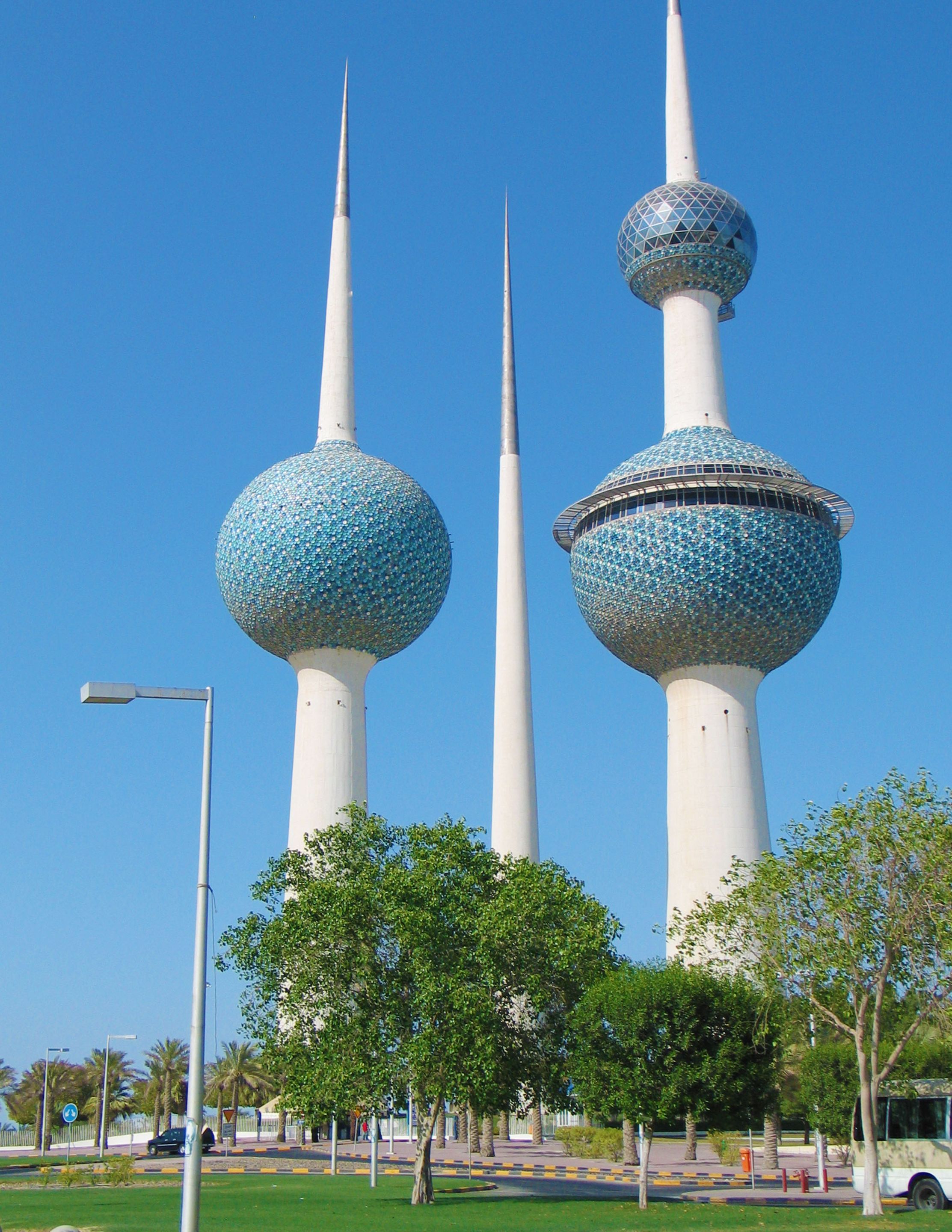
One of the most jaw-dropping landmarks I've specially admired was the iconic Kuwait Towers. With their futuristic design concept composed of spheres merged with pointed vertical spears, this spectacular skyscraper consisted of restaurants, cafes, communal rooms, lounges, and storage chambers for water utilities. Amazing!
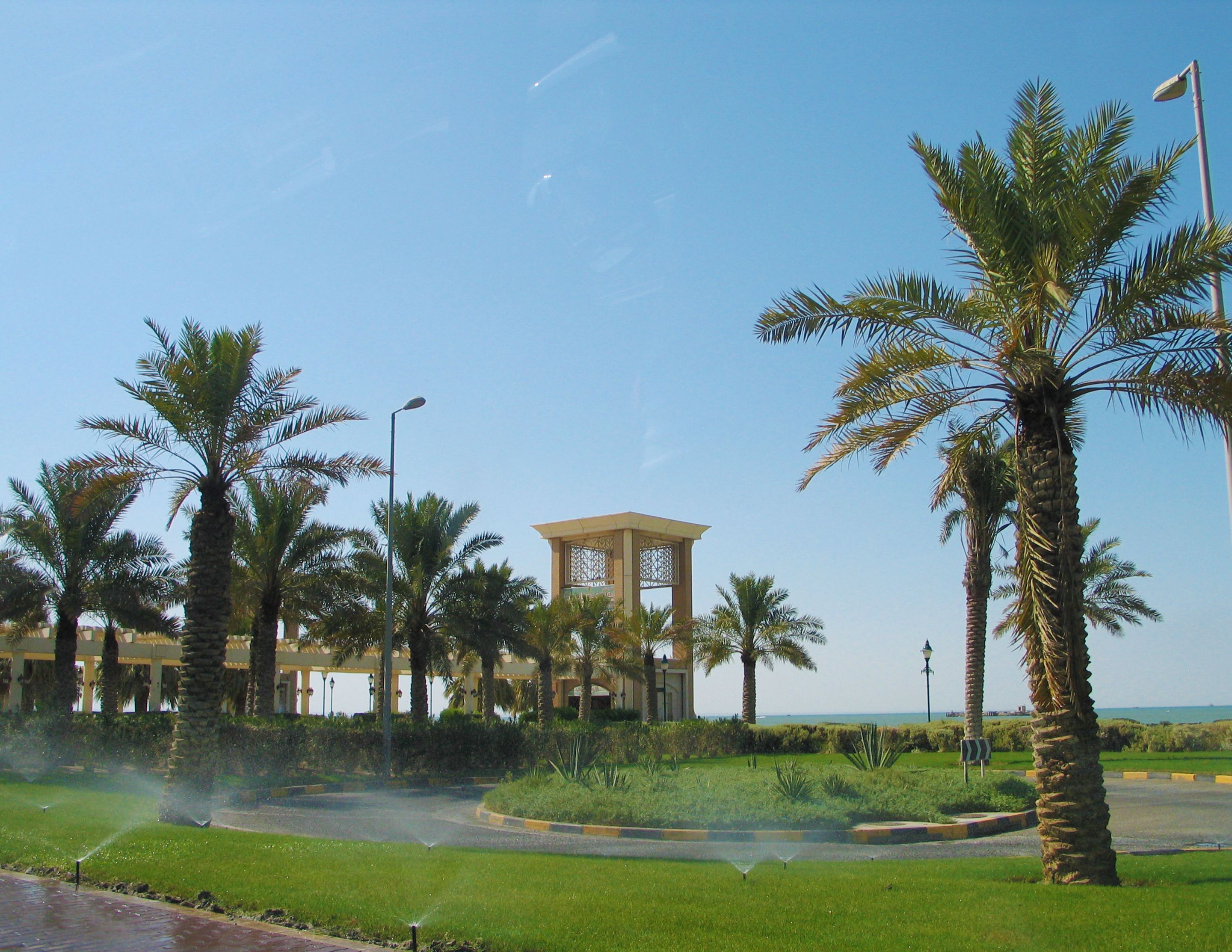
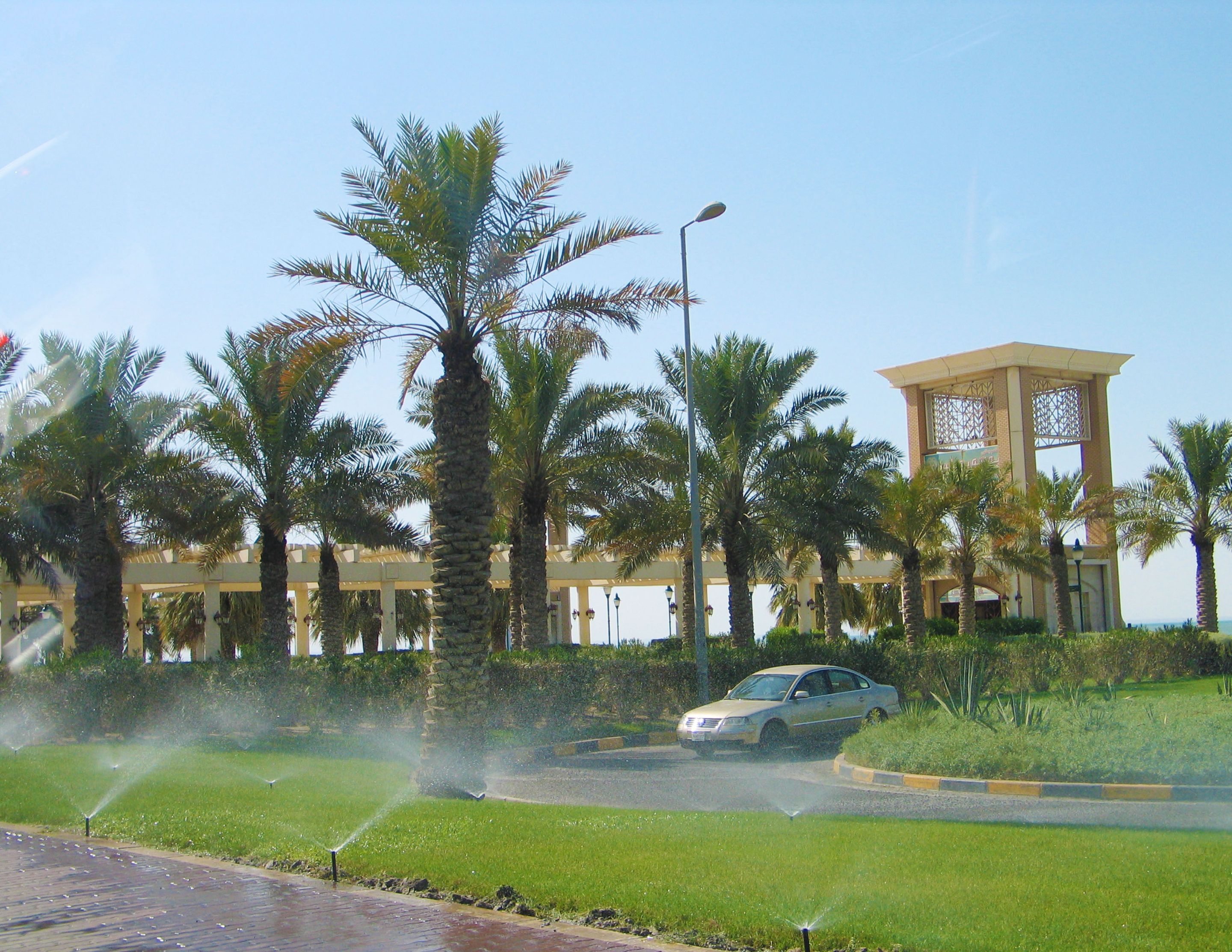
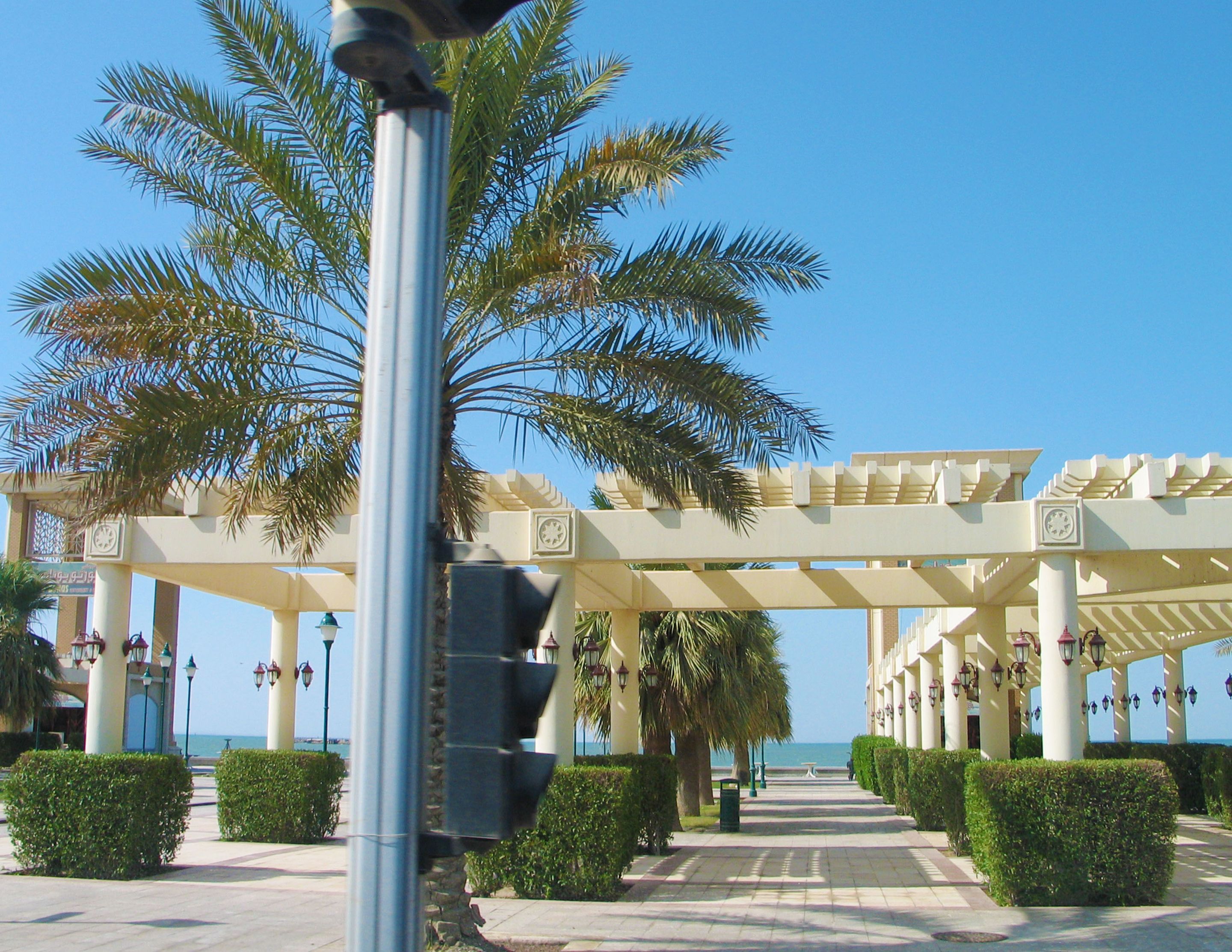
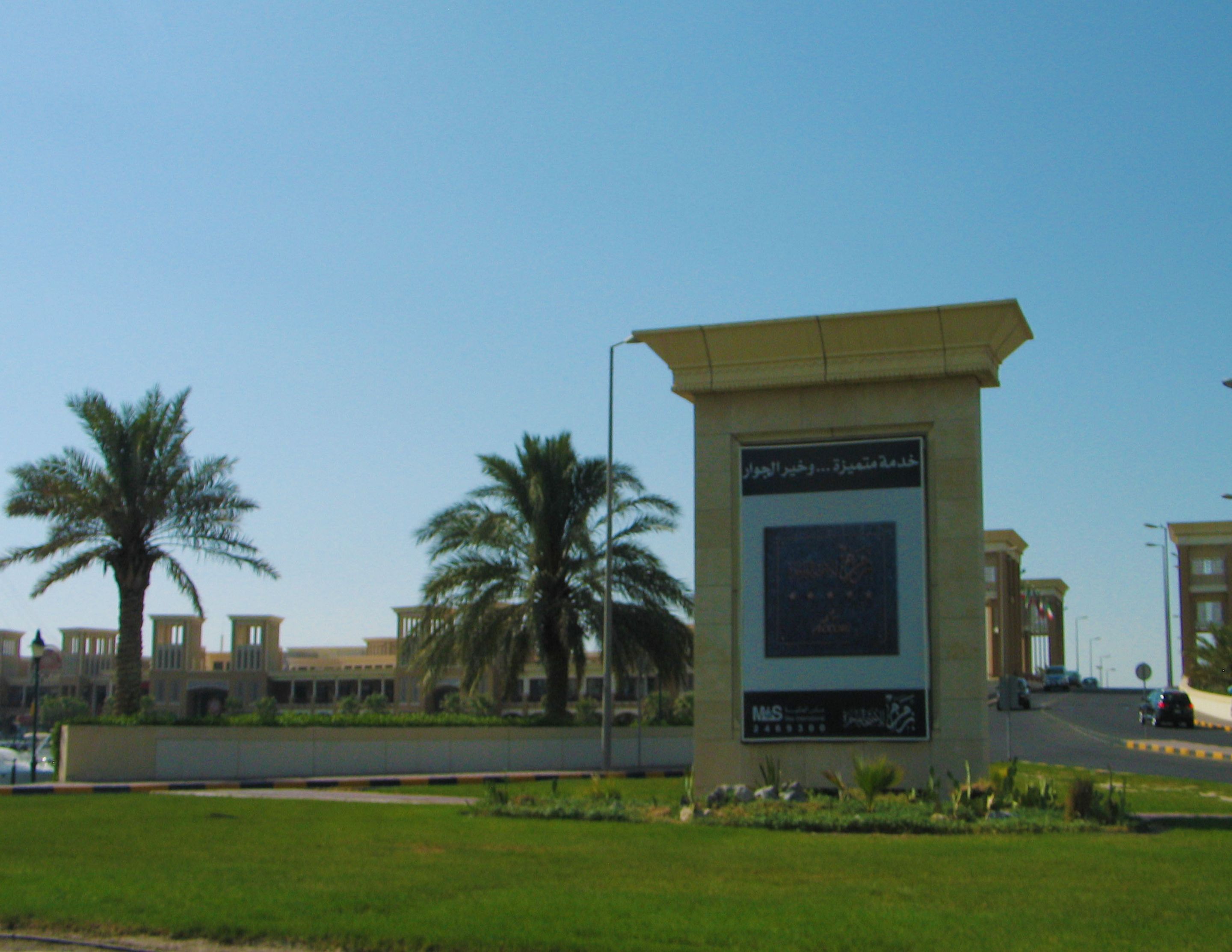
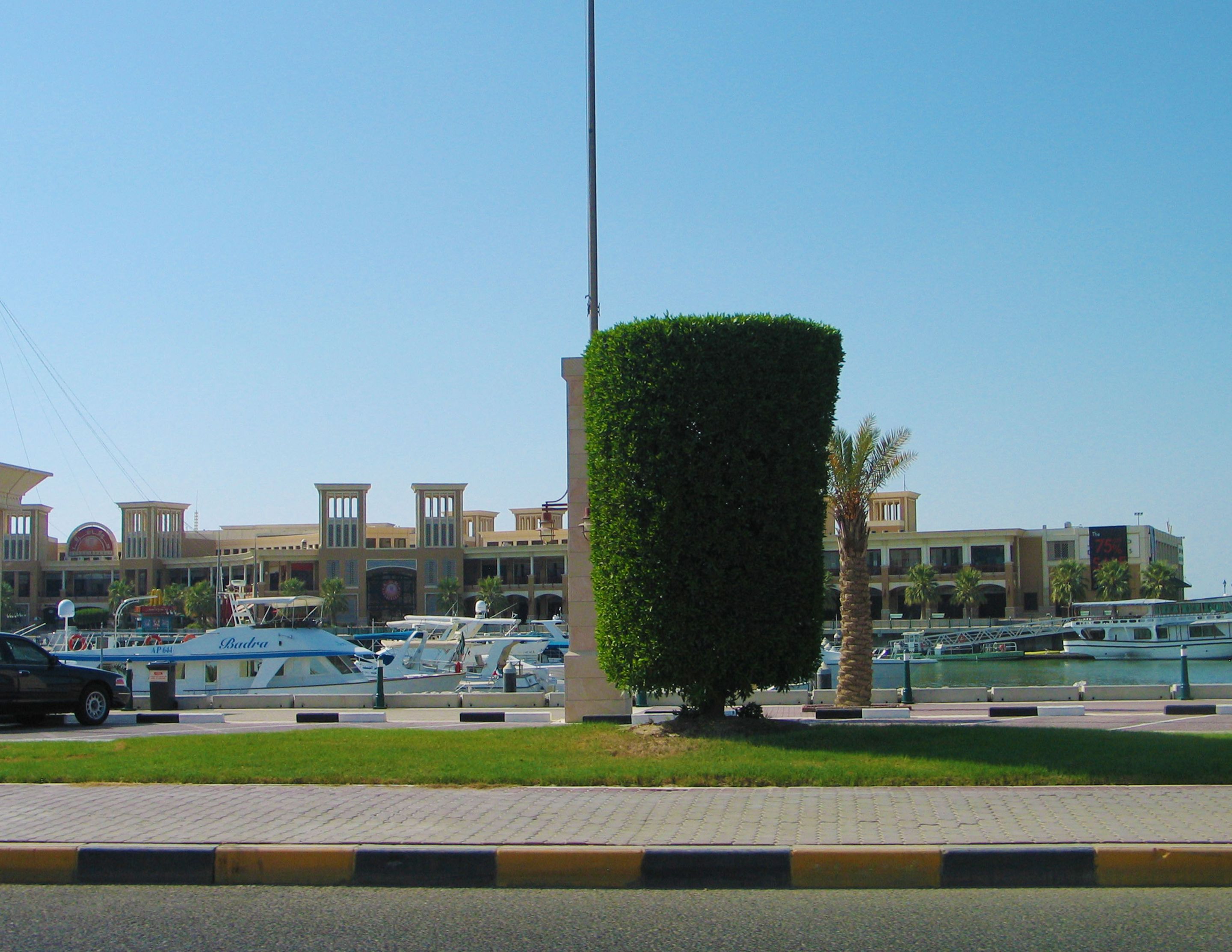
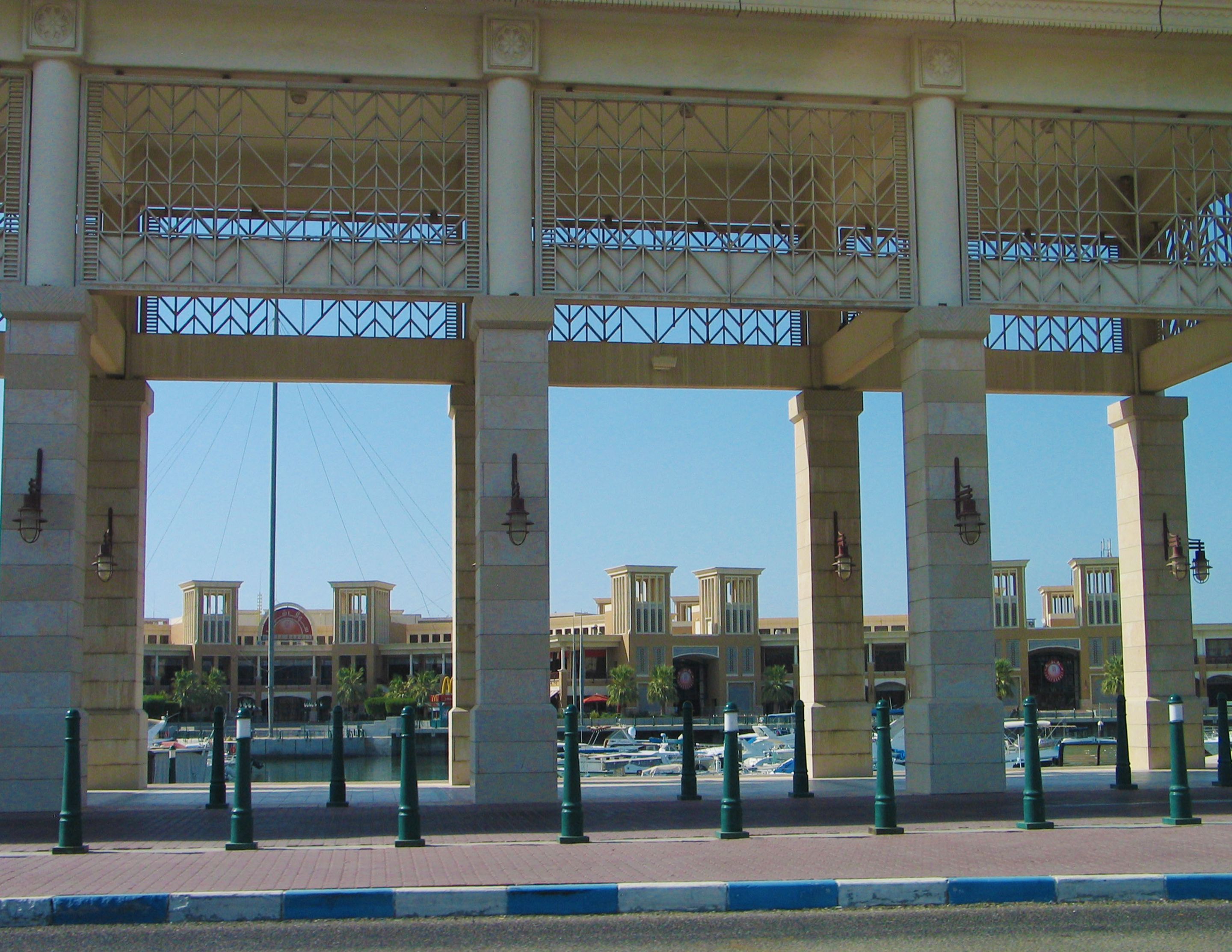
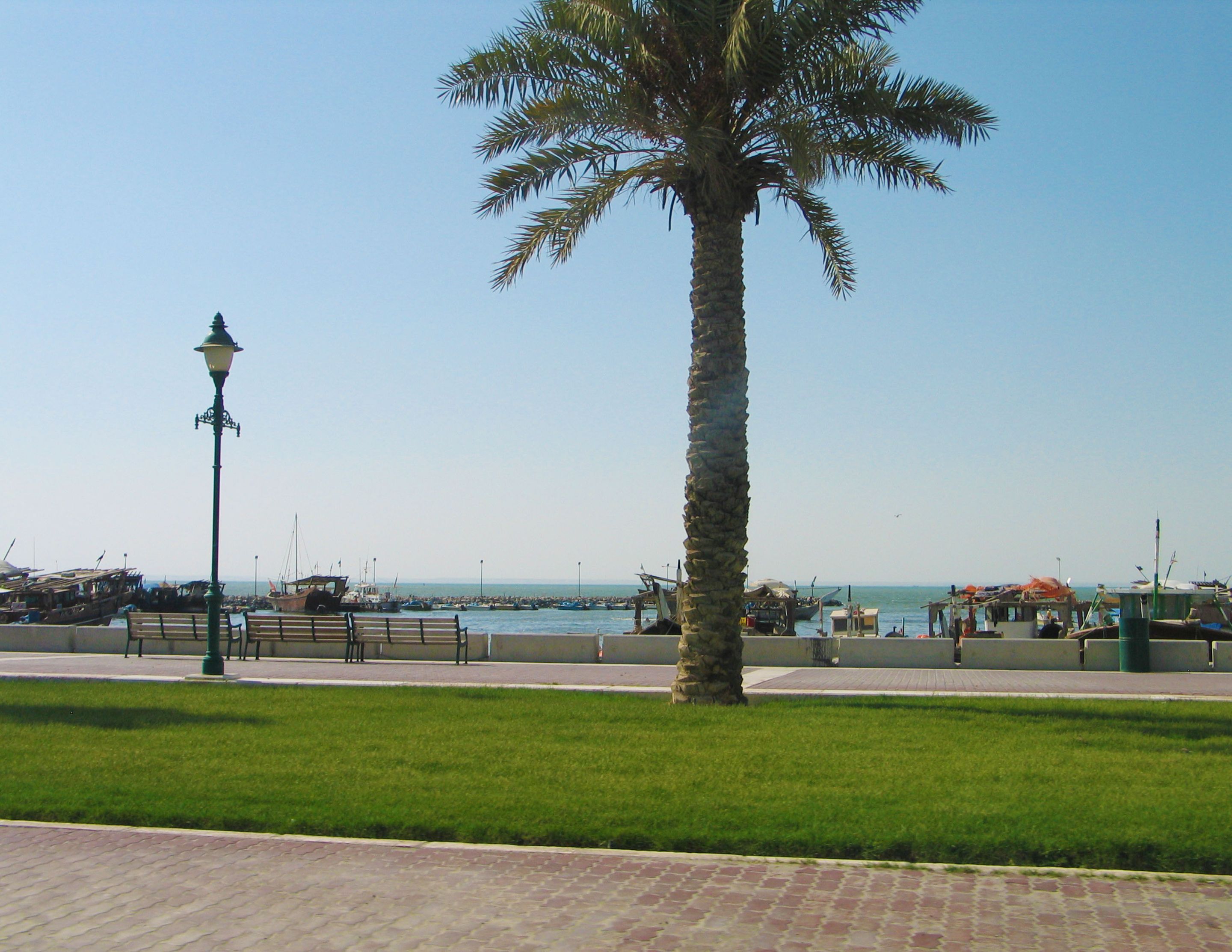
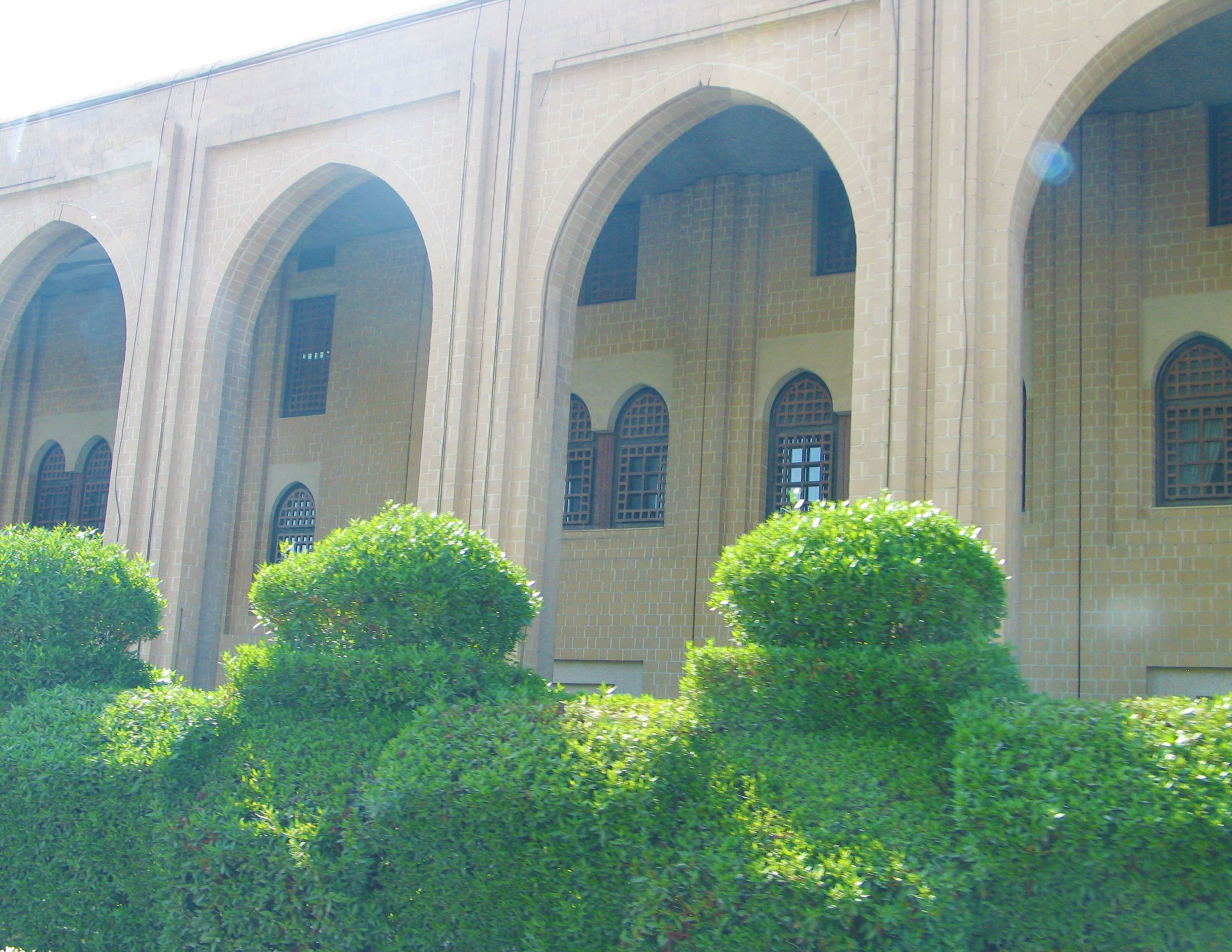
Furthermore, one major observation I couldn't forget during this particular visit was the absence of people during the day. Obviously, who would dare expose themselves to the burning heat outside, right? During this specific occasion, I was also informed that the current temperature was a shocking 52 degrees Celsius (125.6 Fahrenheit). That's intensely hot! (You could literally fry an egg outdoors!). And although the weather was dry and wasn't as humid as other tropical sites, it could still burn your skin to a crisp! No wonder more people could be seen outside during the night hours.
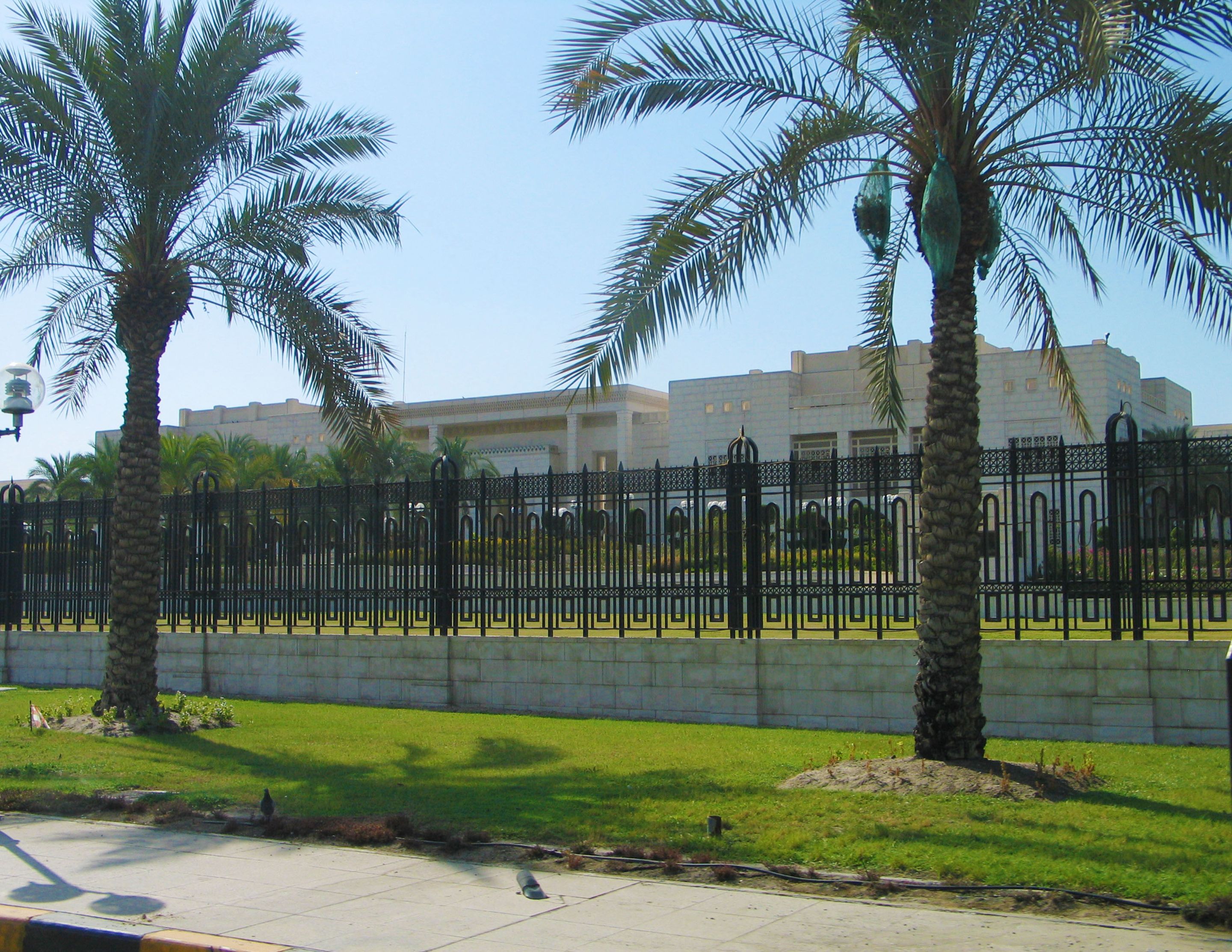
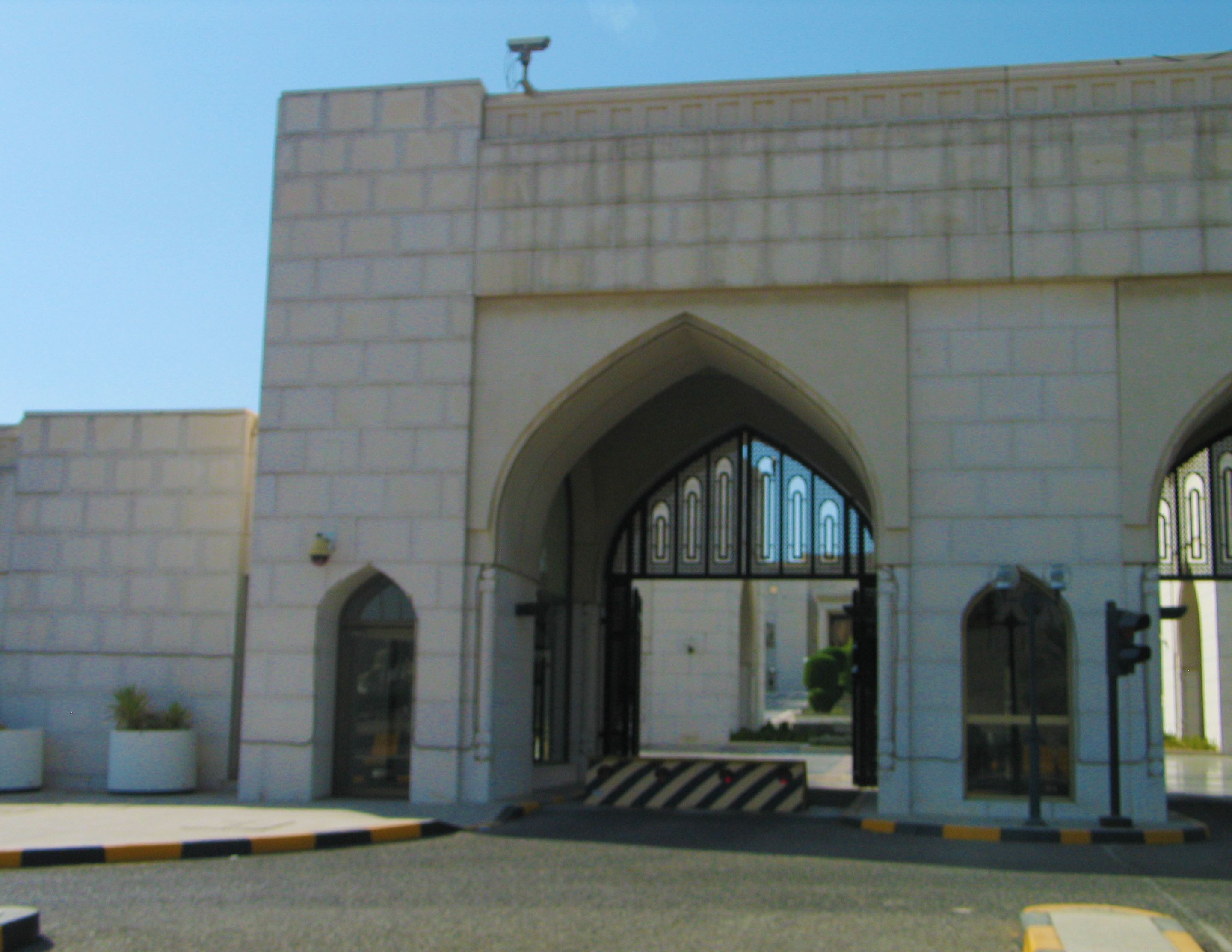
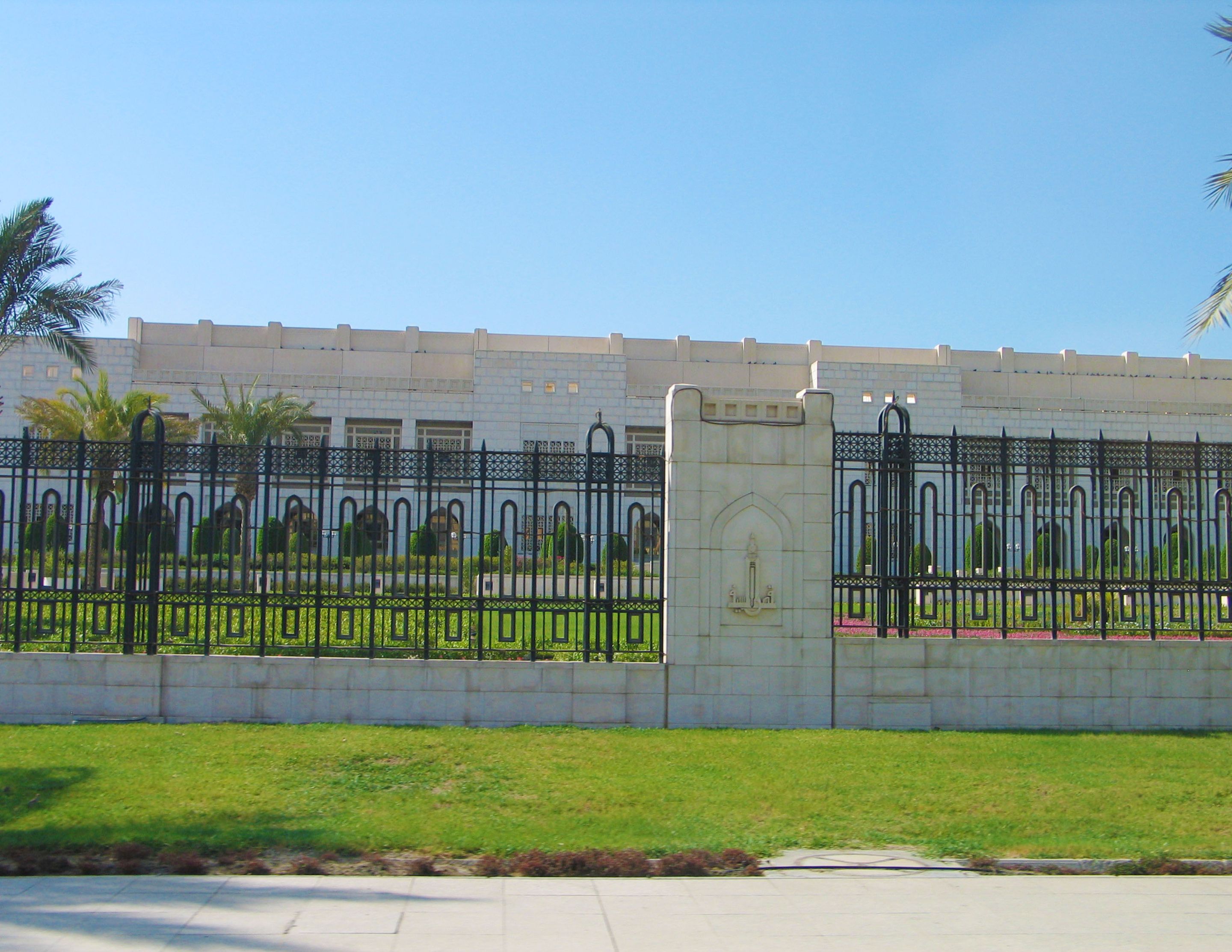
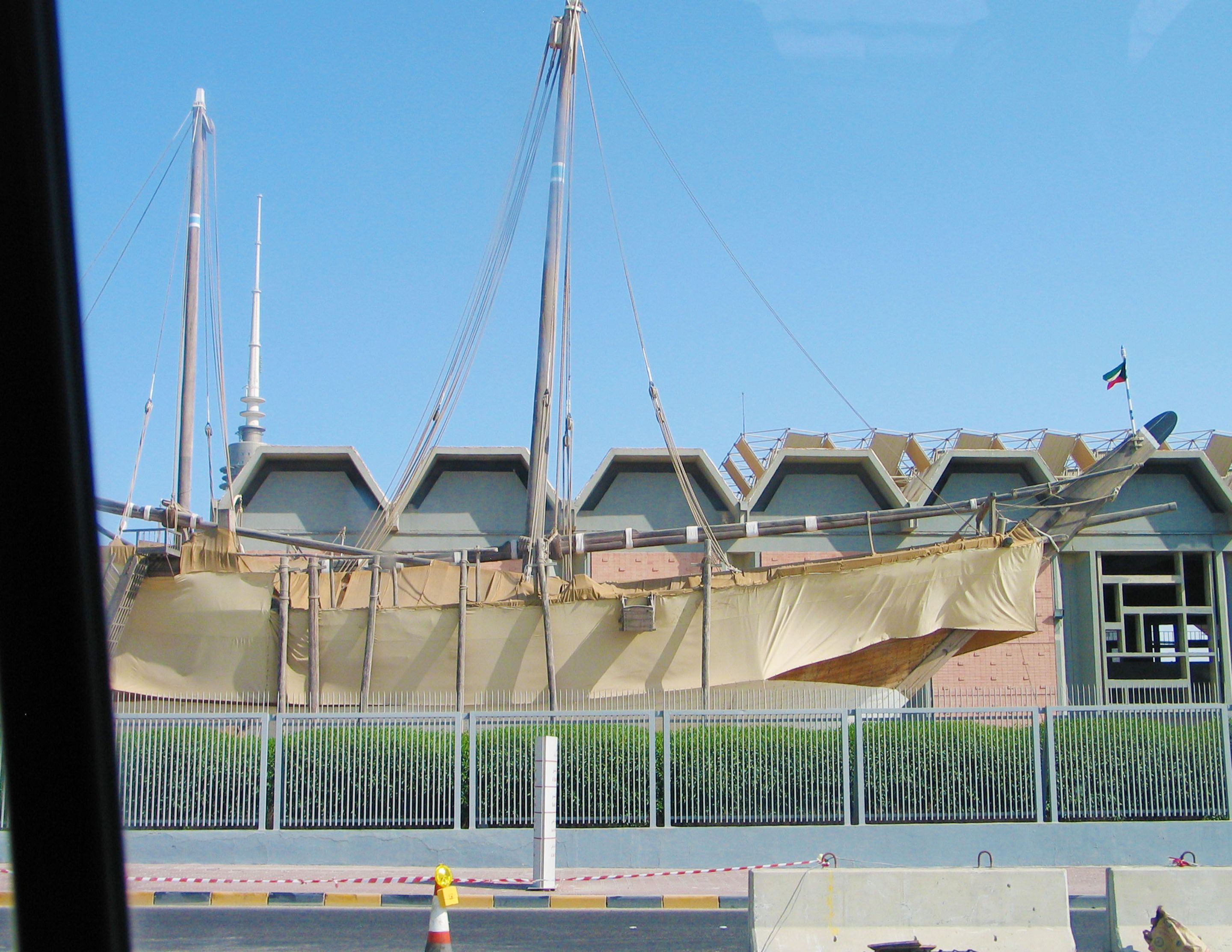
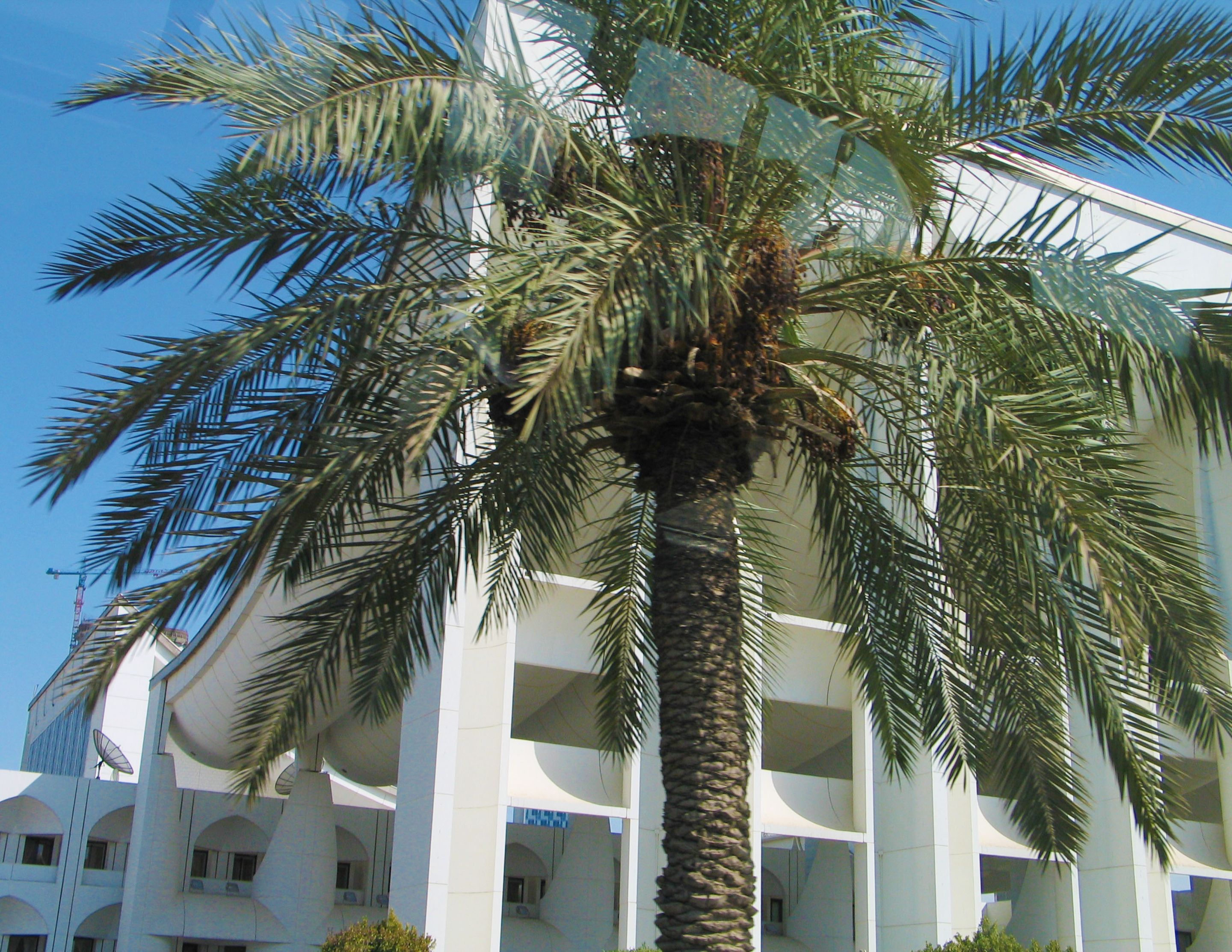
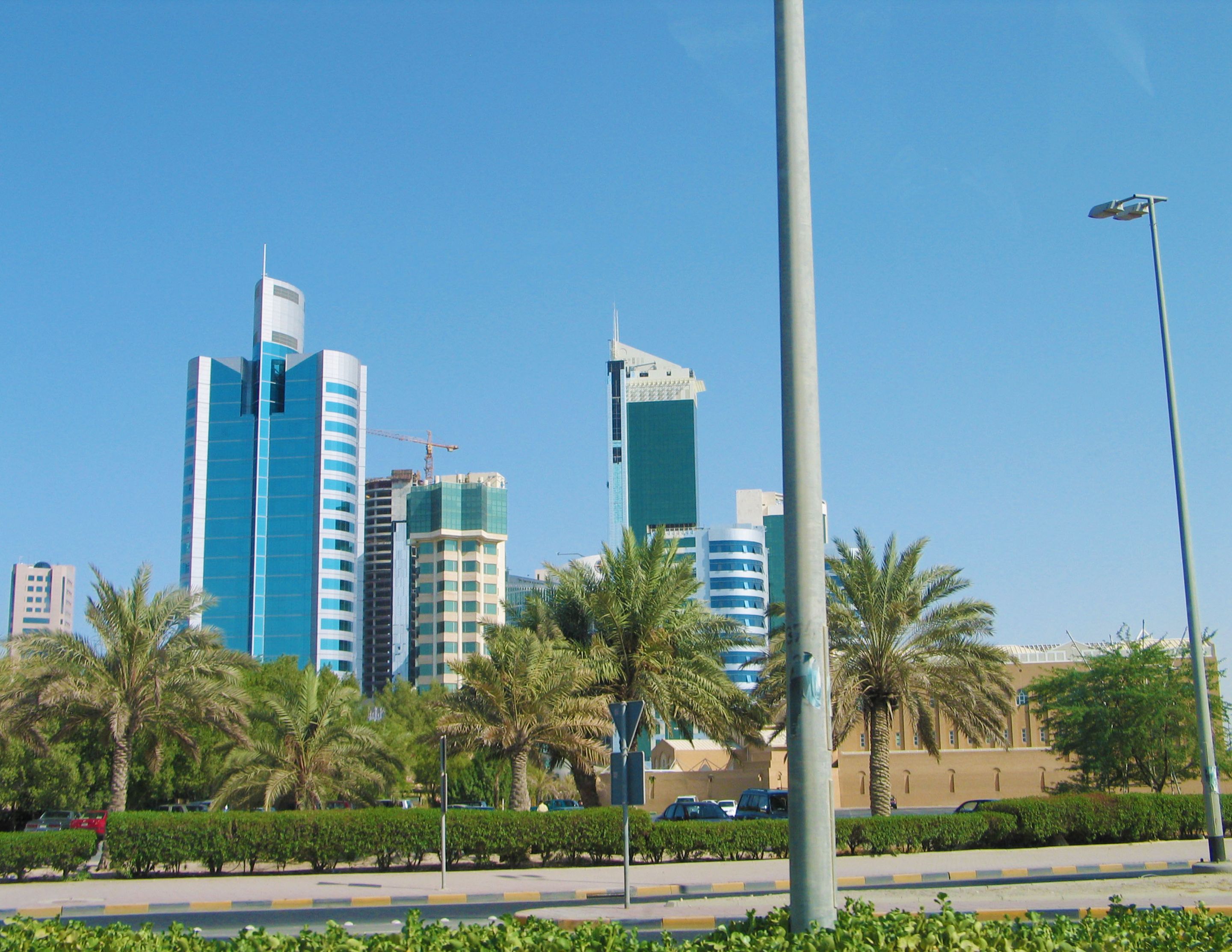
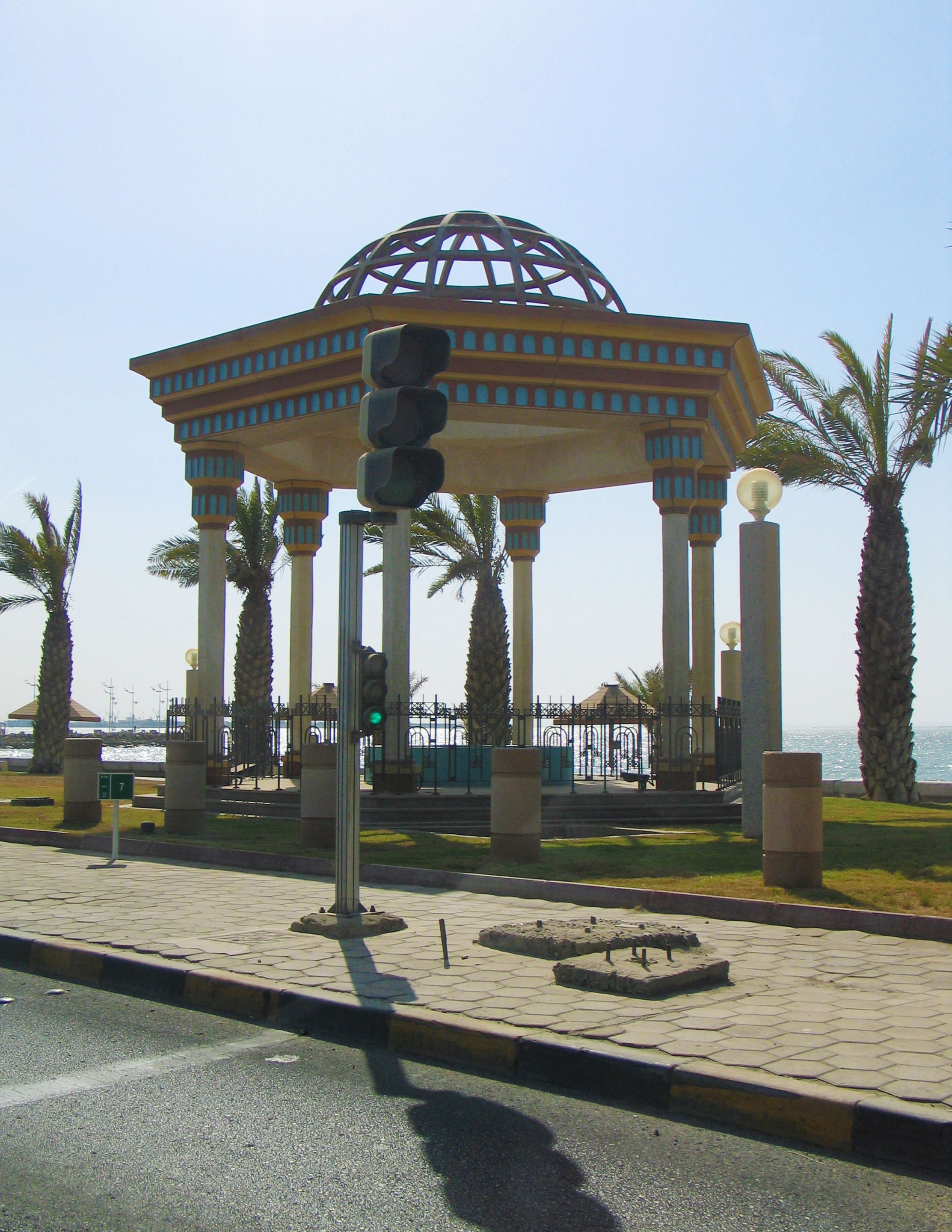
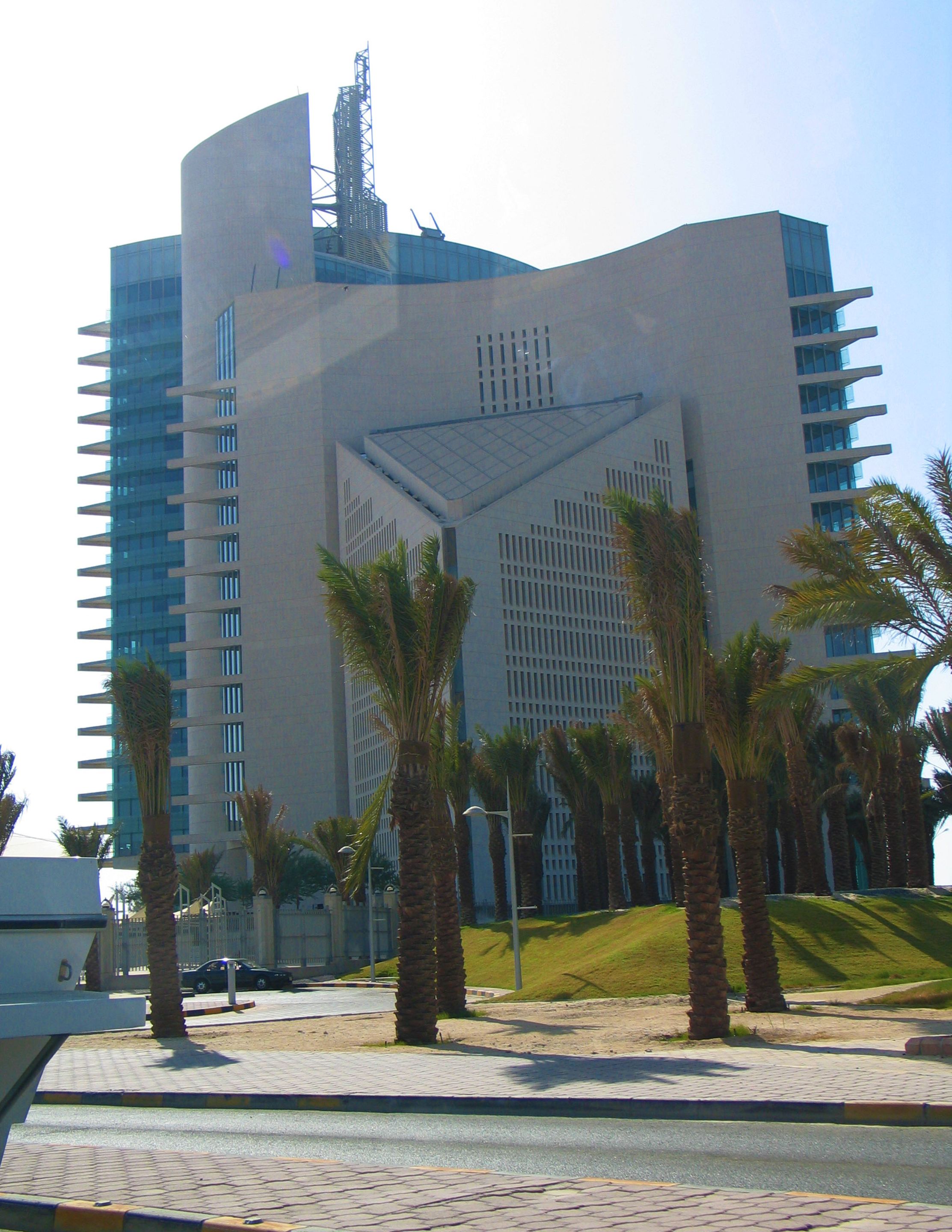
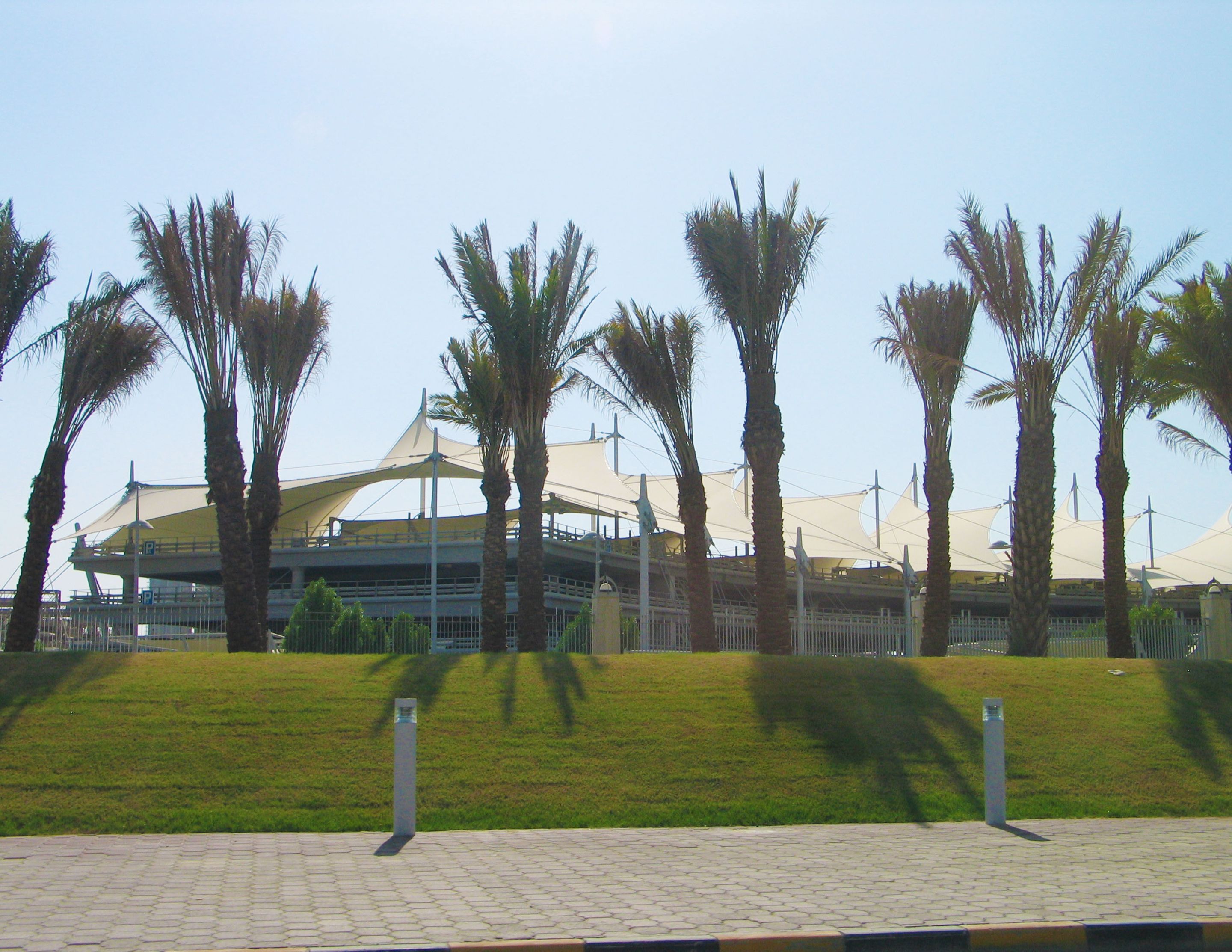
Because water was such a scarce resource (even more expensive than petrol), they had to invent ways and means to conserve its use. For the irrigation of trees, plants, and other foliage in parks, gardens, and green spaces, they allocated flexible tubes with nozzles and spouts that spray jets of desalinated water. I believe they also had to import soil and related organic materials for the special cultivation of natural elements in a desert environment like Kuwait.
Conclusion: The Evolving Metamorphosis of Kuwait's Urban Growth
Despite all these recurring issues, they have succeeded in sustaining their various businesses, livelihoods, and lifestyles. Because architecture is a problem-solving endeavor, I'm glad that Kuwait has maximized their design skills to conquer challenging landscapes like the desert to survive for more generations ahead.
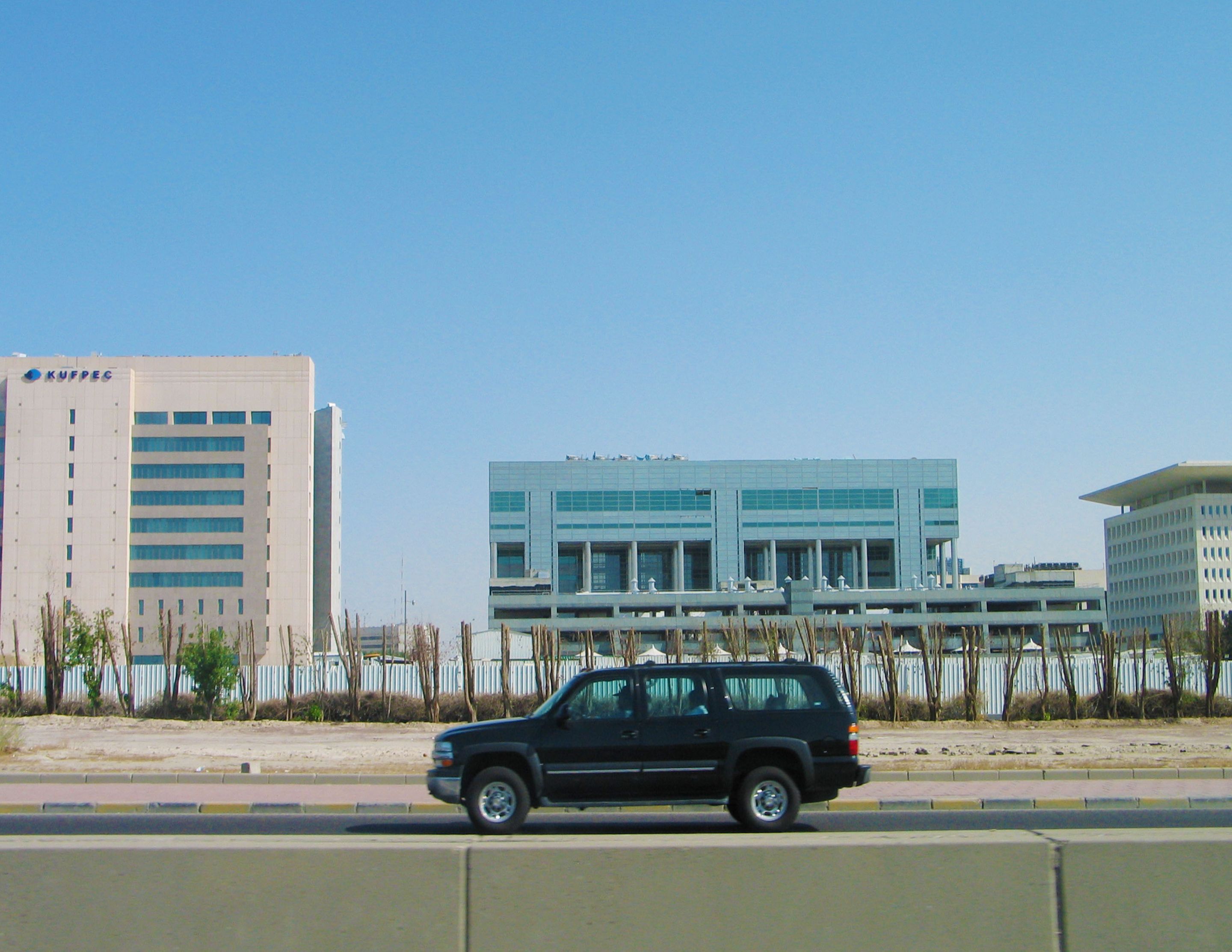
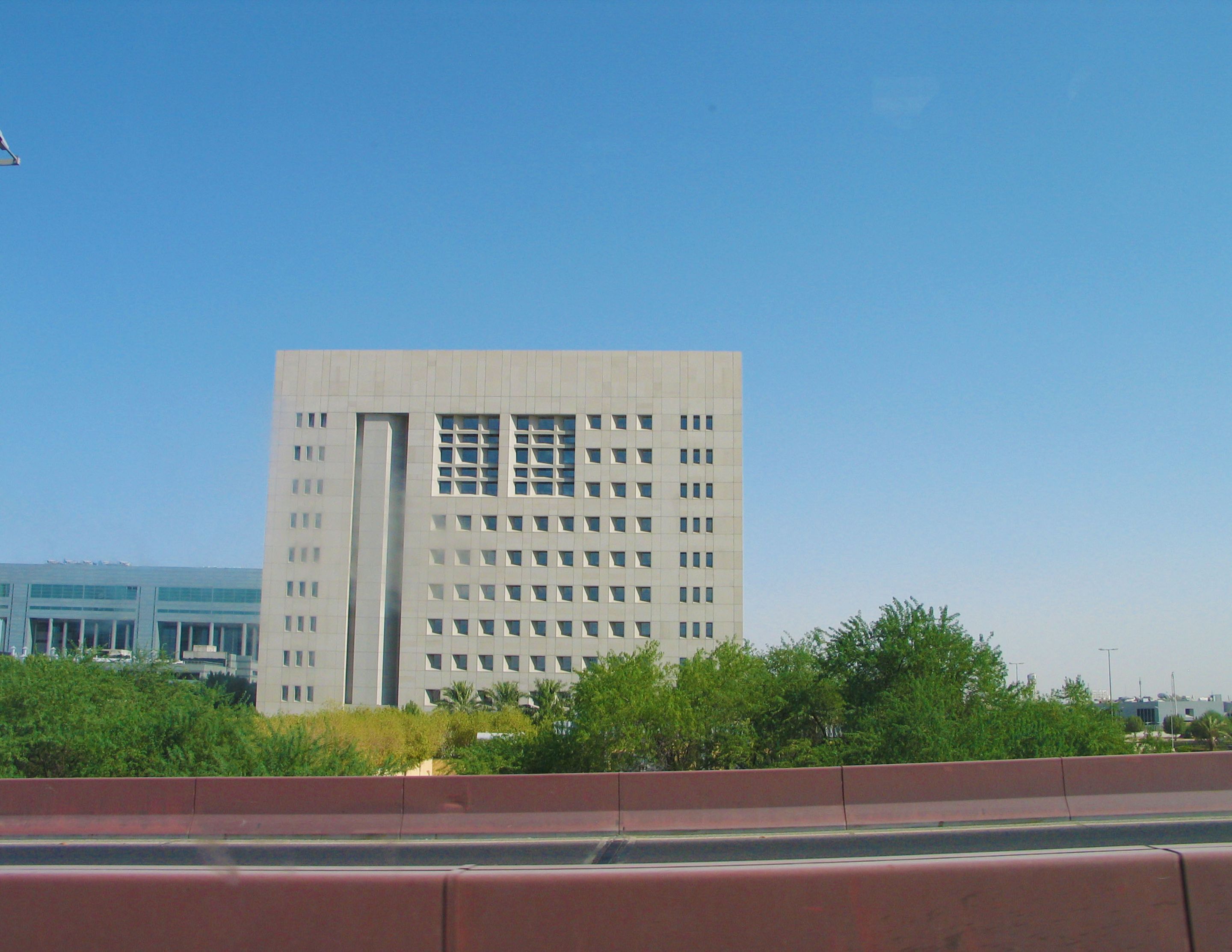
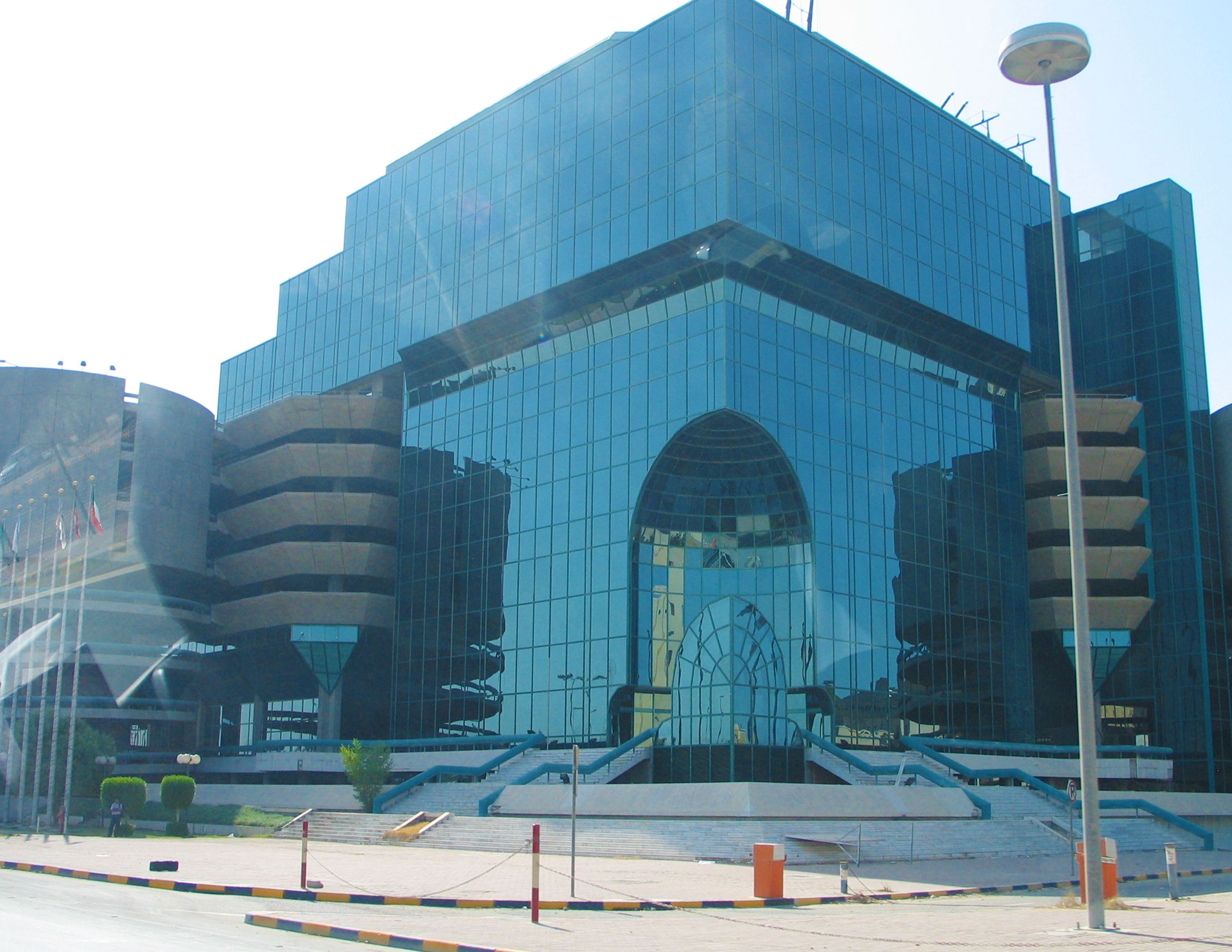
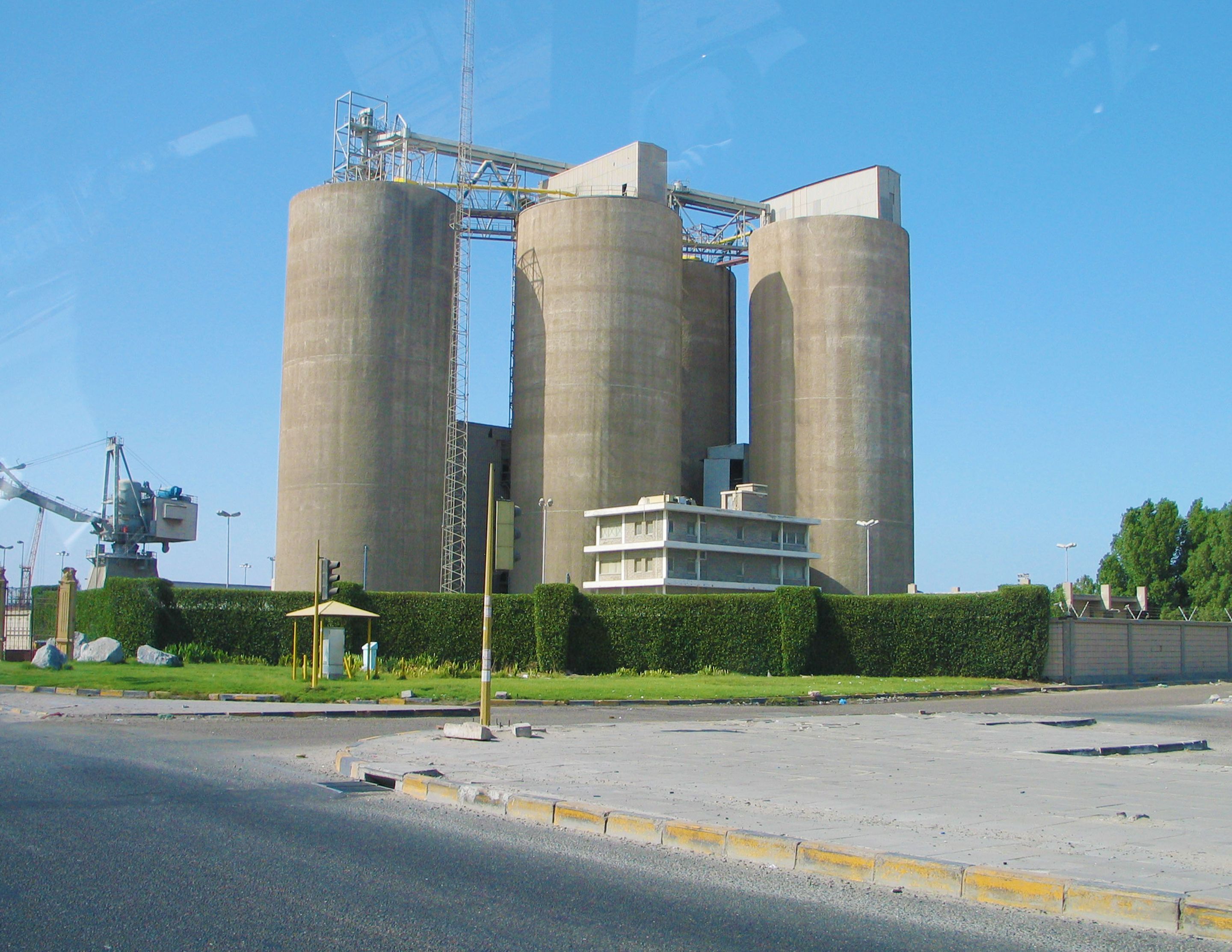
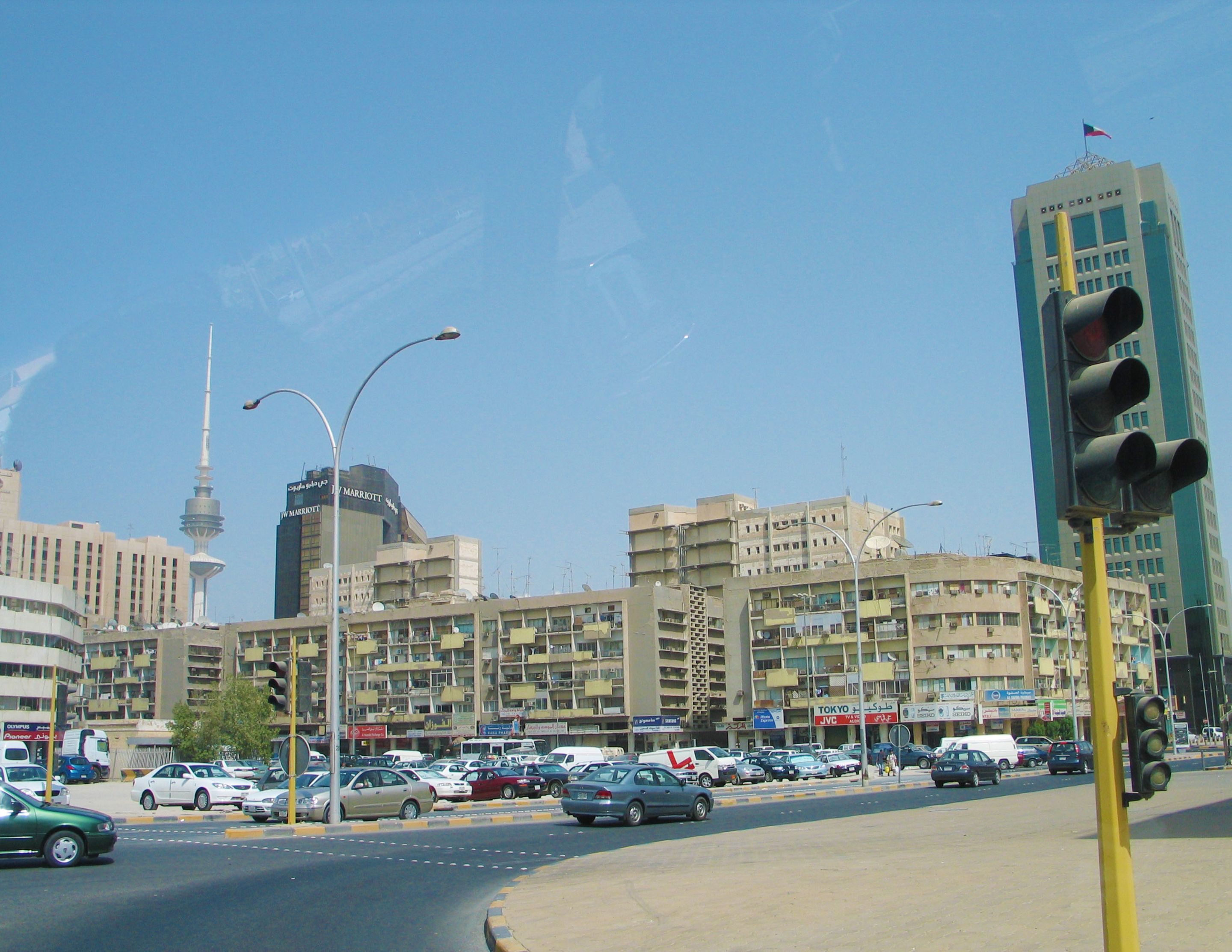
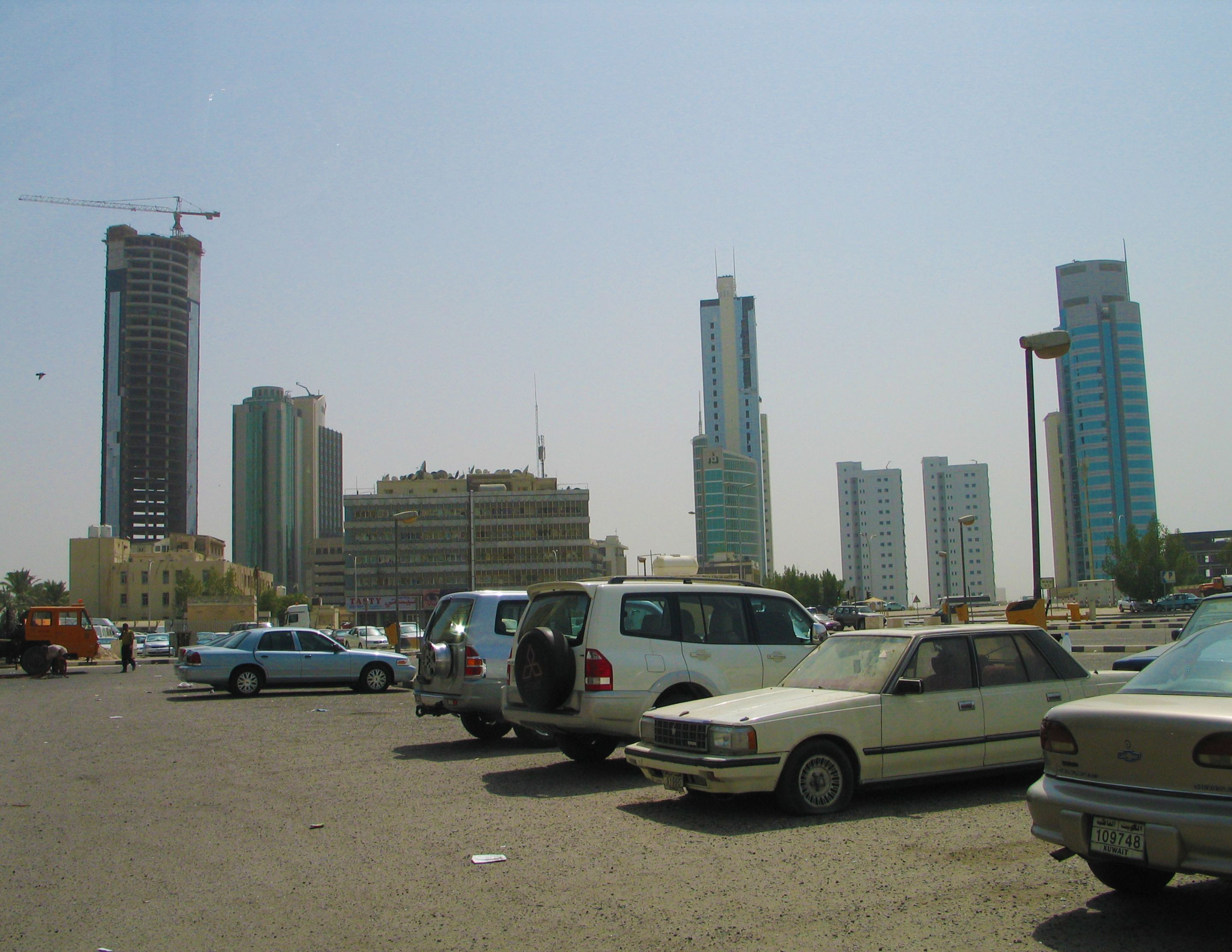
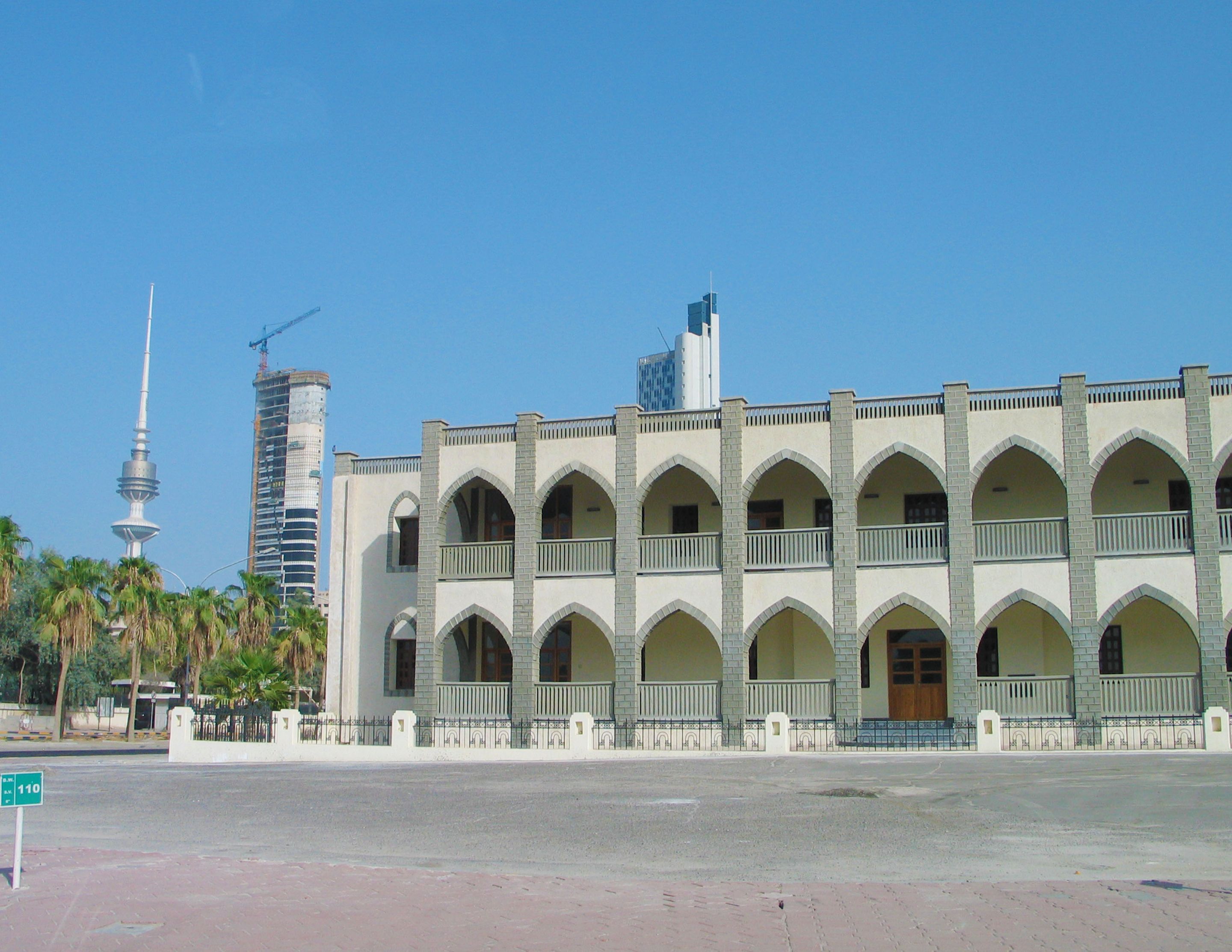
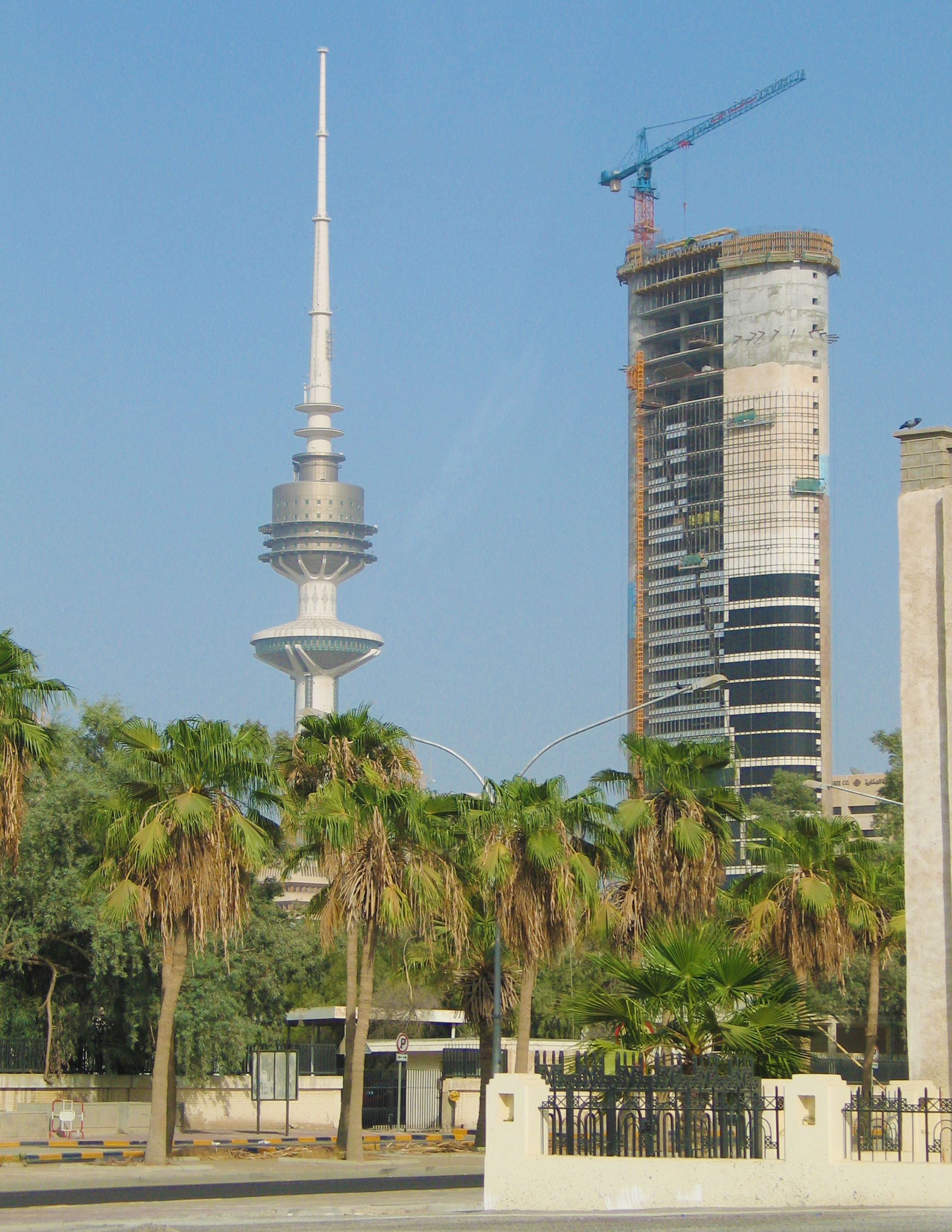
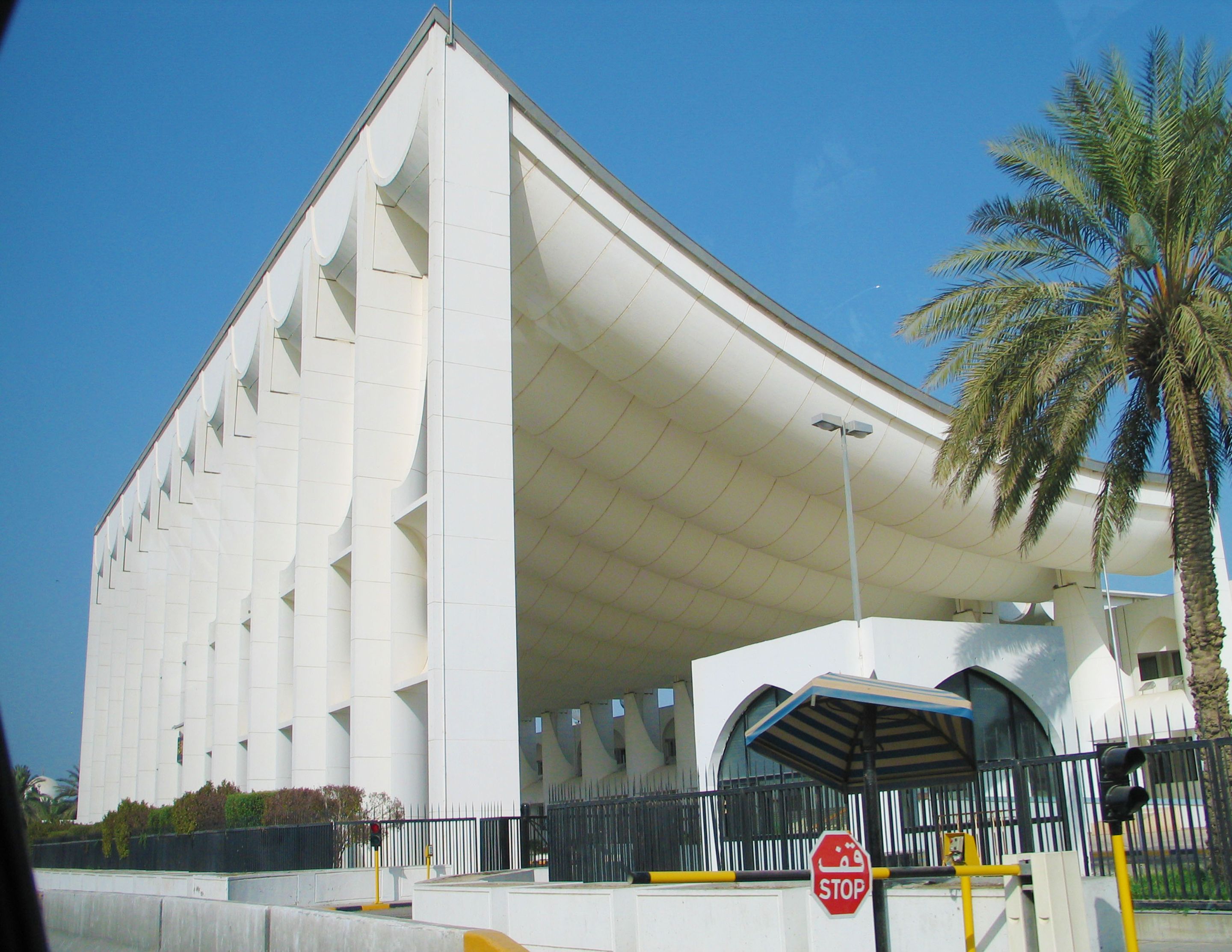
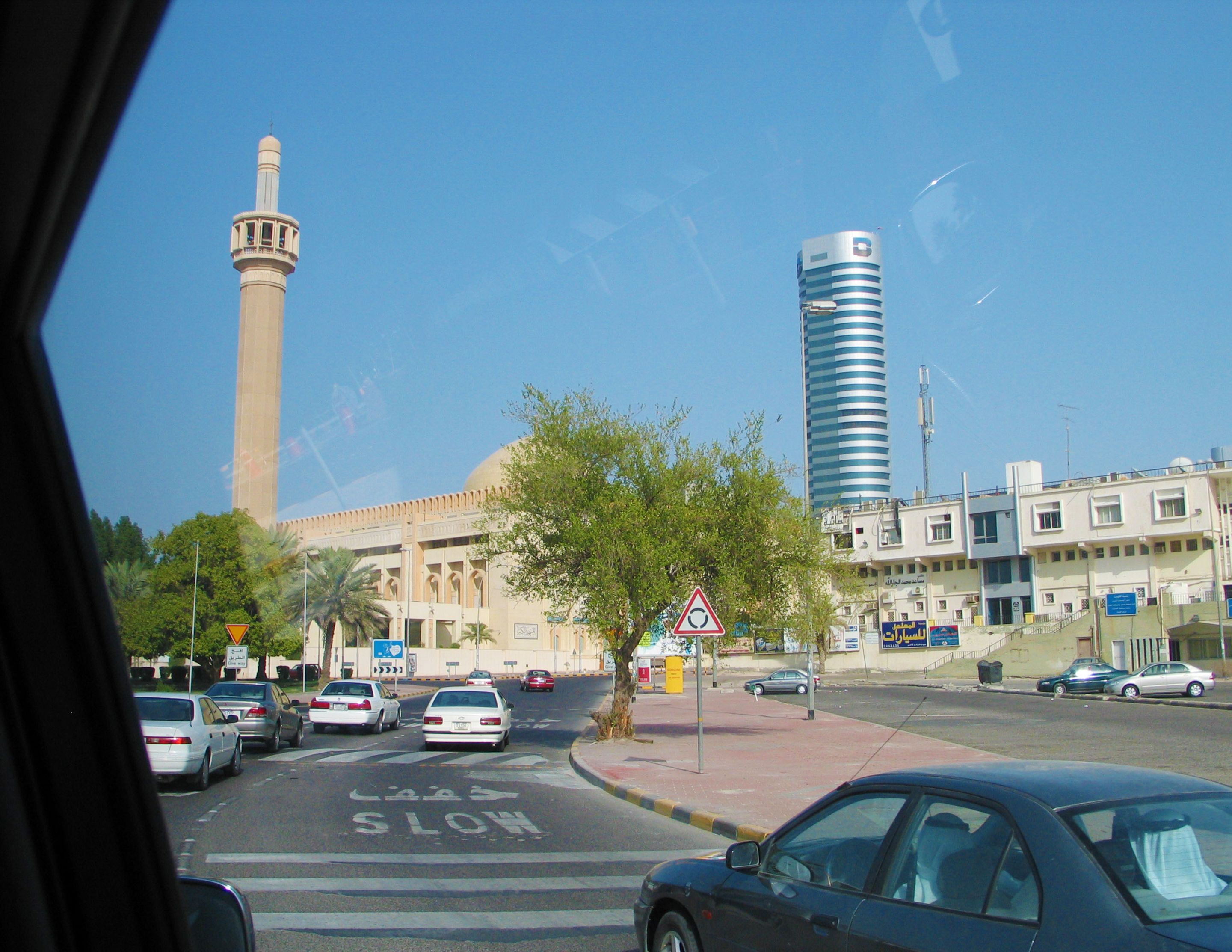
Here are more captivating photos that celebrate Kuwait’s diverse metropolitan architecture for your visual pleasure:
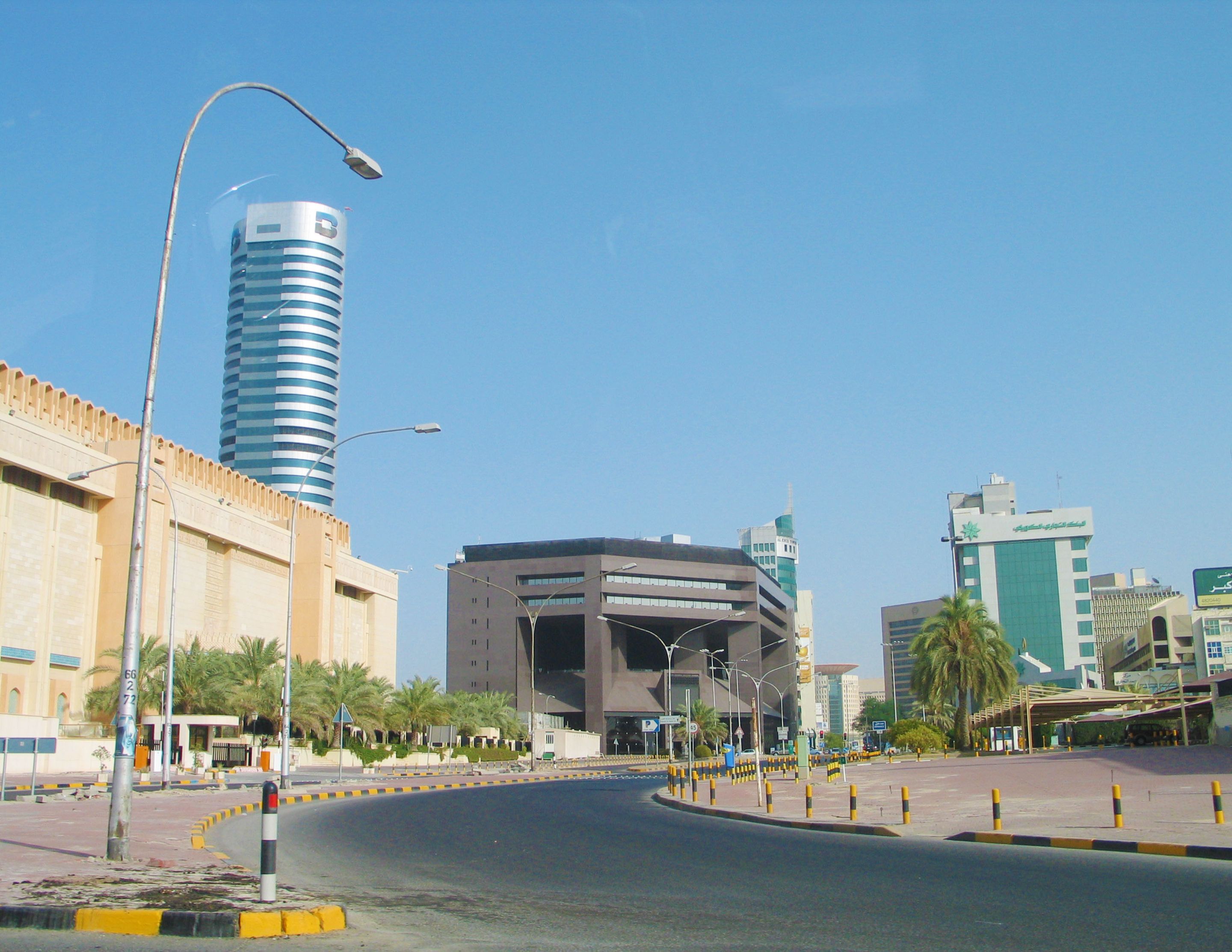
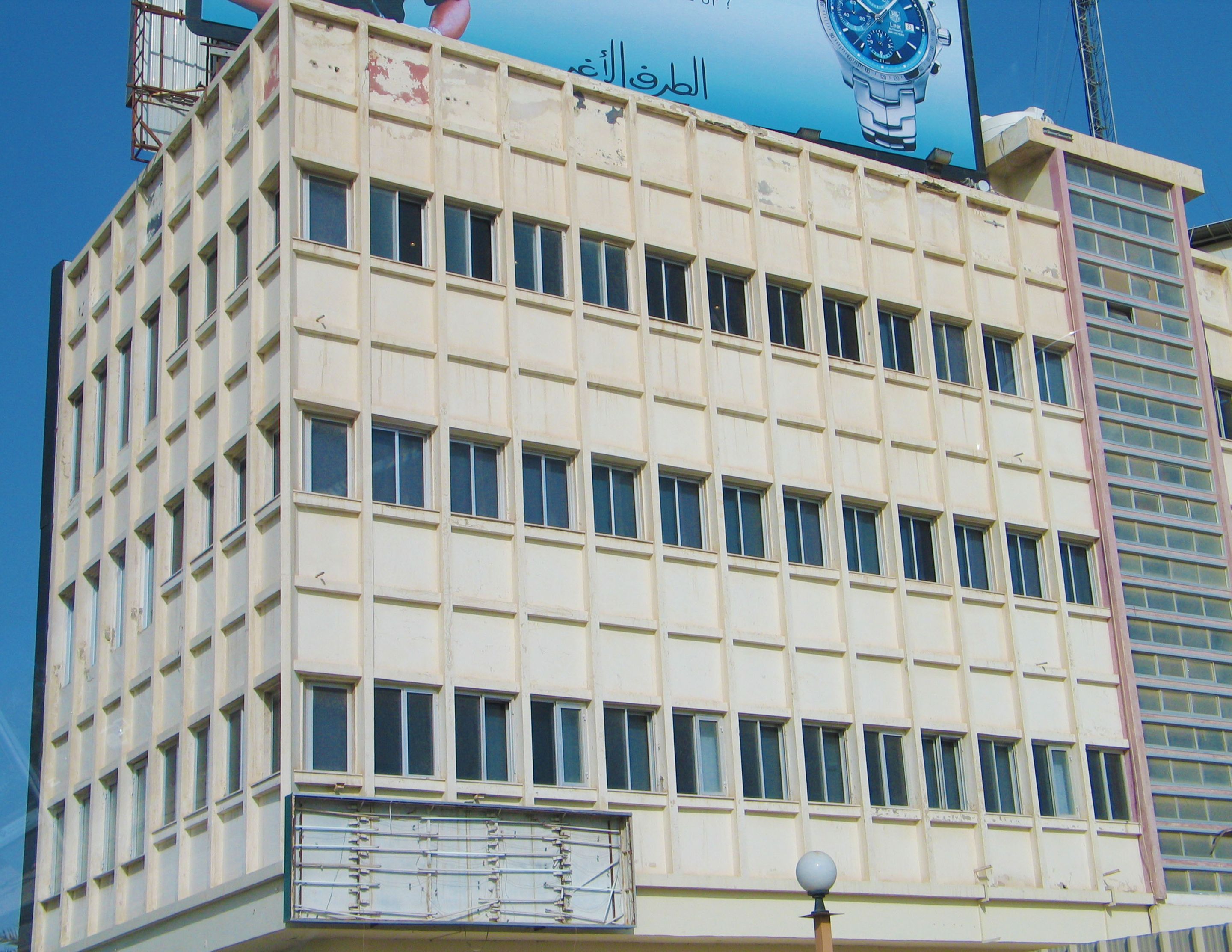
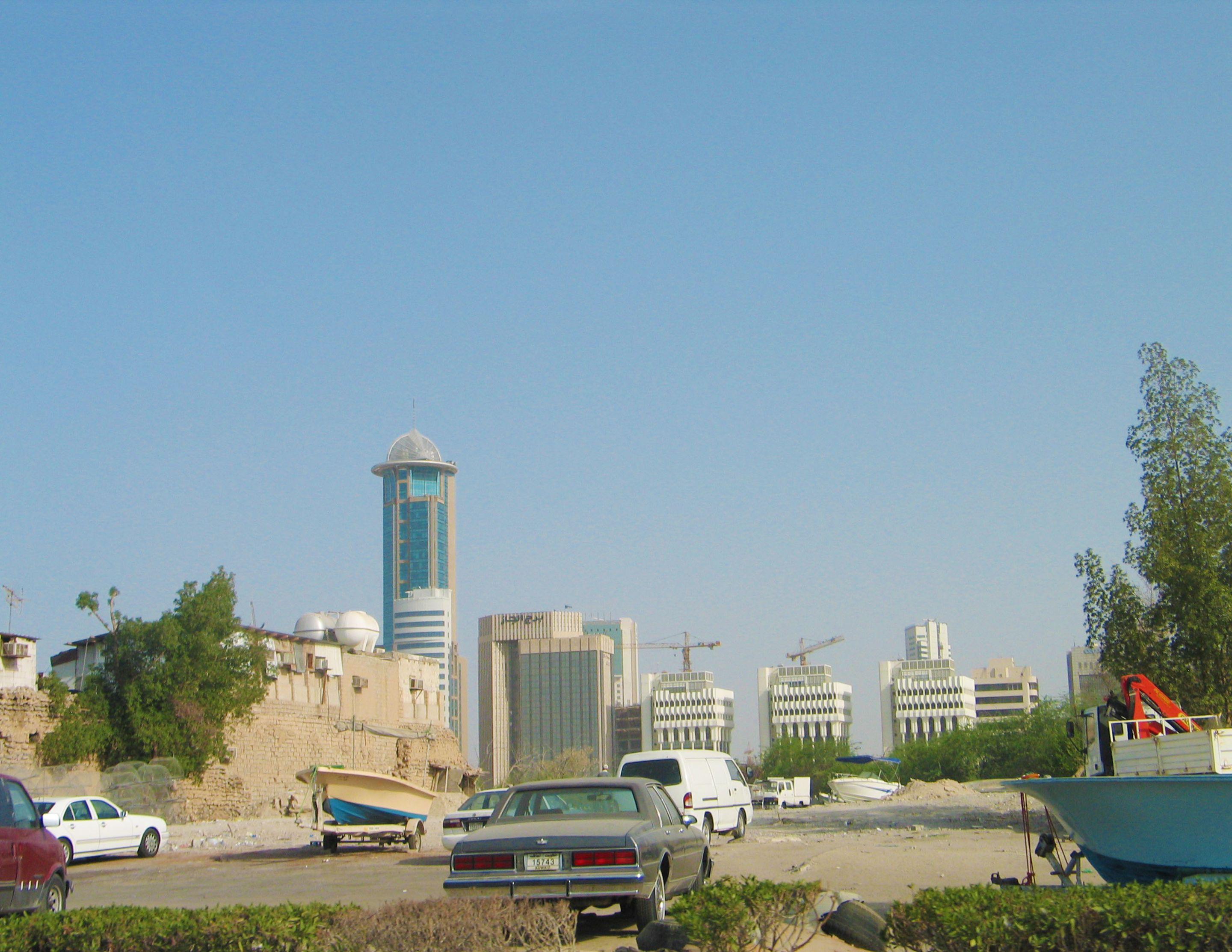
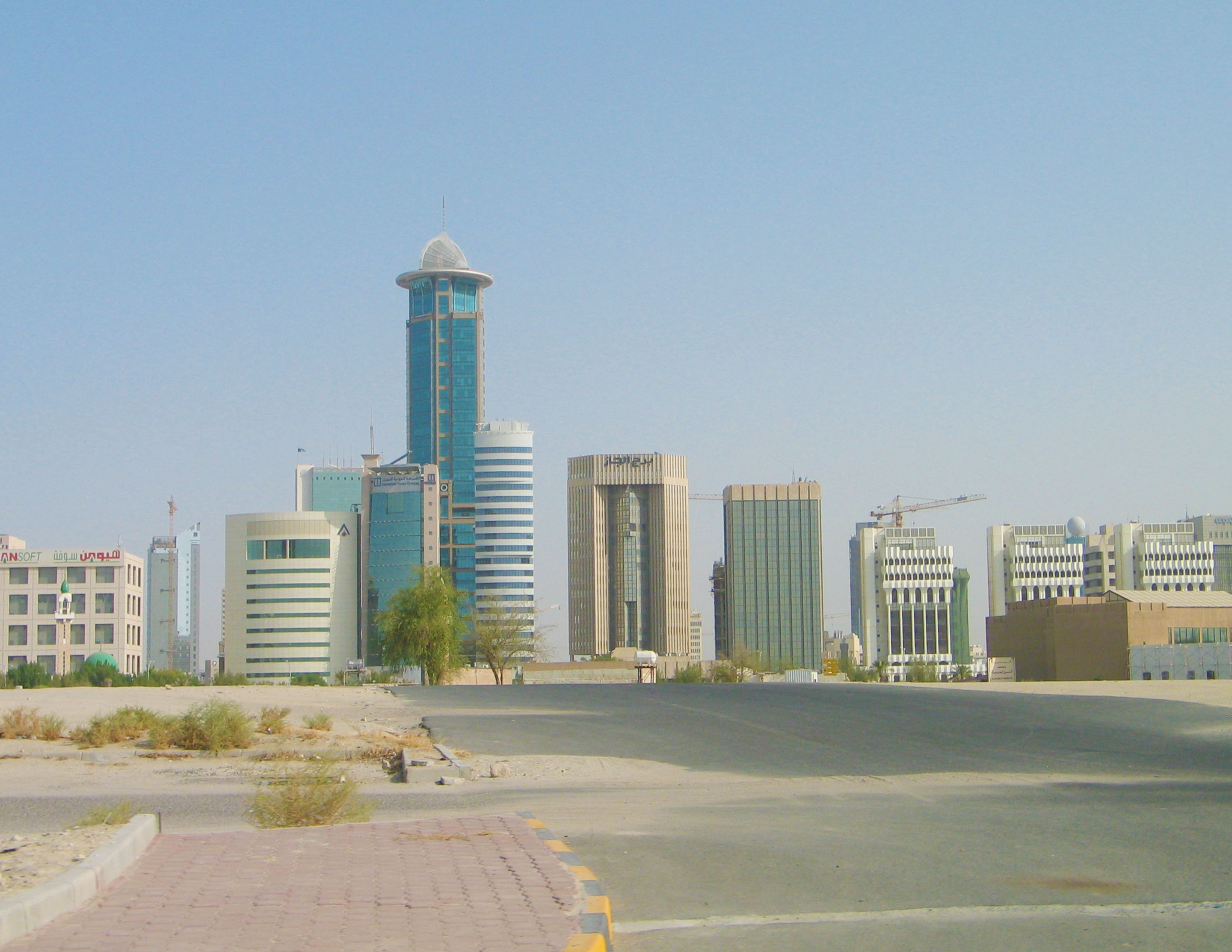
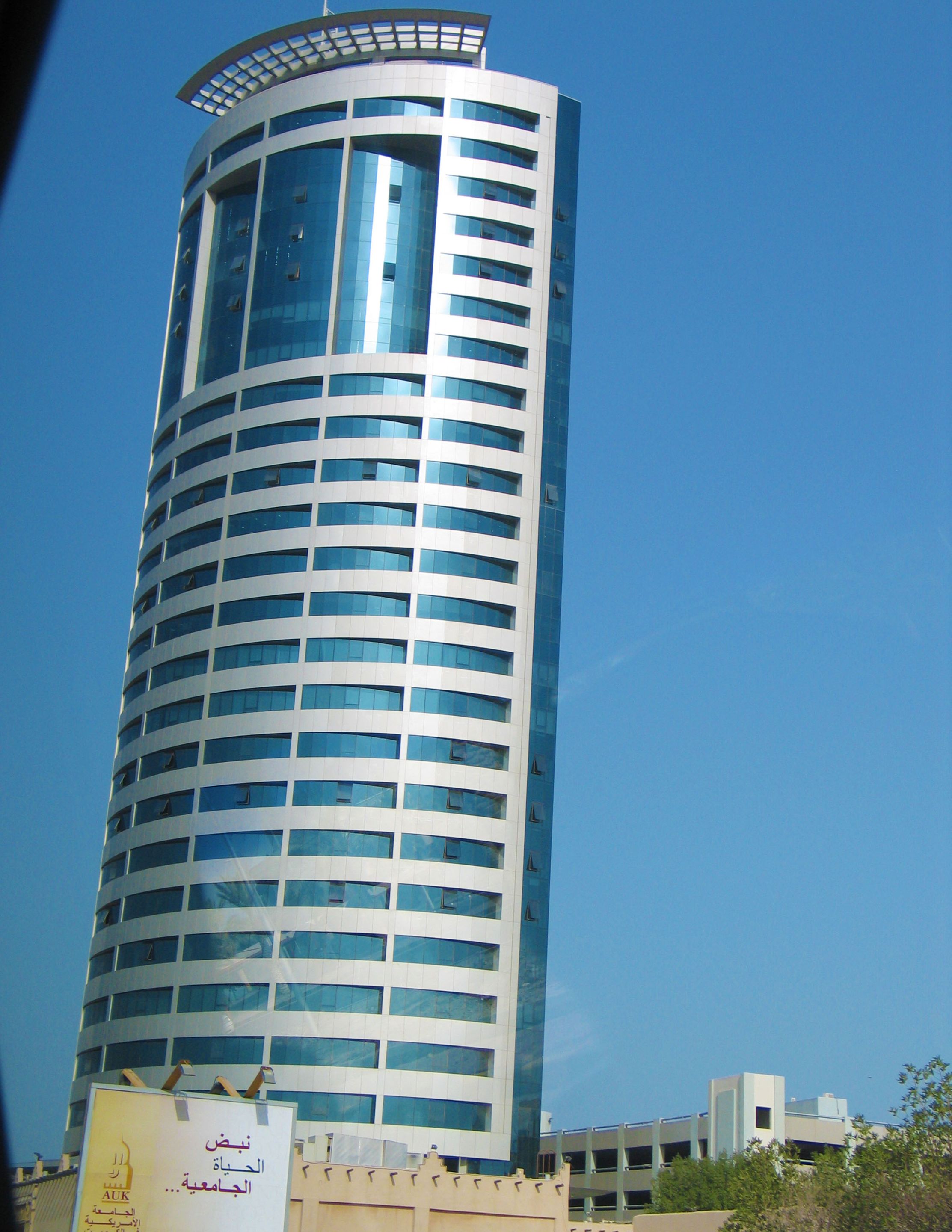
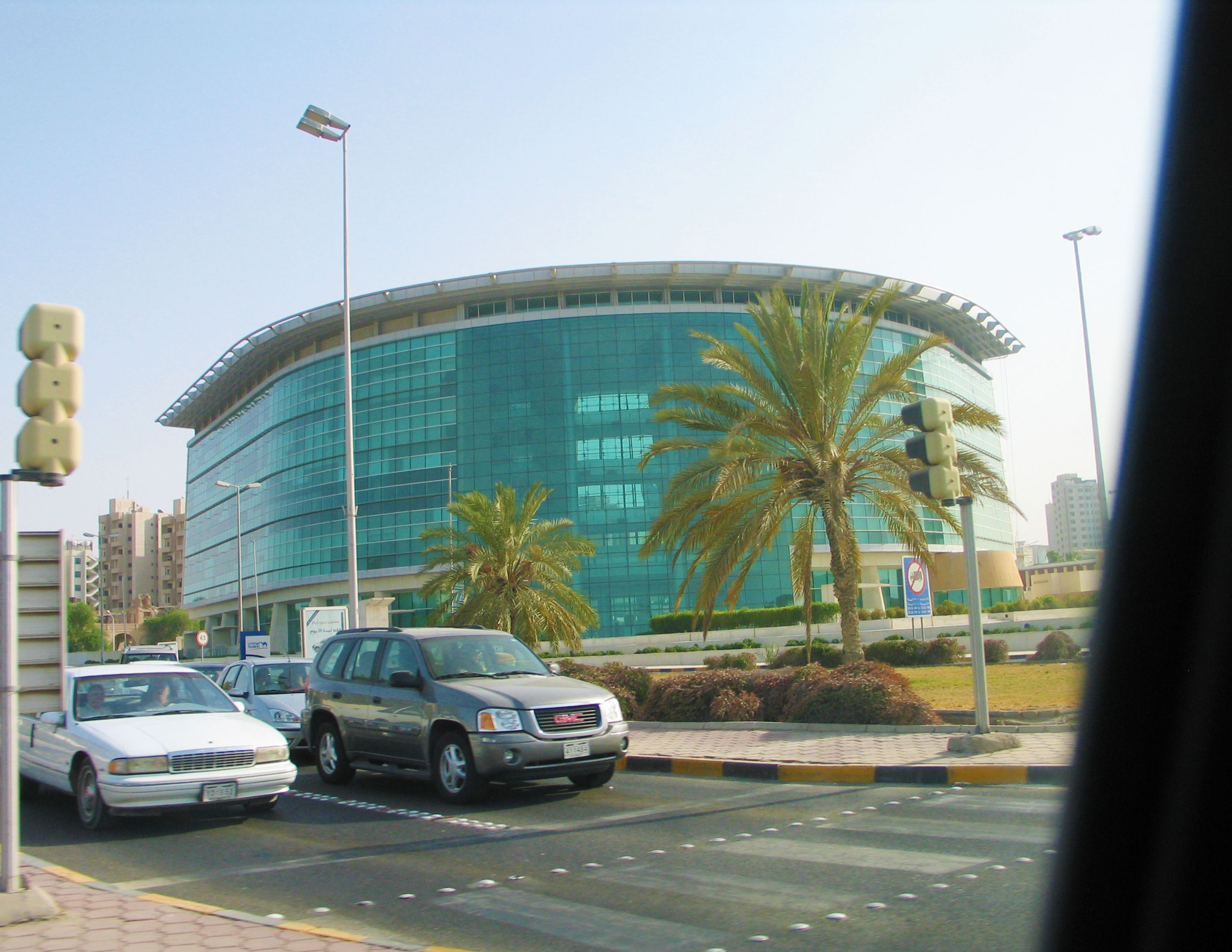
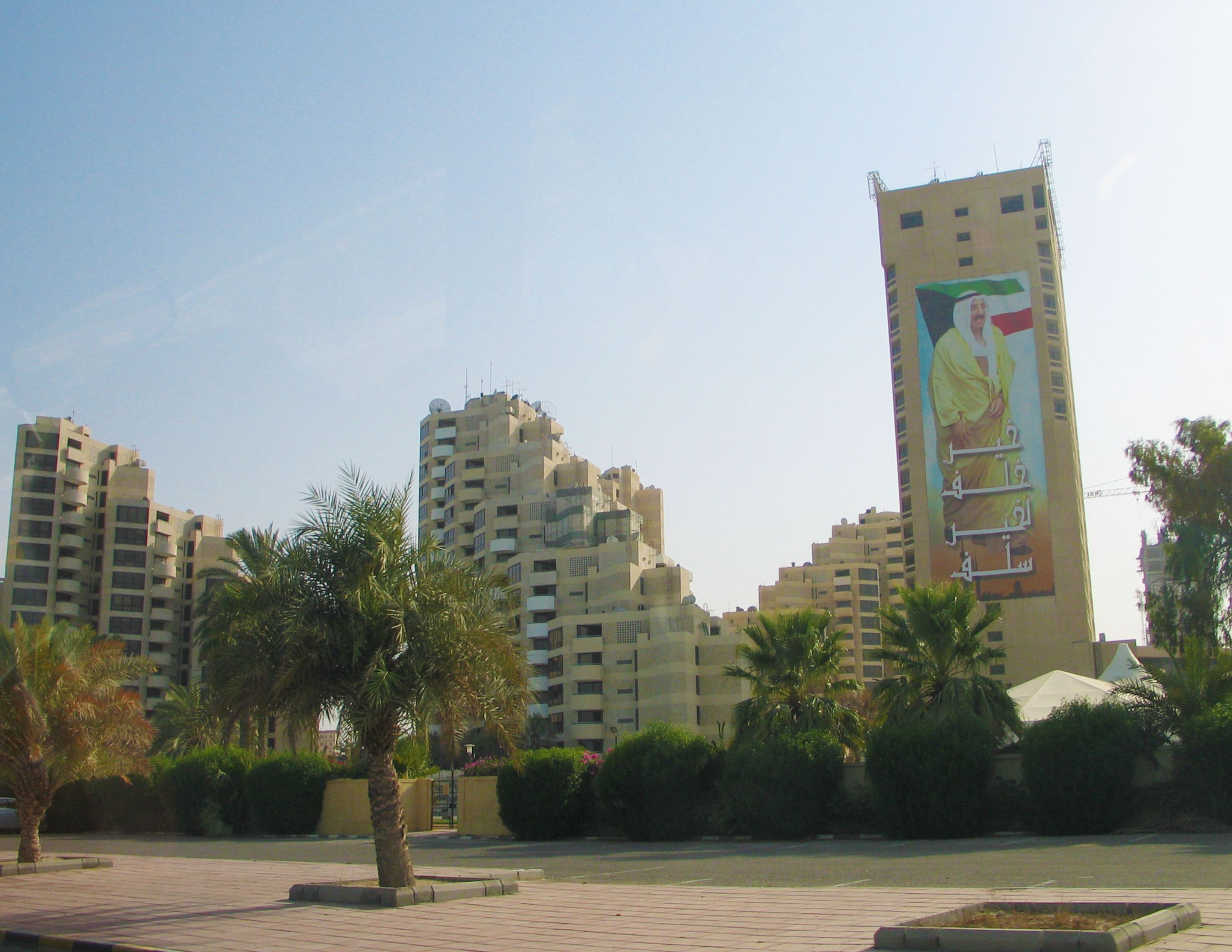
I'm simply curious to know how far Kuwait has reached in terms of their urban architecture today. With mind-blowing marvels of the latest construction technologies, there would most likely be more interesting buildings to experience there now.
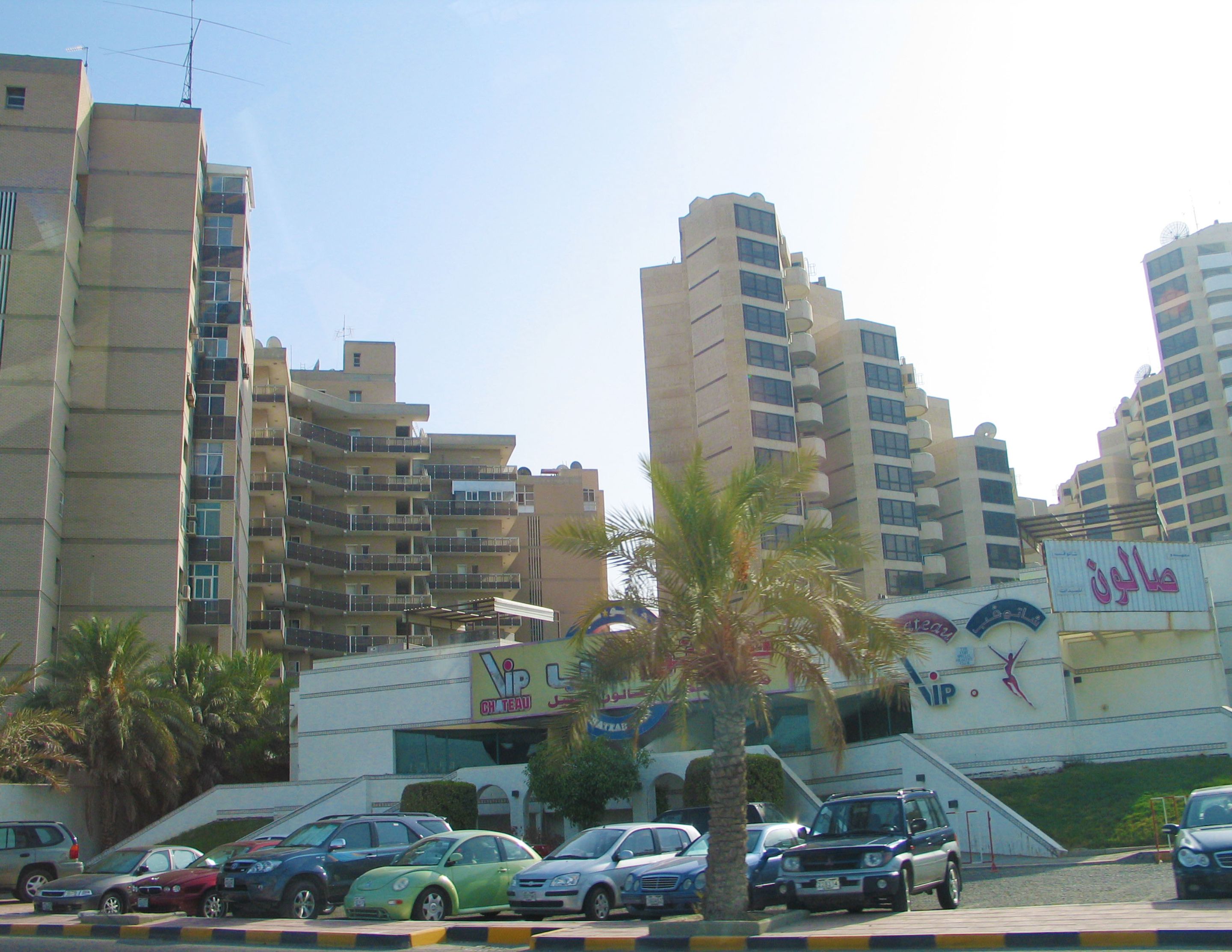
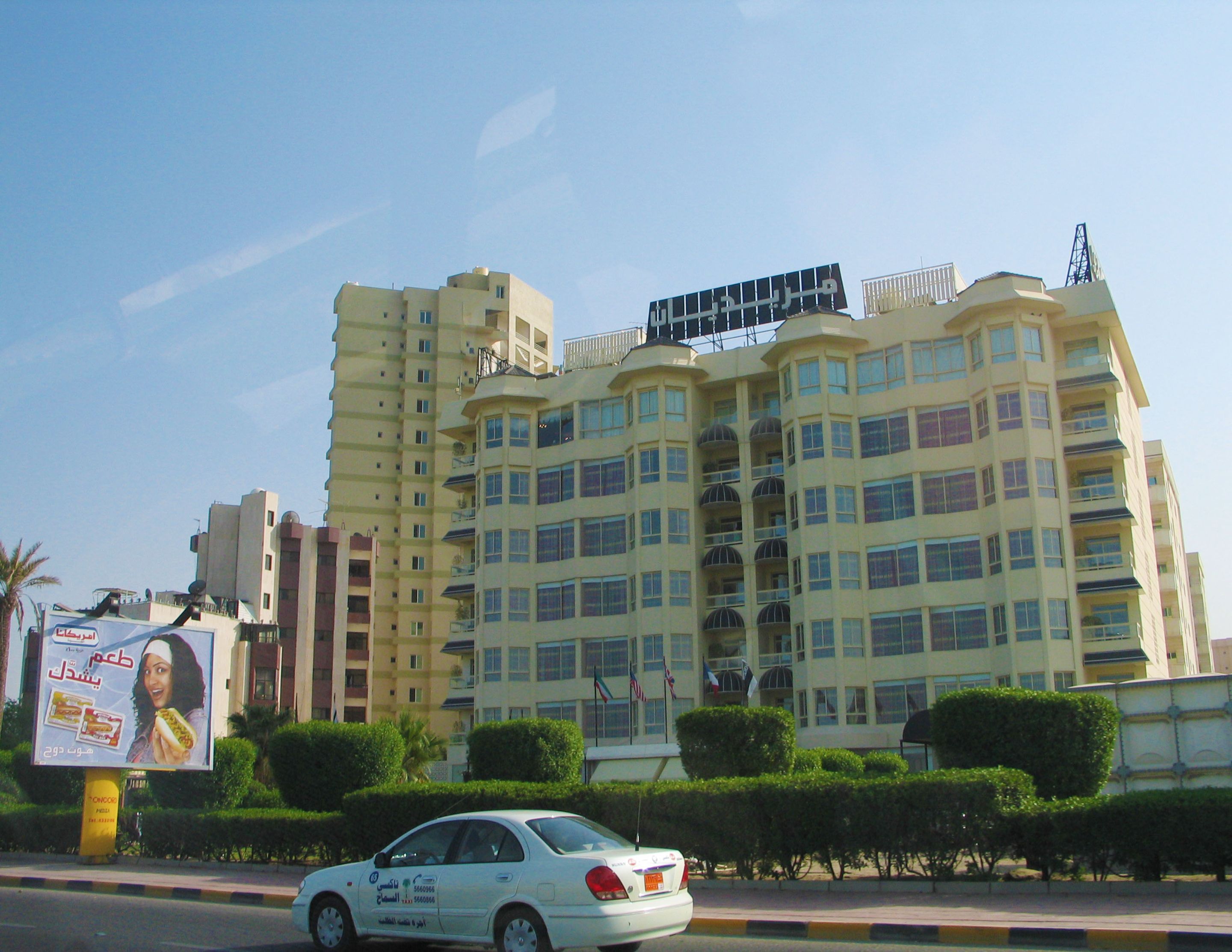
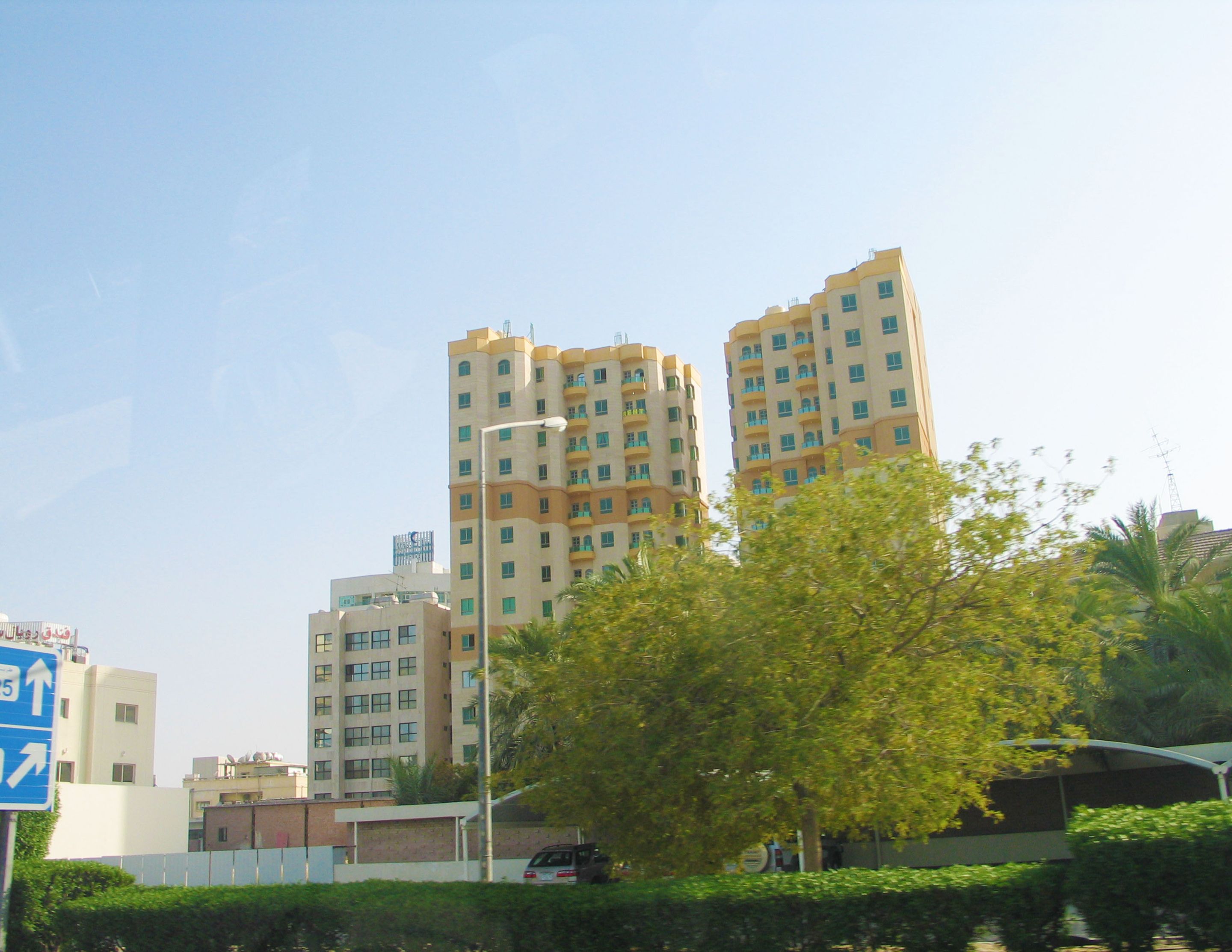
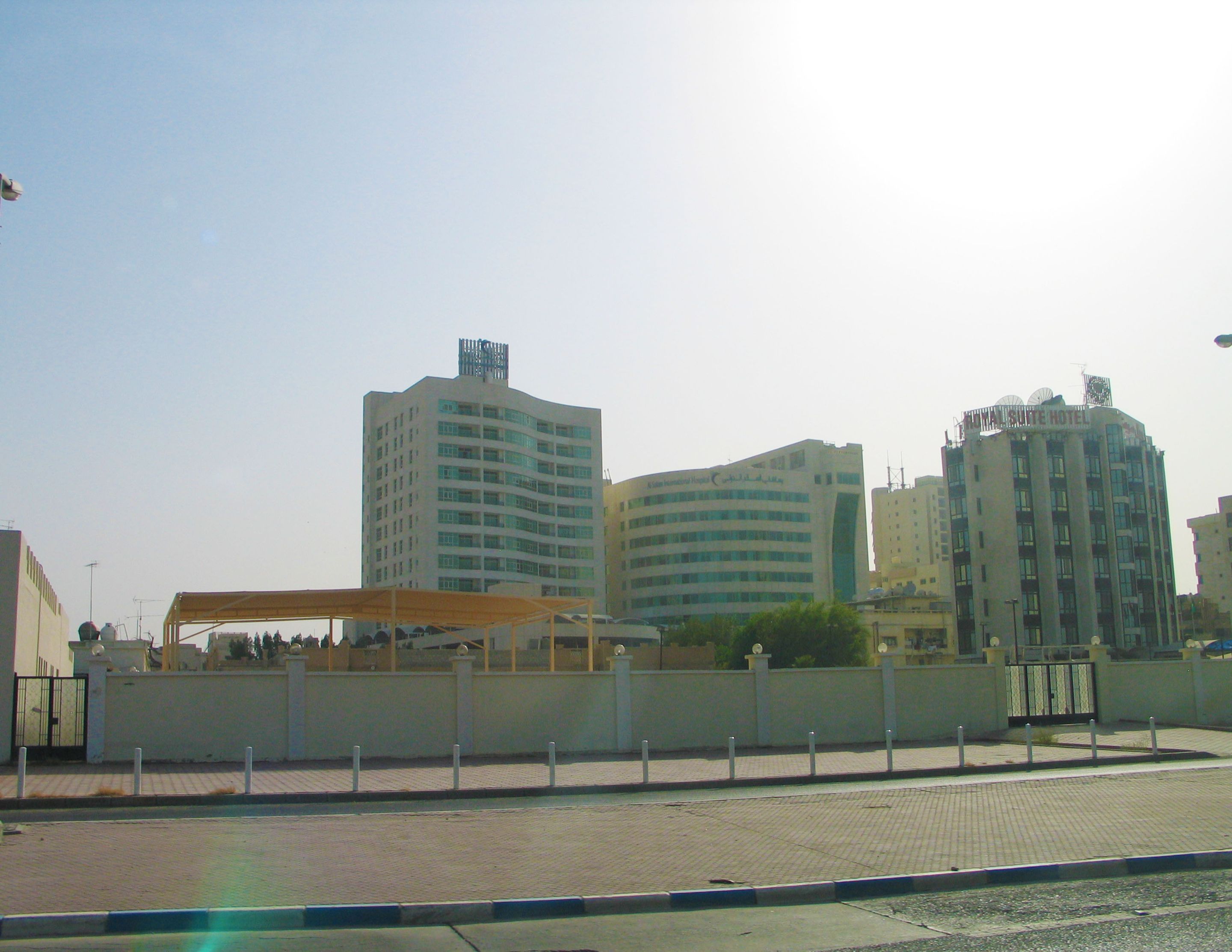
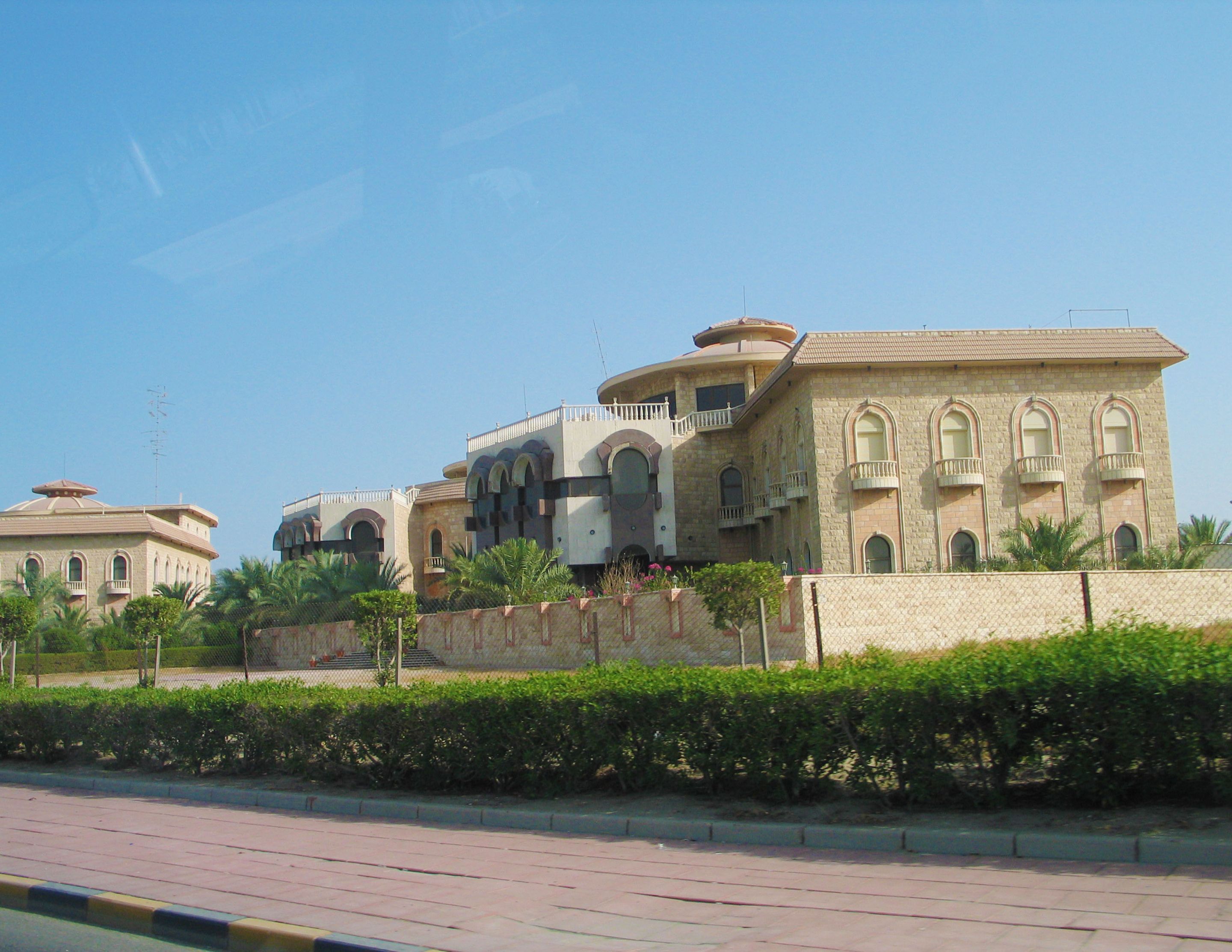
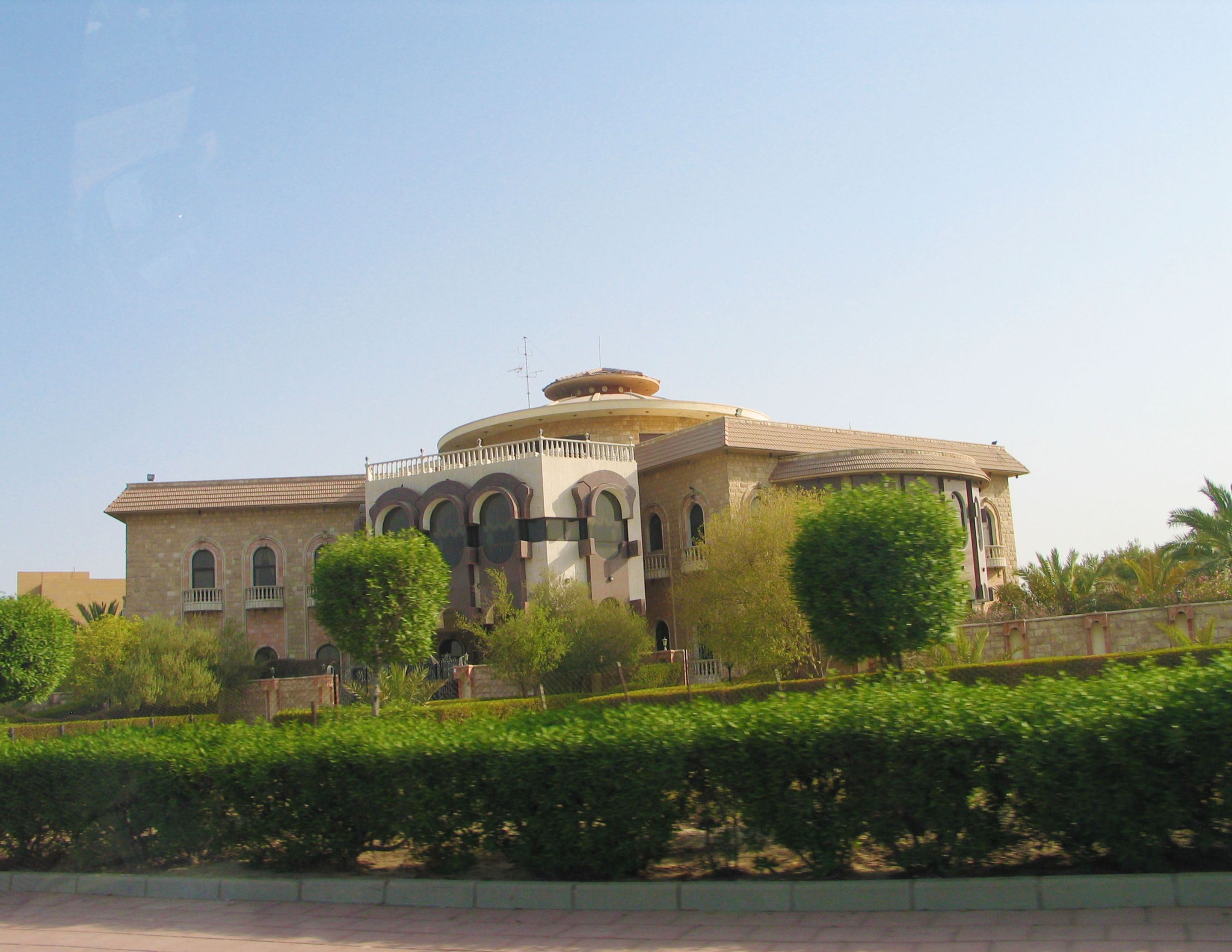
Perhaps in a future trip, I'll be able to answer all the pending questions about the progress and development of this world-class metropolis. Until we meet again…Kuwait!
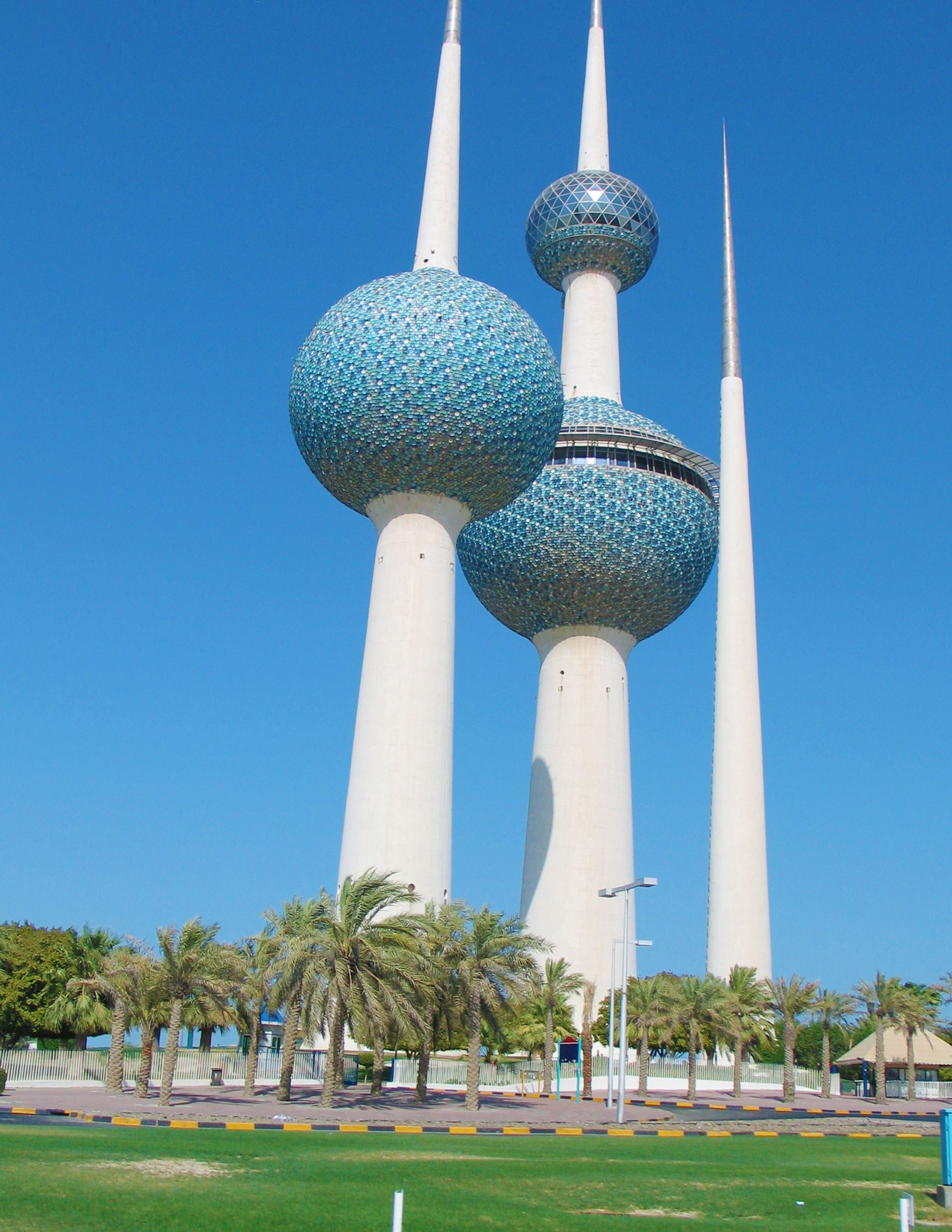
What are your thoughts about Kuwait’s urban design? Do you agree that an environment’s climate would directly affect its resulting architecture? Would you live in a hot place like the desert?
Let's talk.

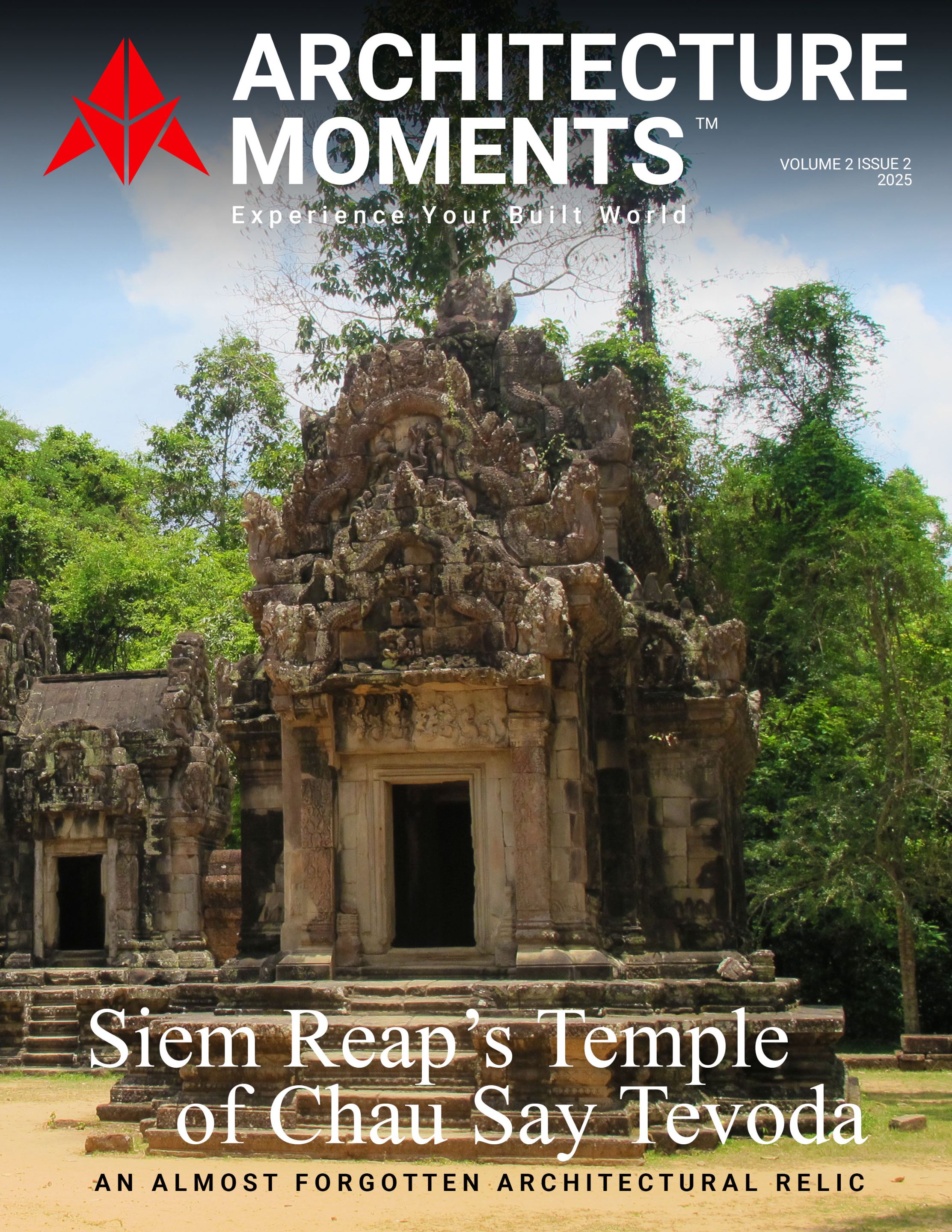
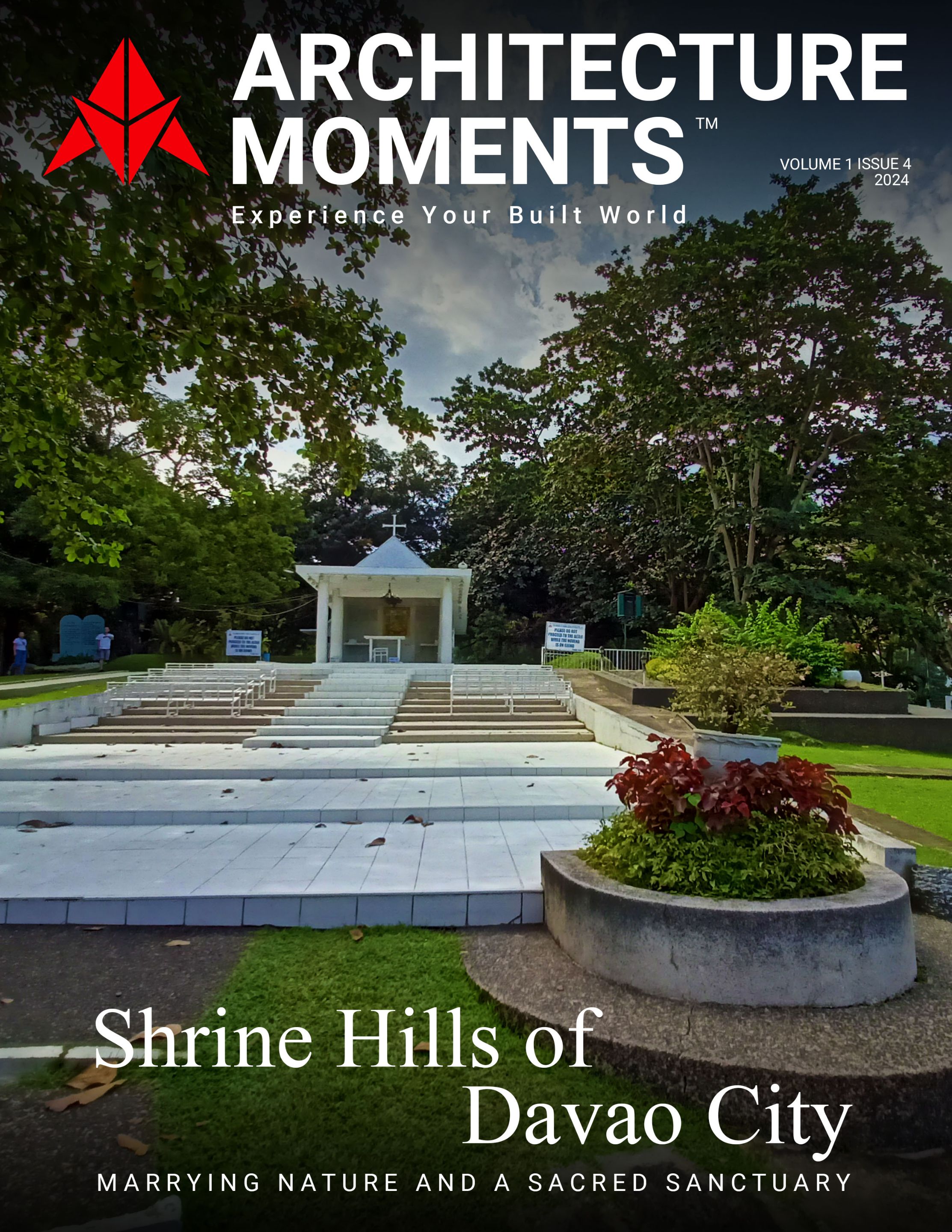
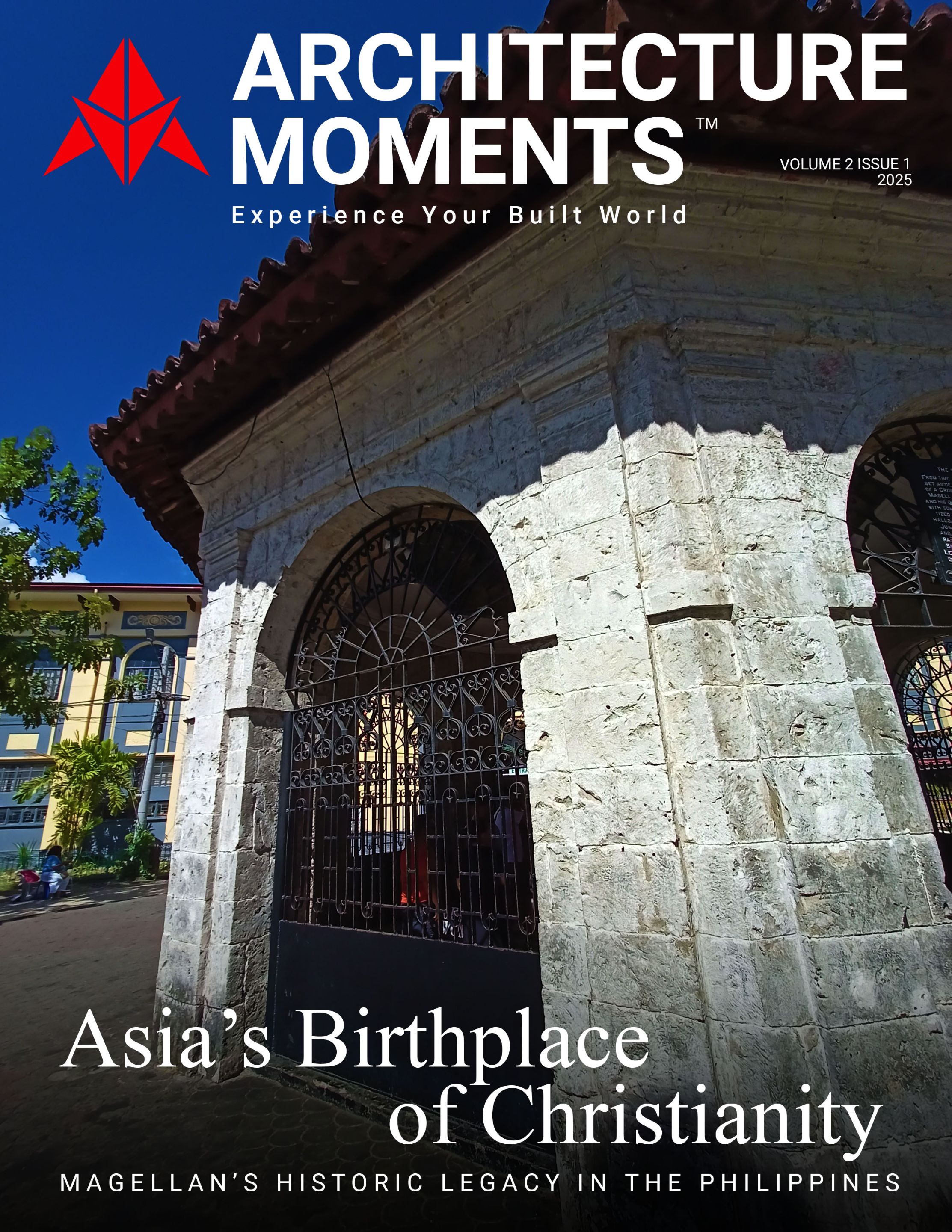
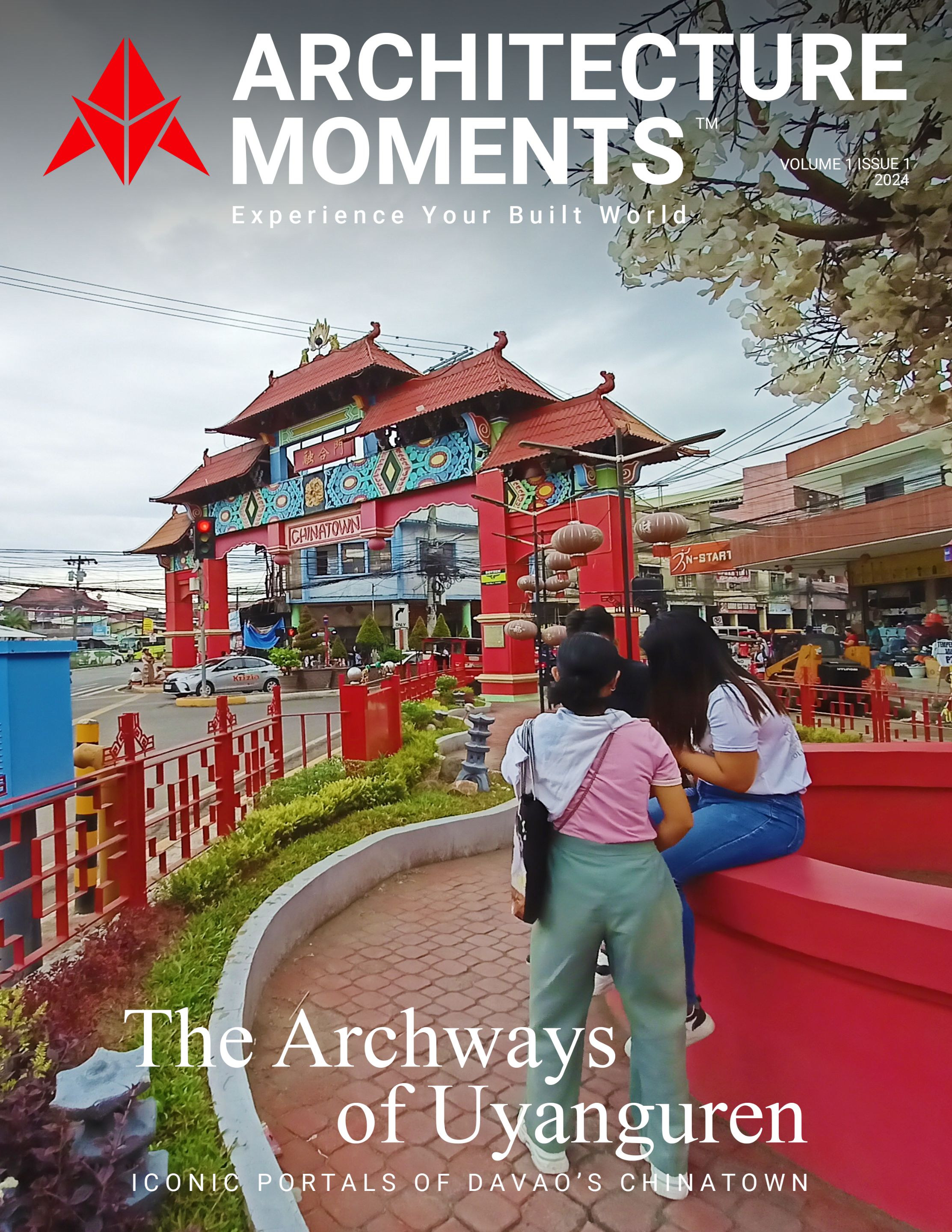
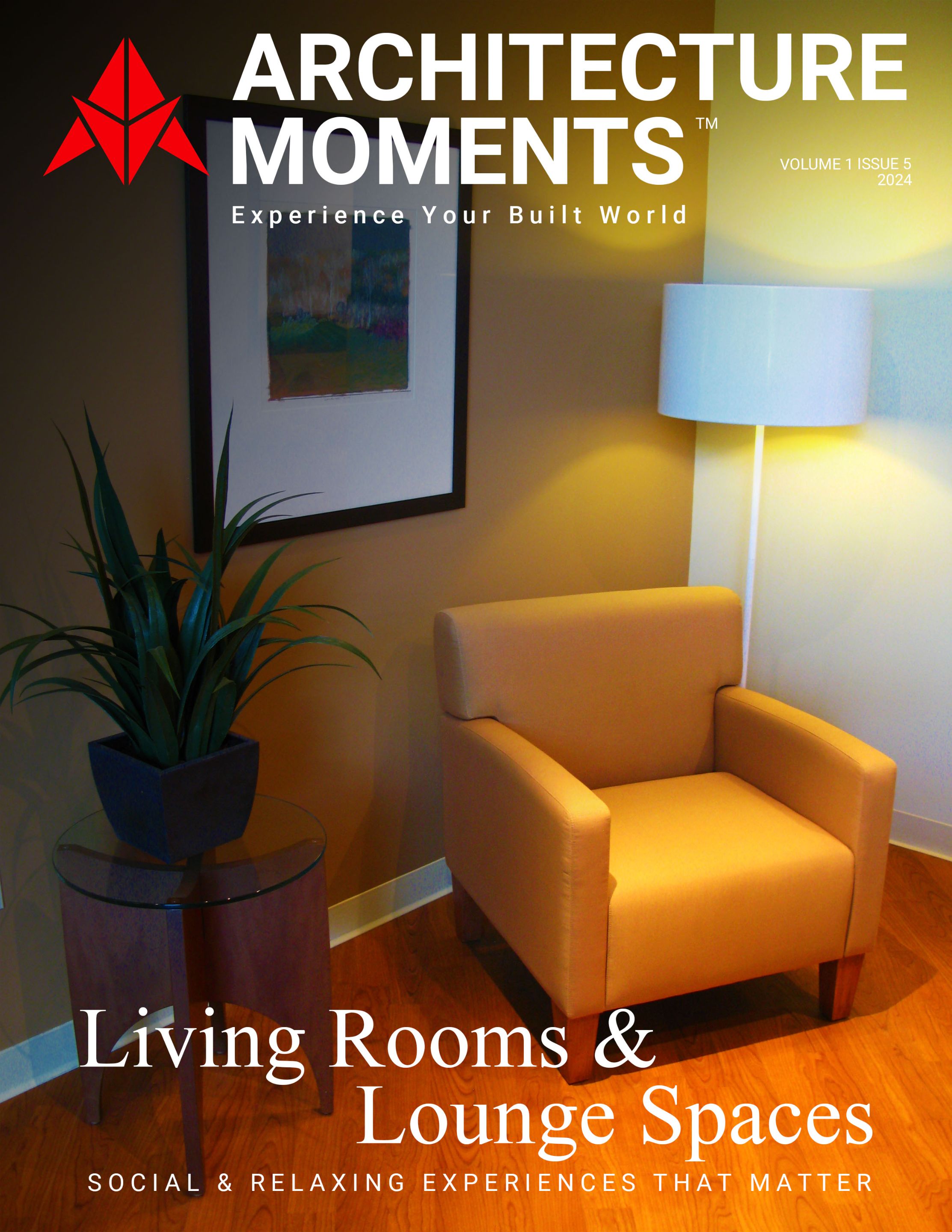
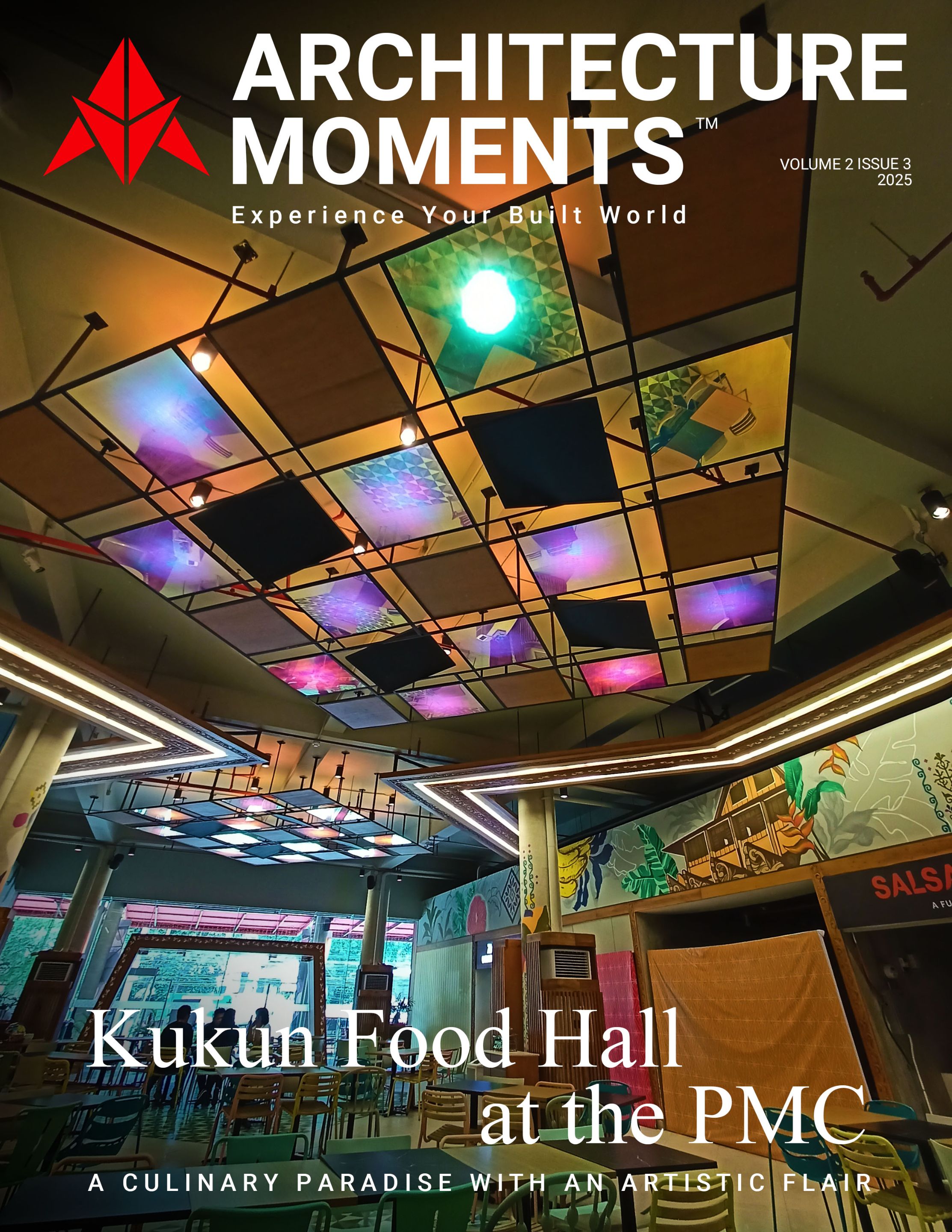
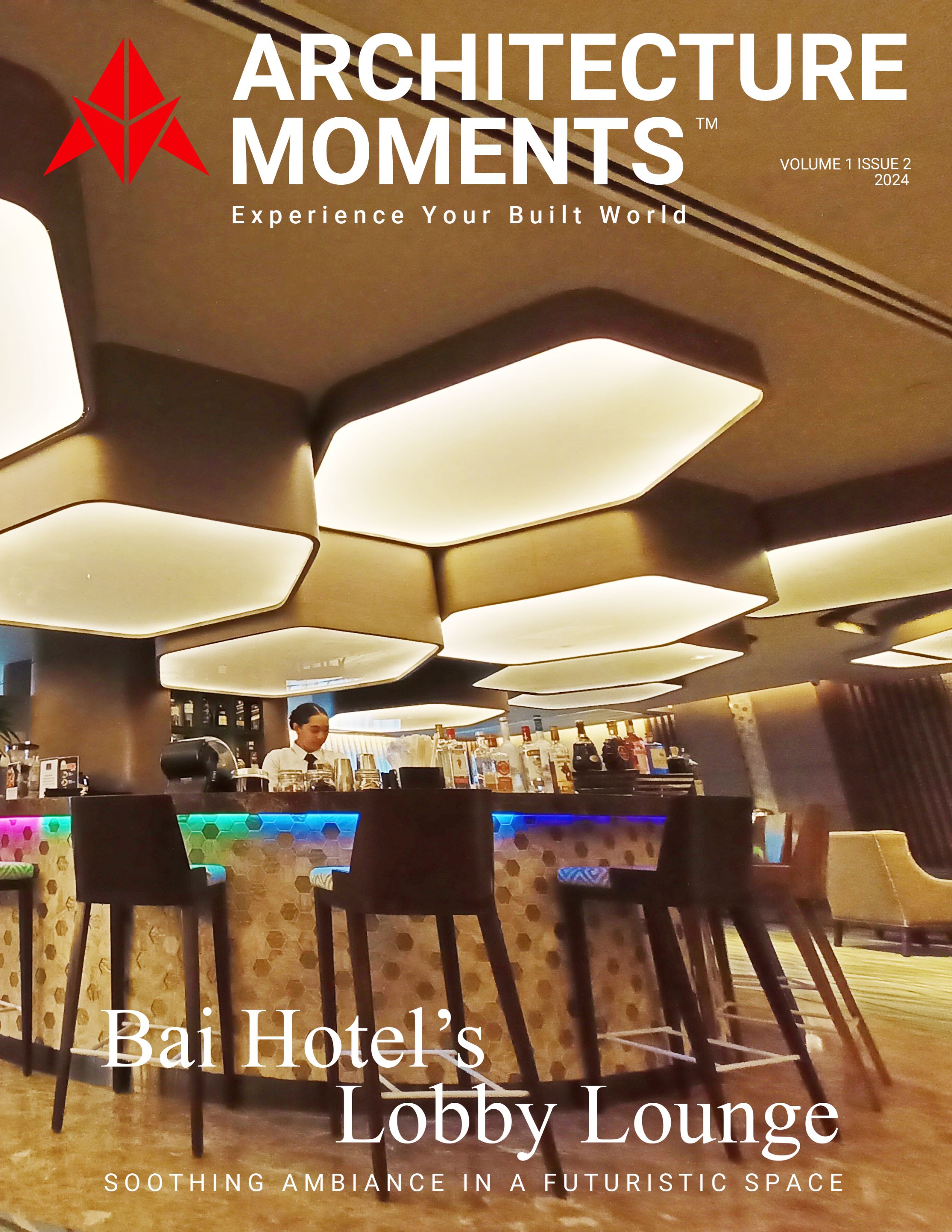
Comments